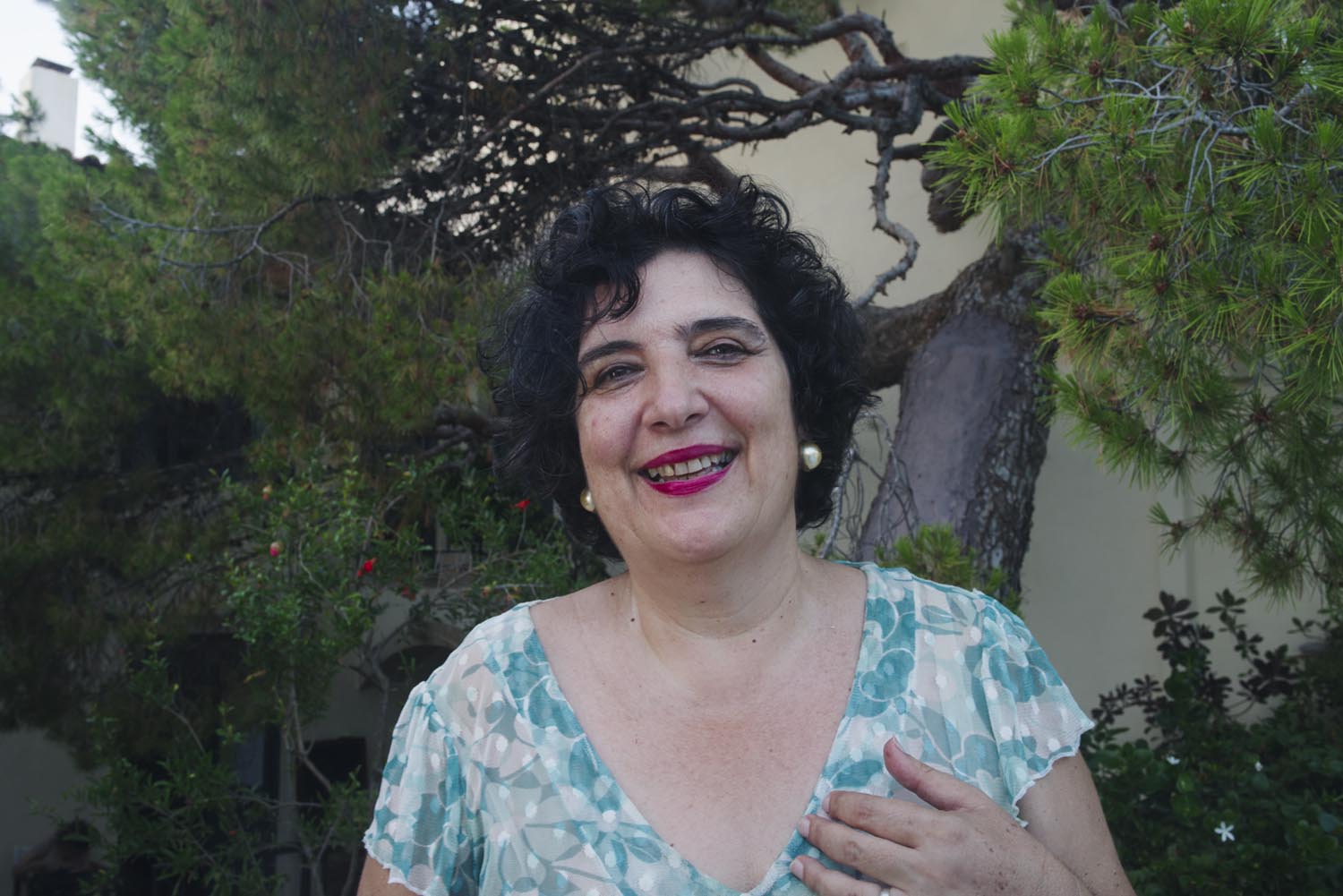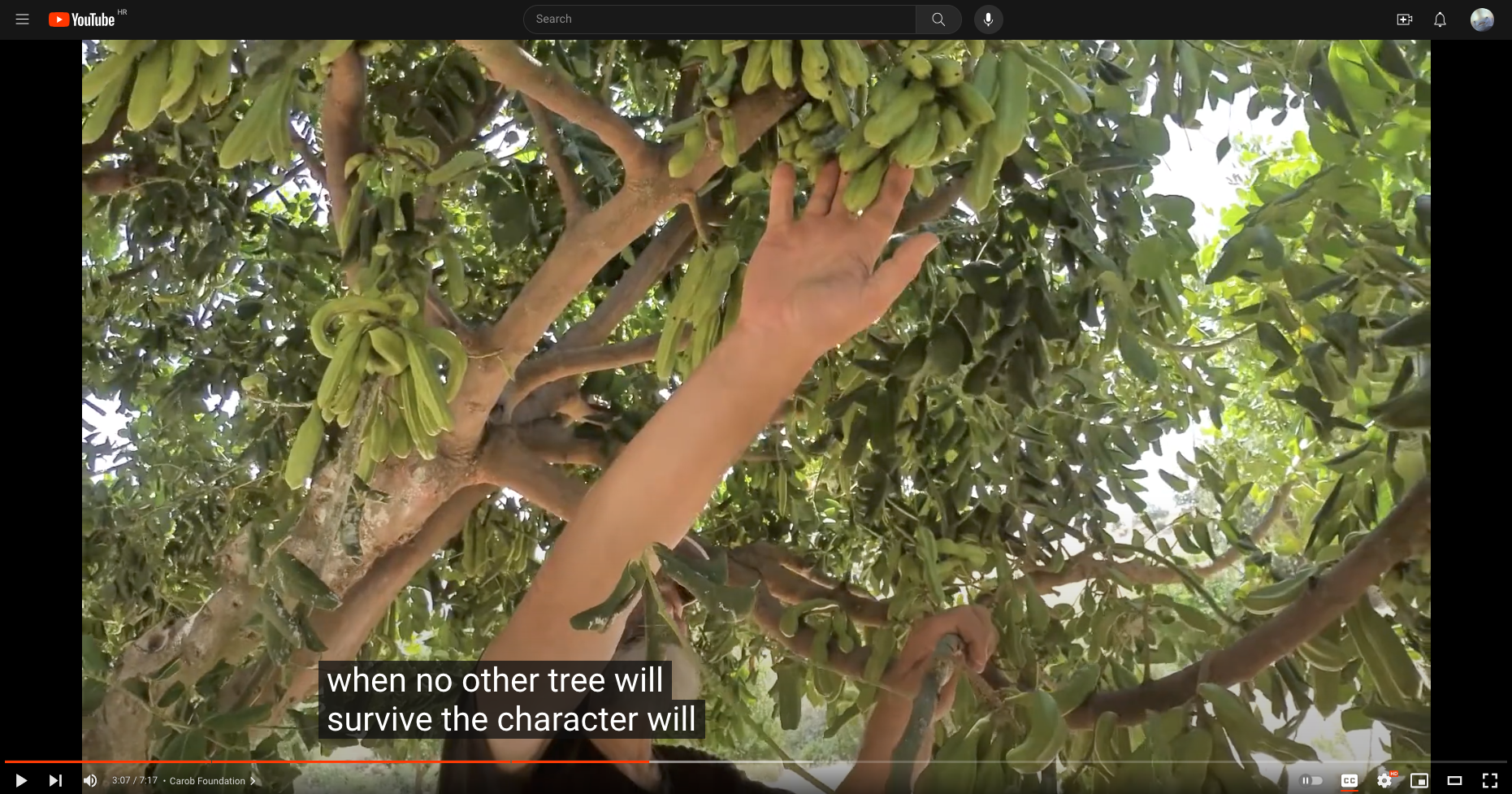In Crete, a true magic happened. By meeting Korina Miliaraki, we got the chance to learn about the great value of carob trees, which they are willing to share with us.
Thanks to Korina and a network of farmers and experts who are actively promoting, growing, breeding and cultivating them, carob trees are “coming back“ and bringing good to our common future. We visited Korinna’s friends, “carob activists“, old carob trees, and a carob forest in southern Crete. It became obvious there that carob trees don't need much water to grow and bear fruit, which can be eaten right off the tree. Carob trees can live for over 1000 years old and regenerate in a similar way to the olive tree.
I had a very special relationship with trees, especially one that we grew up with. I had my branch, like my home. The tree was my home, my second home, and one of the branches was my room and my place. I used to dream about being there, most of the time I wanted to be there. I felt that all the information that was around me came to me in a magical way when I was on that branch. I learned the world there. The tree was very alive, I had a dialogue with it because it was something more than a home. We created a very beautiful relationship. And another thing is that because I was always doing 'acrobatics', I felt that there was no way I could fall, because I had a relationship with a tree, the tree also helped me not to fall. And sometimes the people from outside would ring the bell because they were afraid to look at me when I was doing very difficult acrobatics when I was very little, and my mother would come out and people would say, "Please, your child is going to fall", but she would always tell them, "She is not going to fall, there is no way". She always trusted me too much, and my mother and my father too, both of them. I never fell.

I remember sometimes my grandfather was... I liked to see the shadow, I was there, and I was looking at the shadow when the sun was moving, and every moment was different than the other, because I was looking down and the shadows were changing all the time. And I had this feeling that I also have here, that I was moving with the earth all the time, but on the tree. We were travelling and the shadow was giving me this feeling of travelling. But I wasn't travelling alone. And I feel it very strongly here, in this house, too. But I'm here and all, we're moving with the house and with the tree in the universe. And if you have a very good relationship with the surroundings, with the environment, it is really very important. It makes you feel stronger, because you don't feel alone, you're part of the environment. And the environment, it has to do with... You are a part of it, and you all go together. I have this feeling of unity. It was very strong that feeling, very strong.
About the teacher - father
He was first of all an ecologist, before ecology existed. Because he was a chemist and he loved nature. He admired nature, the trees, the flowers, the rivers, the sea... He made me have these strong feelings about it and to feel part of it and respect it. He was against all the chemicals in the house, for cleaning the dishes, the shampoos and everything. He made everything for us to avoid all the chemicals. He was the first one to put up the solar panel and everyone was visiting us to see it. We had a garden and I loved the flowers. I had a very good relationship with the flowers and all the plants and the animals too. I loved them. He was the first one in Crete to make bottled wine and export it. At that time he had taken the prices from the French. (The factory is still run by his cousins).
I hated school. I didn't feel good. I always felt that I was outside the system, the education system. First I wanted to be an acrobat, then I decided to be a minister of education. When our teacher asked us what we wanted to be when I was six or seven, I said Minister of Education. And she asked me, "Why, my child, do you want to be..." and I said, "Because I want to close all the schools and make the next generation not suffer from this system, the school, than we have now."
So I decided to come and work with him and to decide what to do, to see. It's like giving yourself an exam, because you always have to come back to your place to see exactly who you are, after a period of travelling, learning, doubting. And then you have to come to a new battle with yourself.To decide who you are after all these experiences. And I came here and I worked with him. And then through that I decided exactly what I wanted. So that's why I came there. I found my centre.
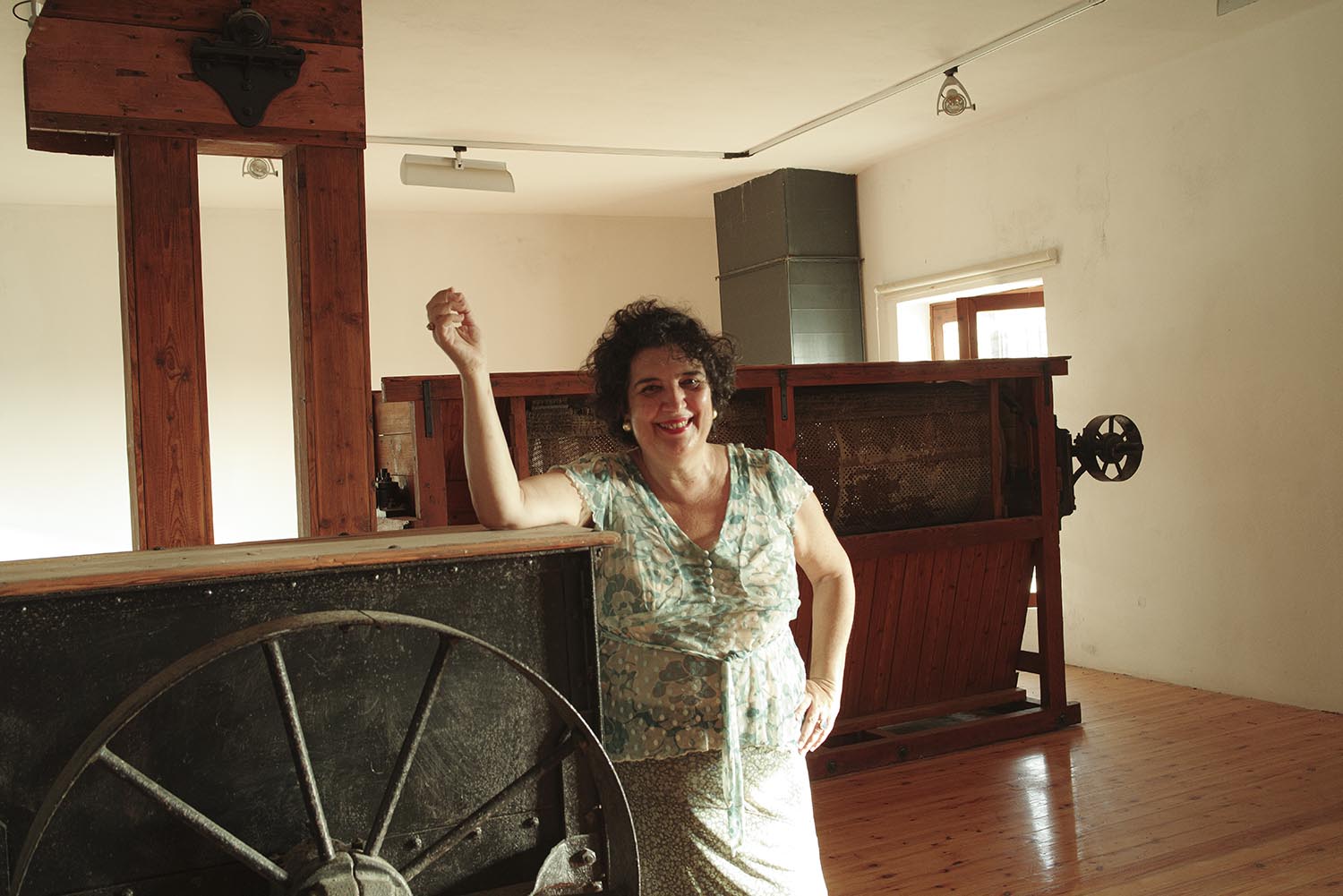
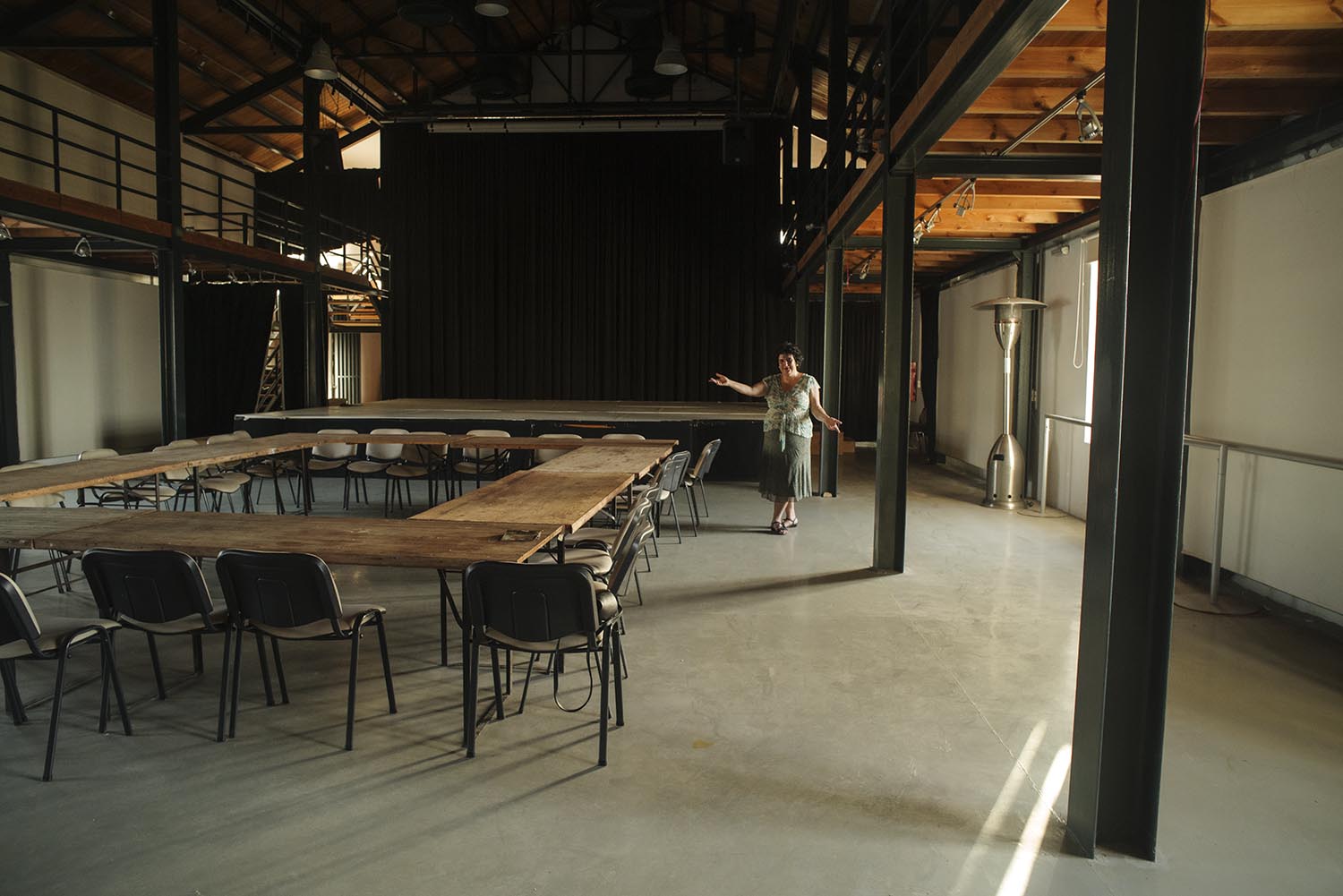
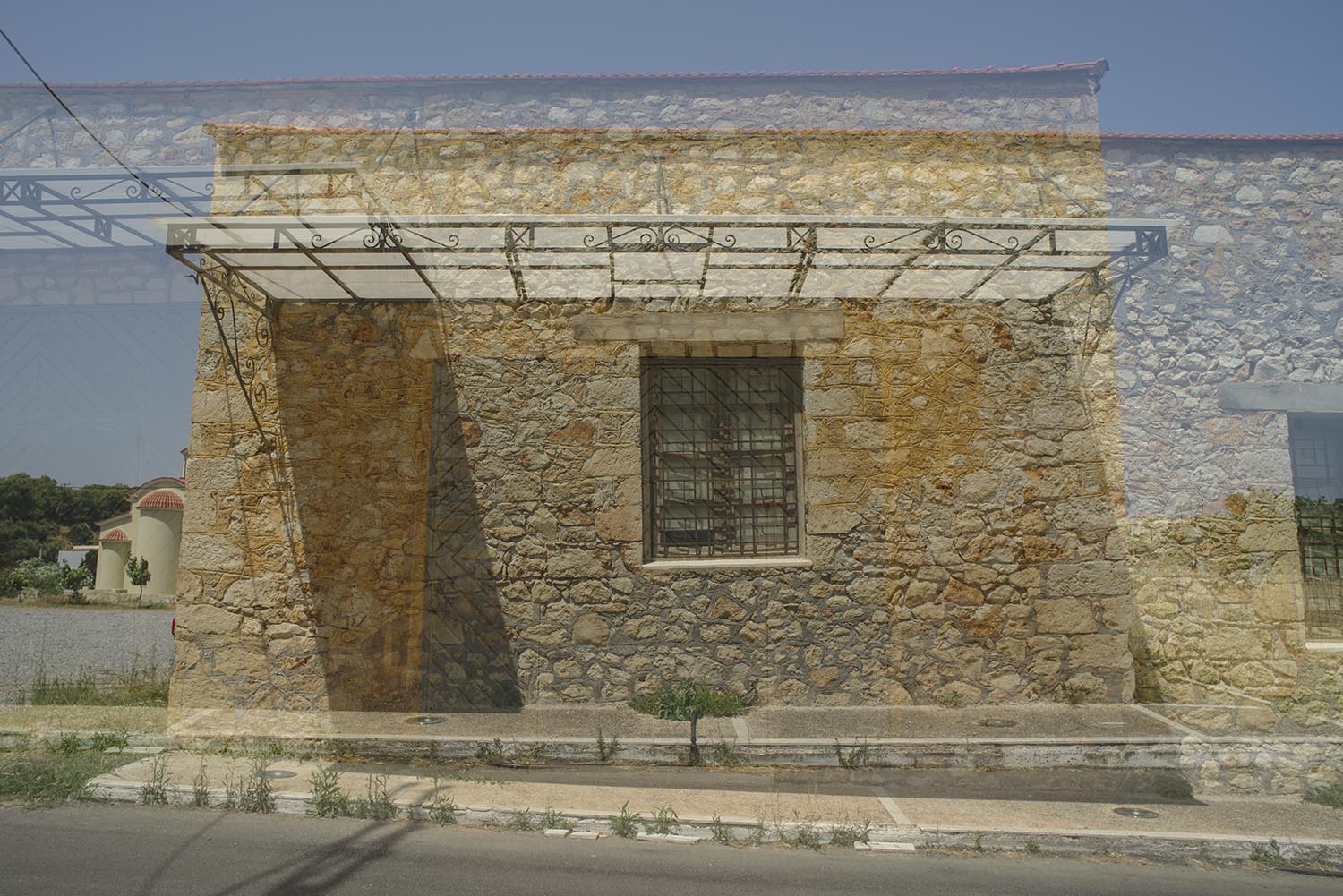
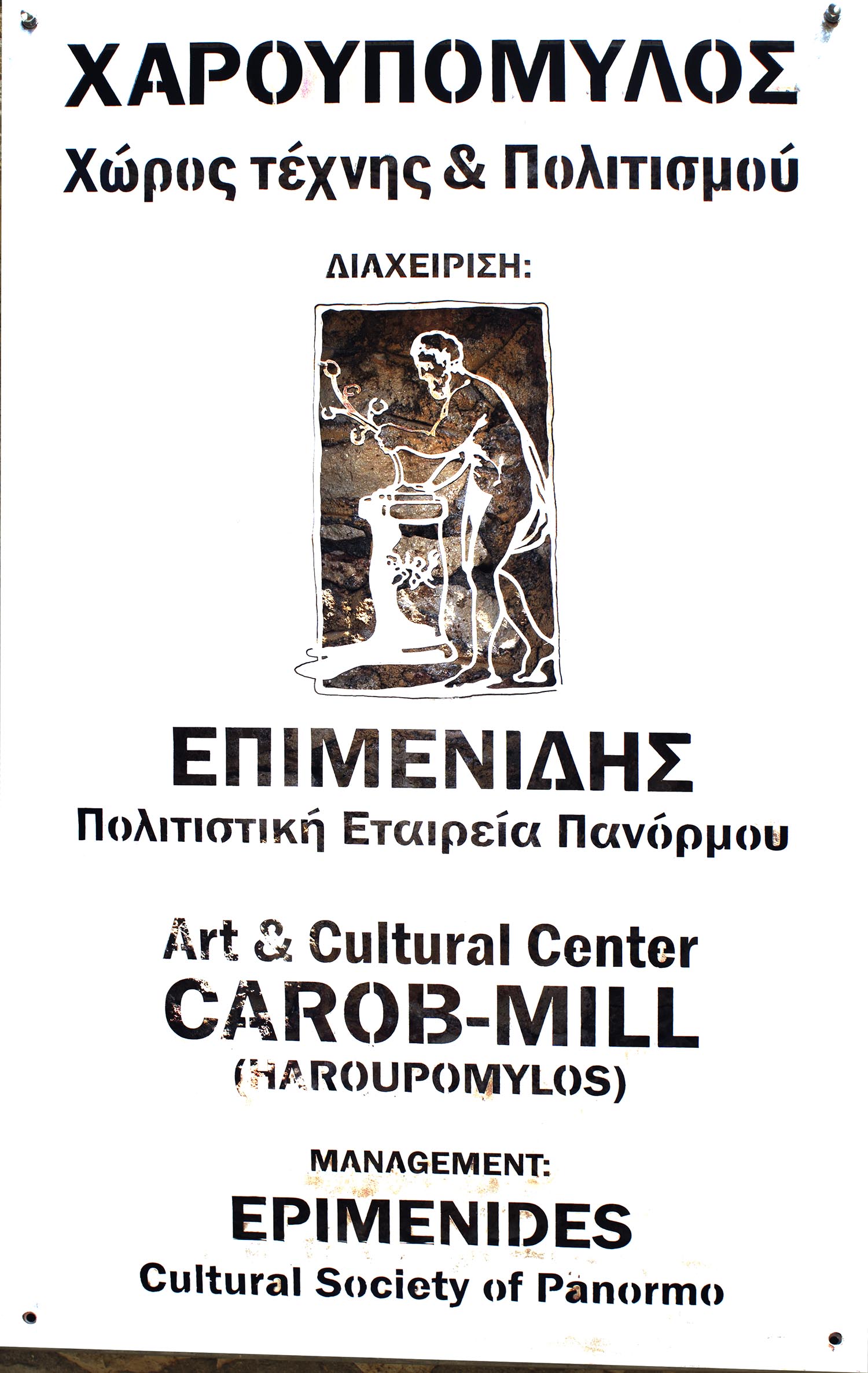
What connected me to the carob was the carob mill, it was Panormos and the carob mill. I loved trees, I loved carob, but then what made me focus on it was Panormos, and then the next step was the carob mill and the carob mill told me, it was like telling me, this building, its history showed me the way to focus on the carob. It is full of memories, this building, I started from my needs. My need was for this building, it's very nice, to be restored and to be a cultural centre, because we didn't have any cultural centres on the north coast of Crete. Why not create a cultural centre here in a very beautiful village by the sea. It was my need and the need of others, and it worked very well, because people came from all over Crete for the many unique performances that took place here, or for seminars, and also from all over the world. Apart from cultural events, there were also conferences about the future of Europe, the environment... Many seminars, many lectures, congresses. People come from all over, different kinds of people, that's another thing I like. Connecting different kinds of social interaction. People from the cities, people from the countryside, shepherds, farmers and children from schools.
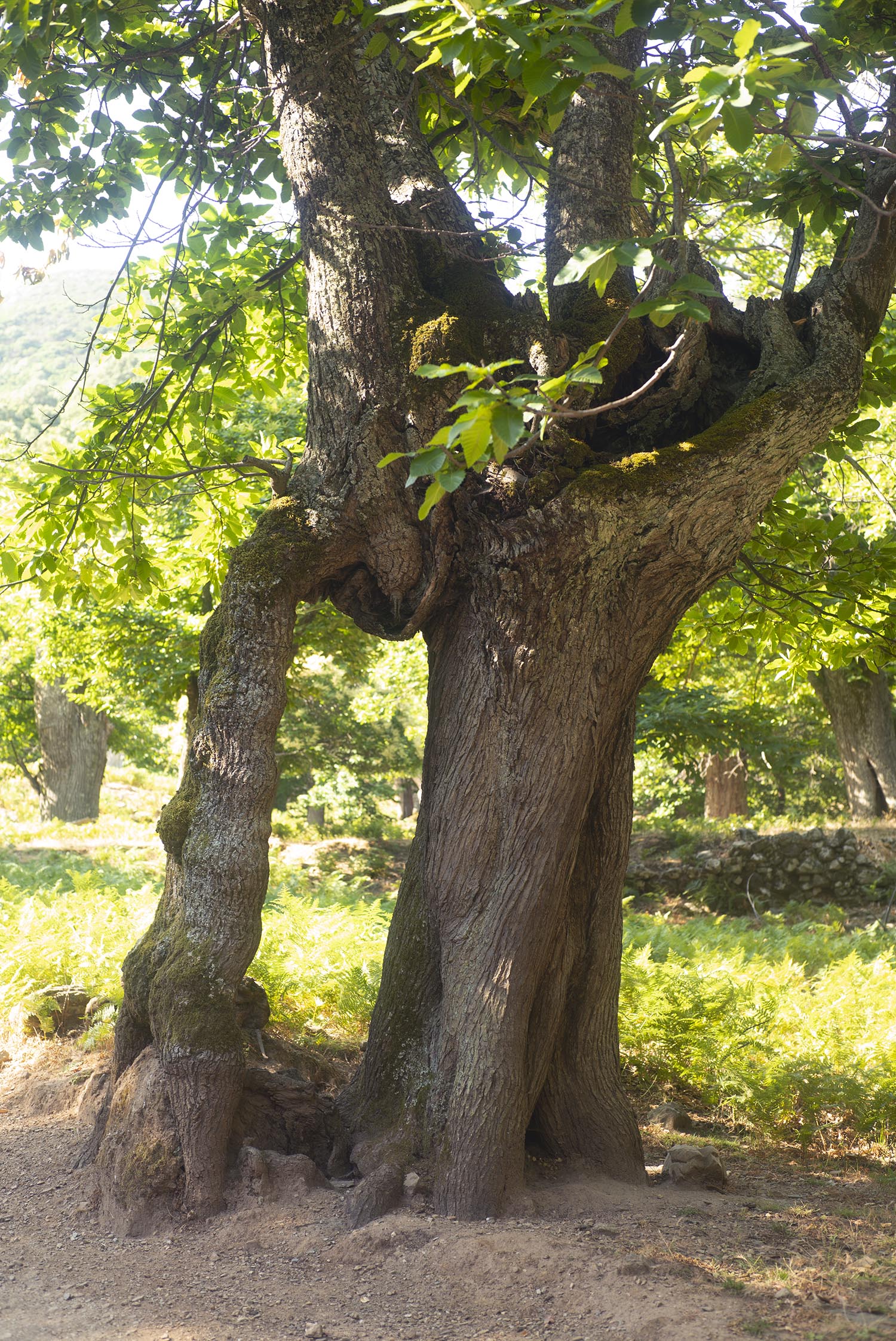
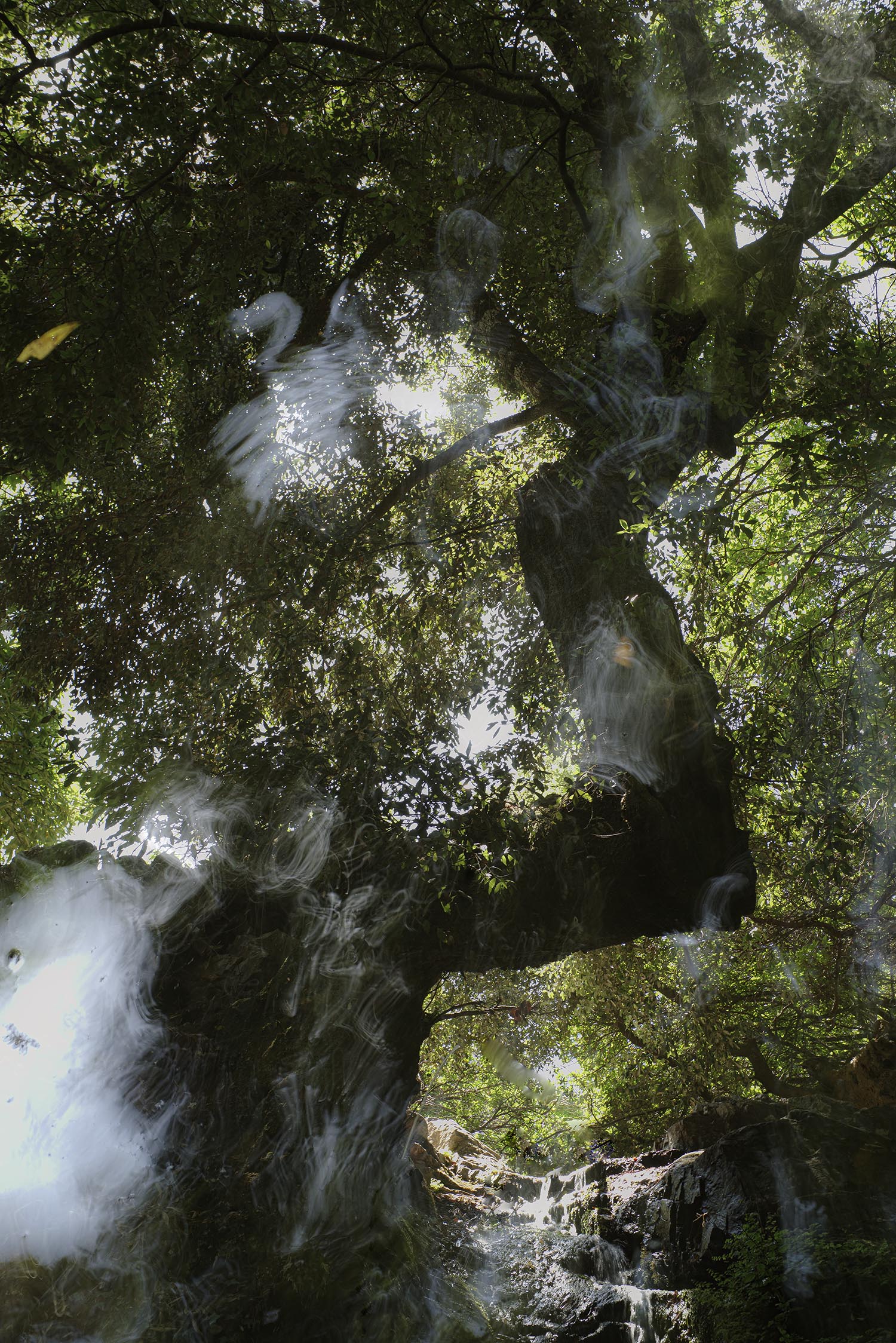
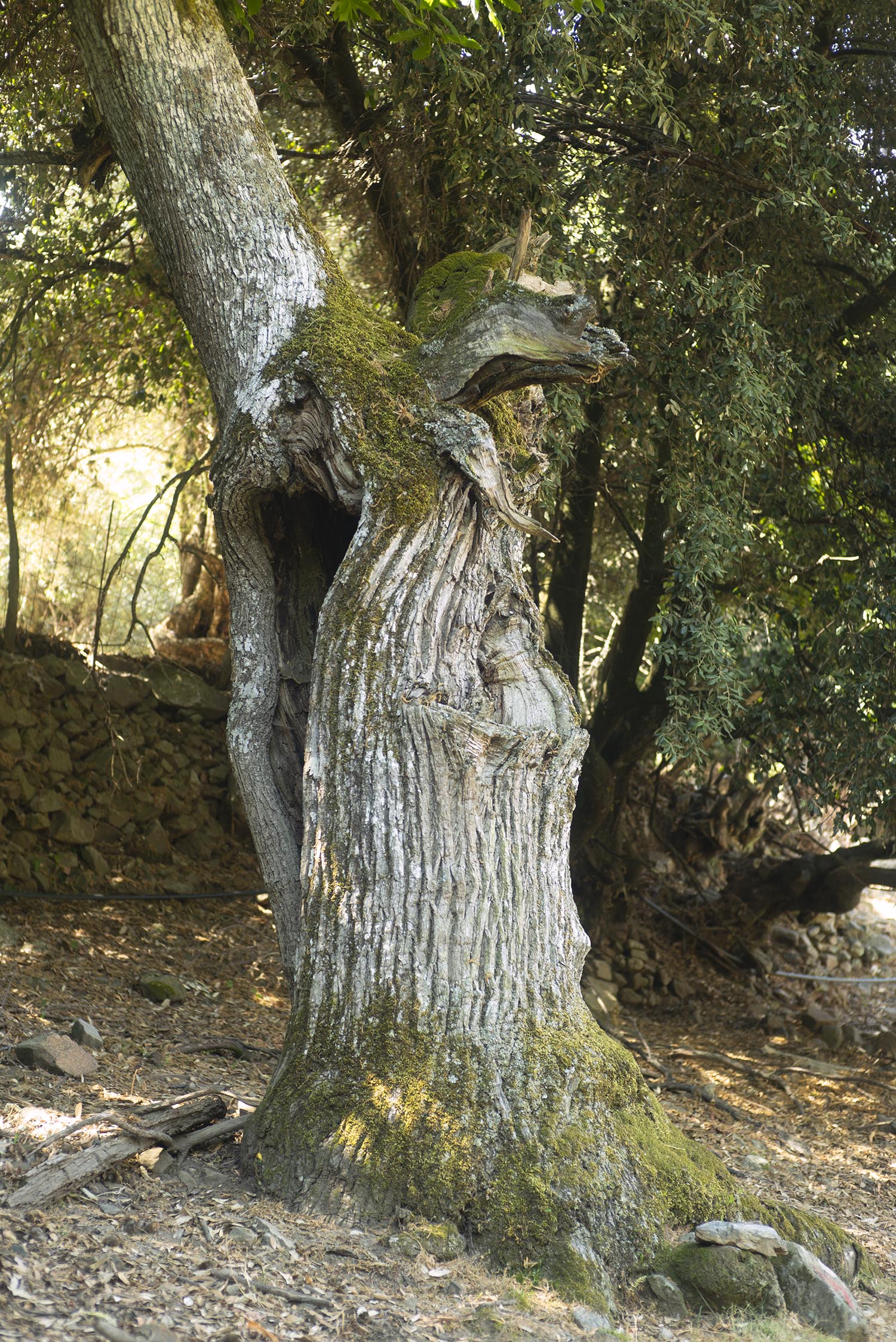
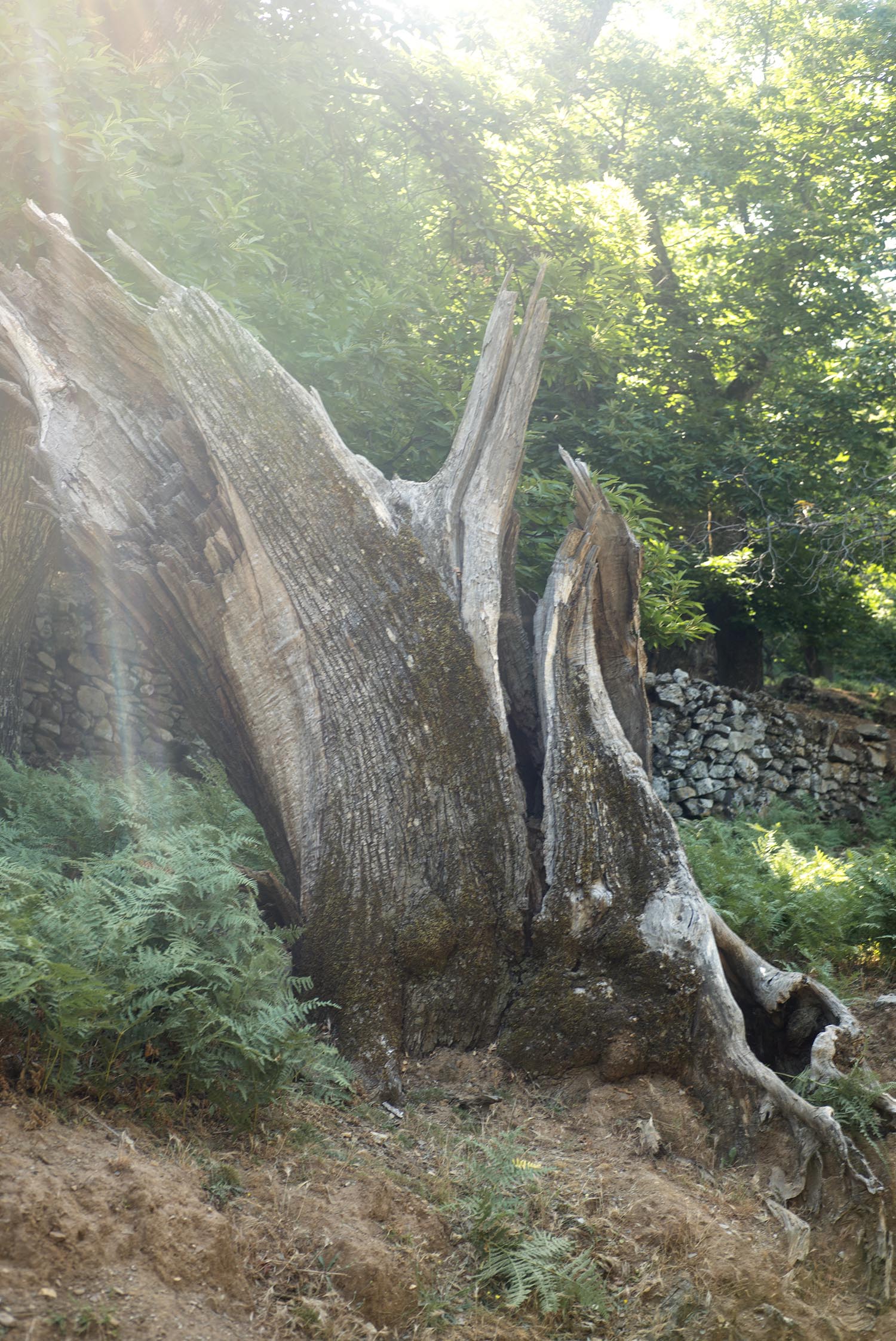
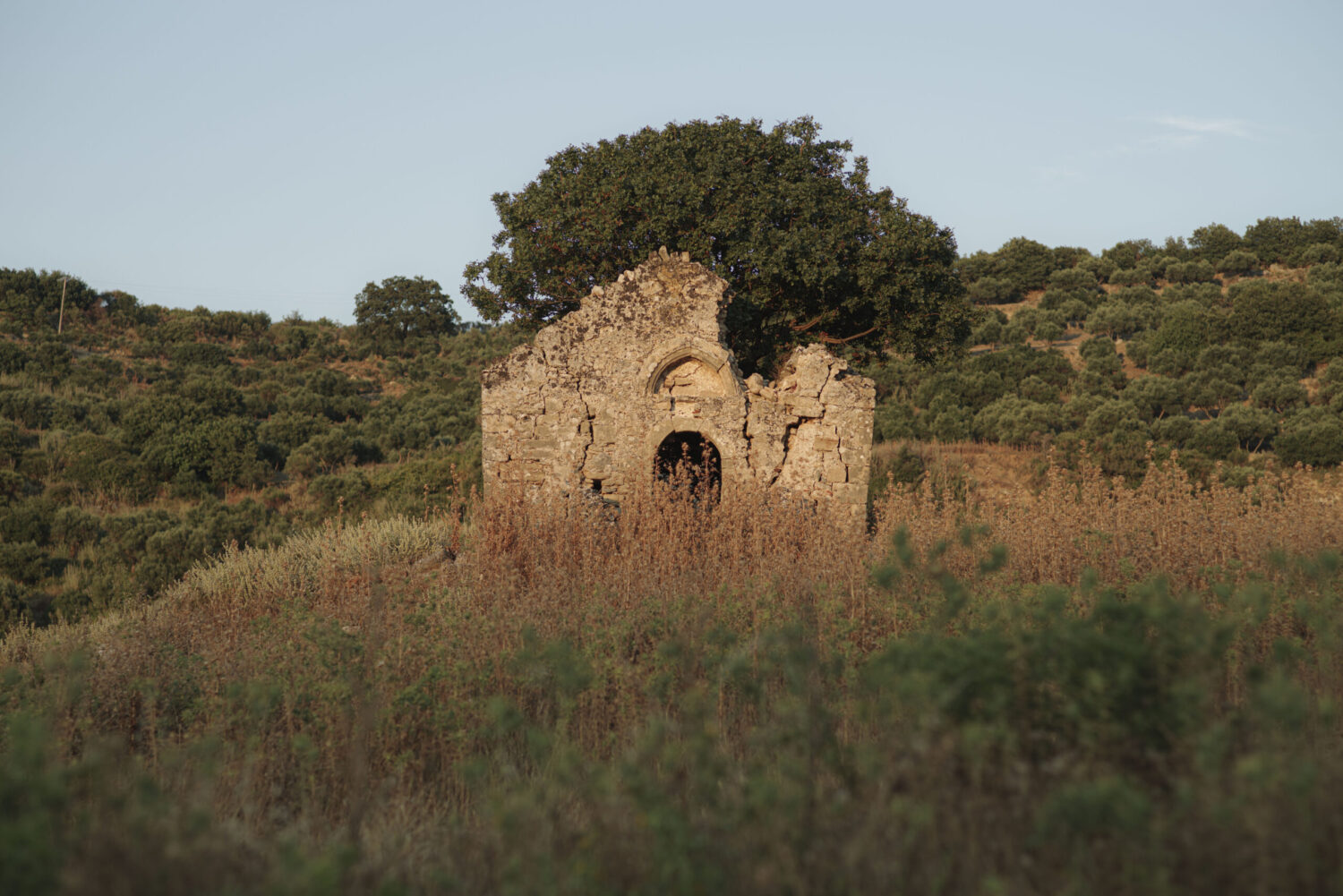
Why carob trees? Because the carob tree is a very important tree, historically, because it saved the population during the Second World War. It is important in very extreme conditions, historical conditions. When nothing else can help you, then, the carob tree appears and says, ”I will save you”. Do you understand? It is too important for me. And I felt as if I had a carob tree in front of me and I was talking to it, and I'm telling him – ”I feel that you have saved us and we have to do everything we can to give you back your lost value, to give you back your lost value, because it's too valuable. It has capabilities that no other tree has. And even in the extreme conditions of climate change, it can save us. If no other tree survives, the carob tree will. And there is something else. This is the only one, the only tree that also gives us flour. Not just sugar, but flour.
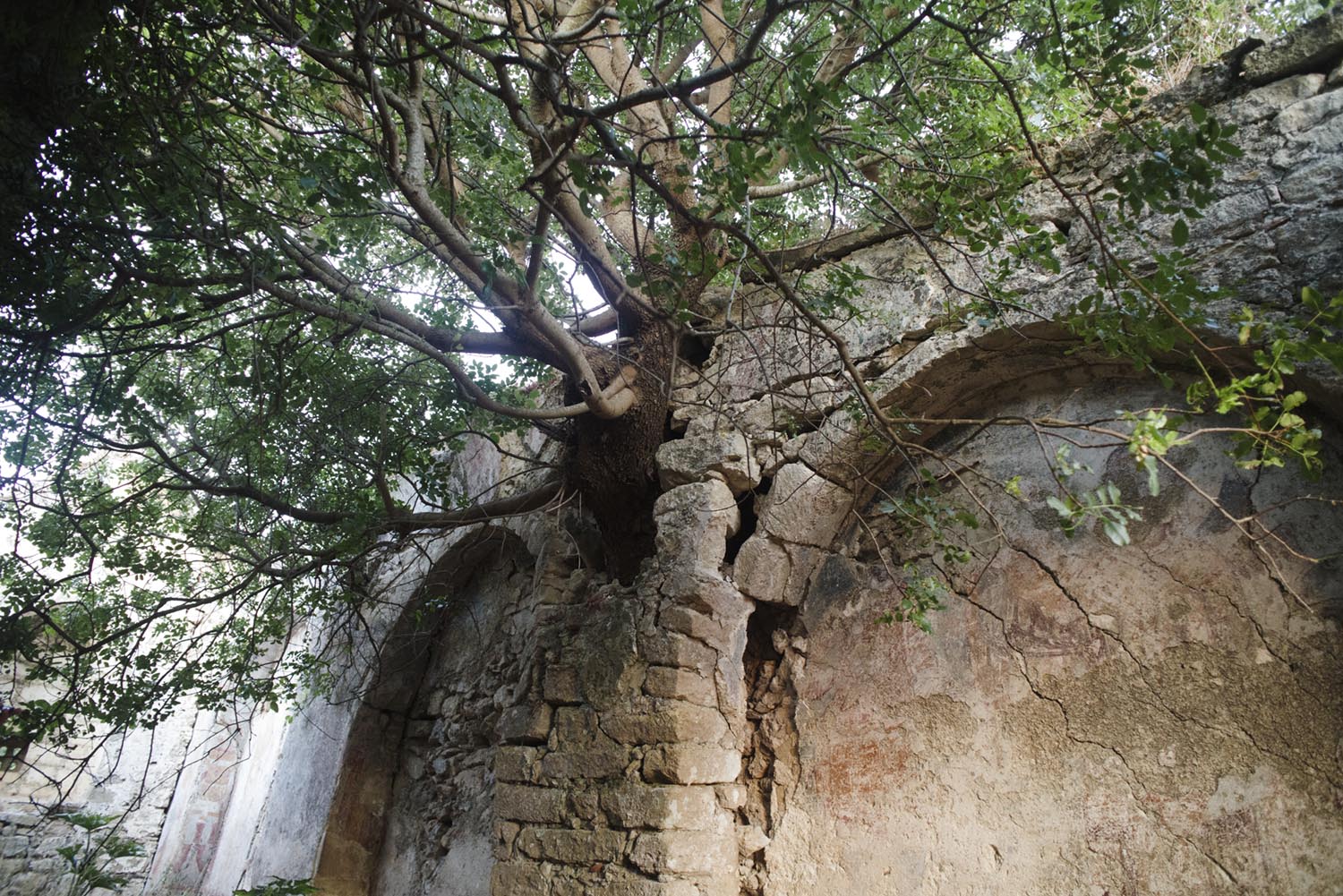
Part of the vision is to create the carob mill and, through the carobs and our efforts for the return of the carob, to become the reference point of Mediterranean Europe for the carob. To bring together all the countries of Mediterranean Europe for the return of the carob, to give it more value. I would love to create here a carob foundation for culture, gastronomy and research. And to have a festival here every year.
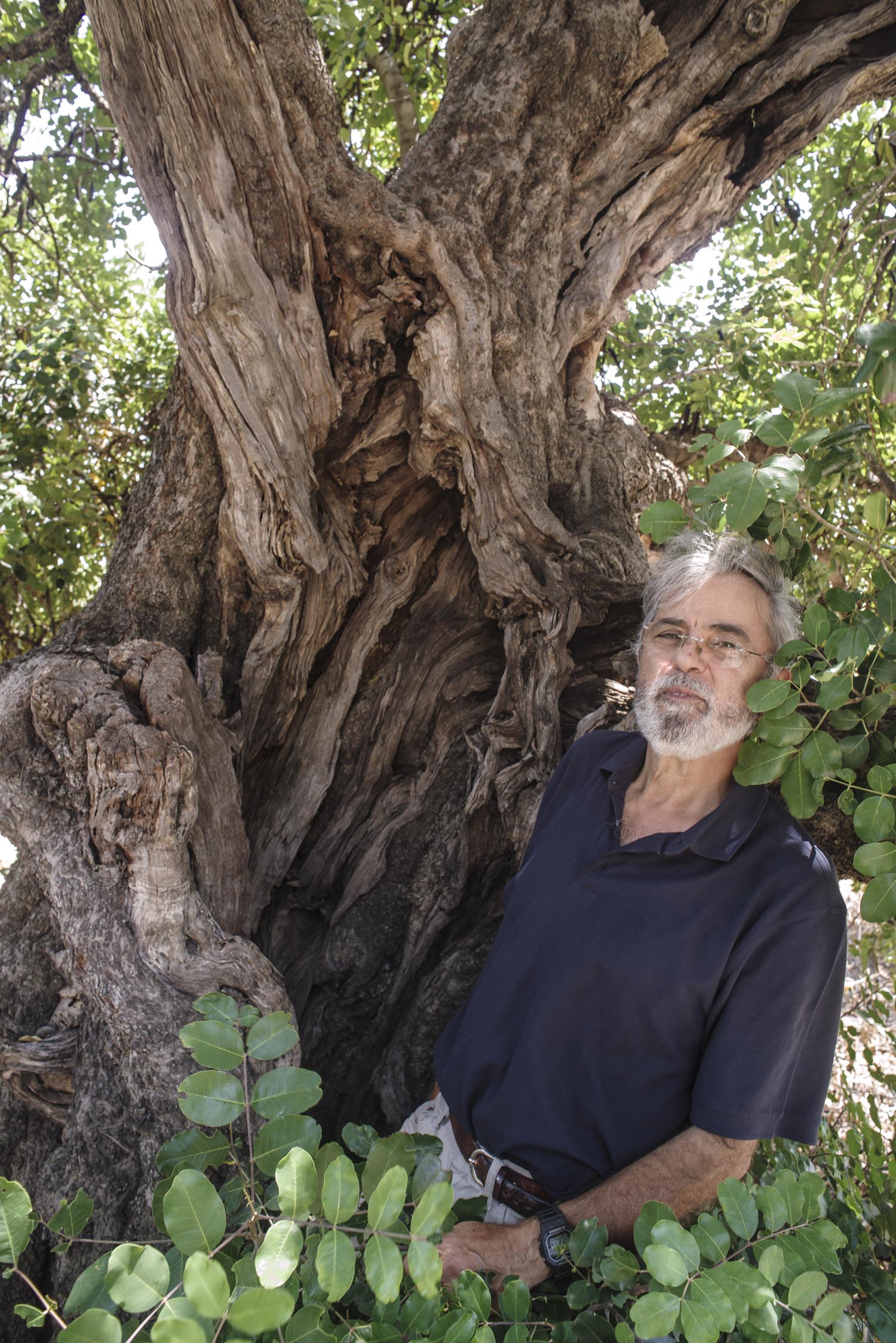
Manolis Loukakis, breeding expert
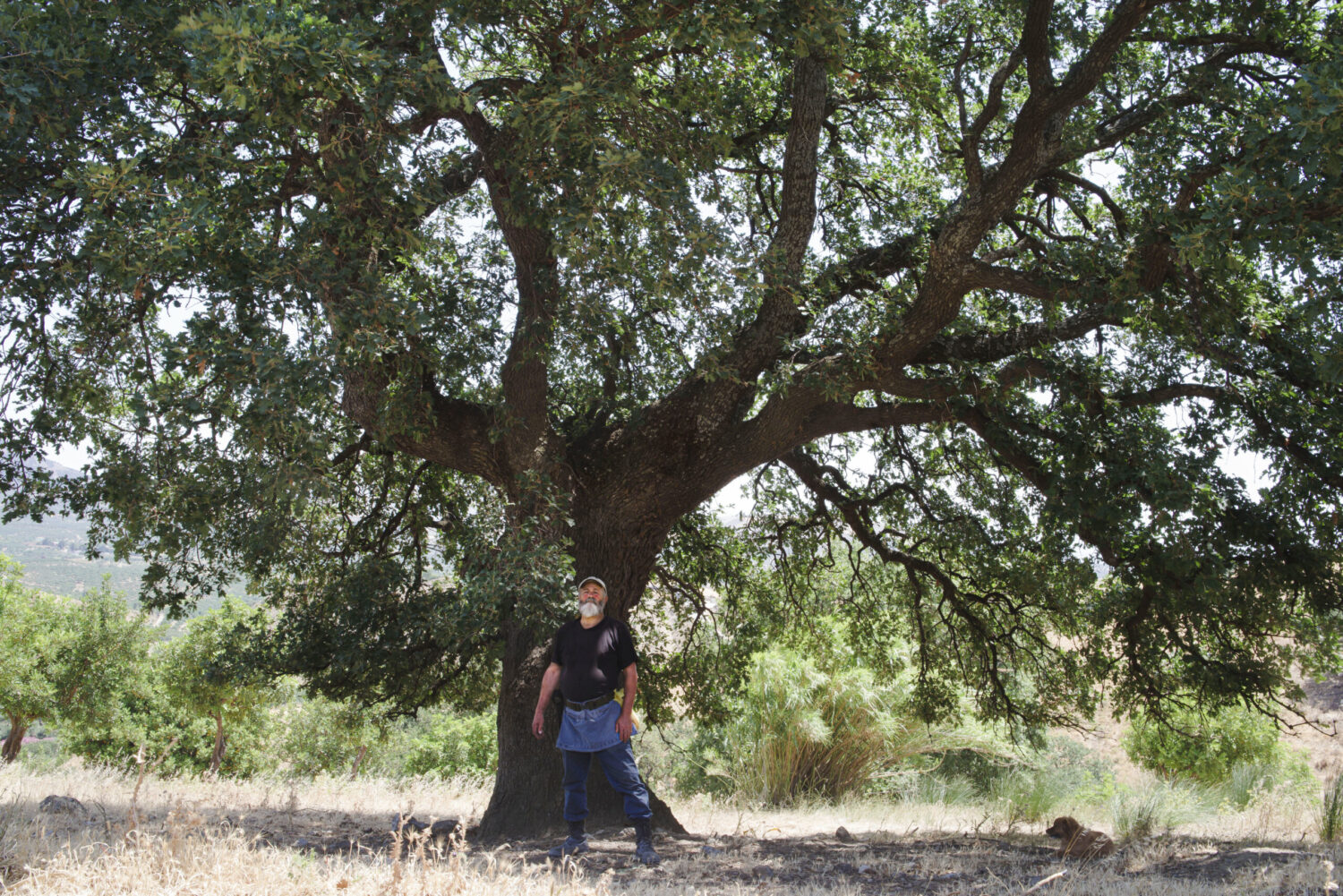
Kostas Karatzis planting new trees
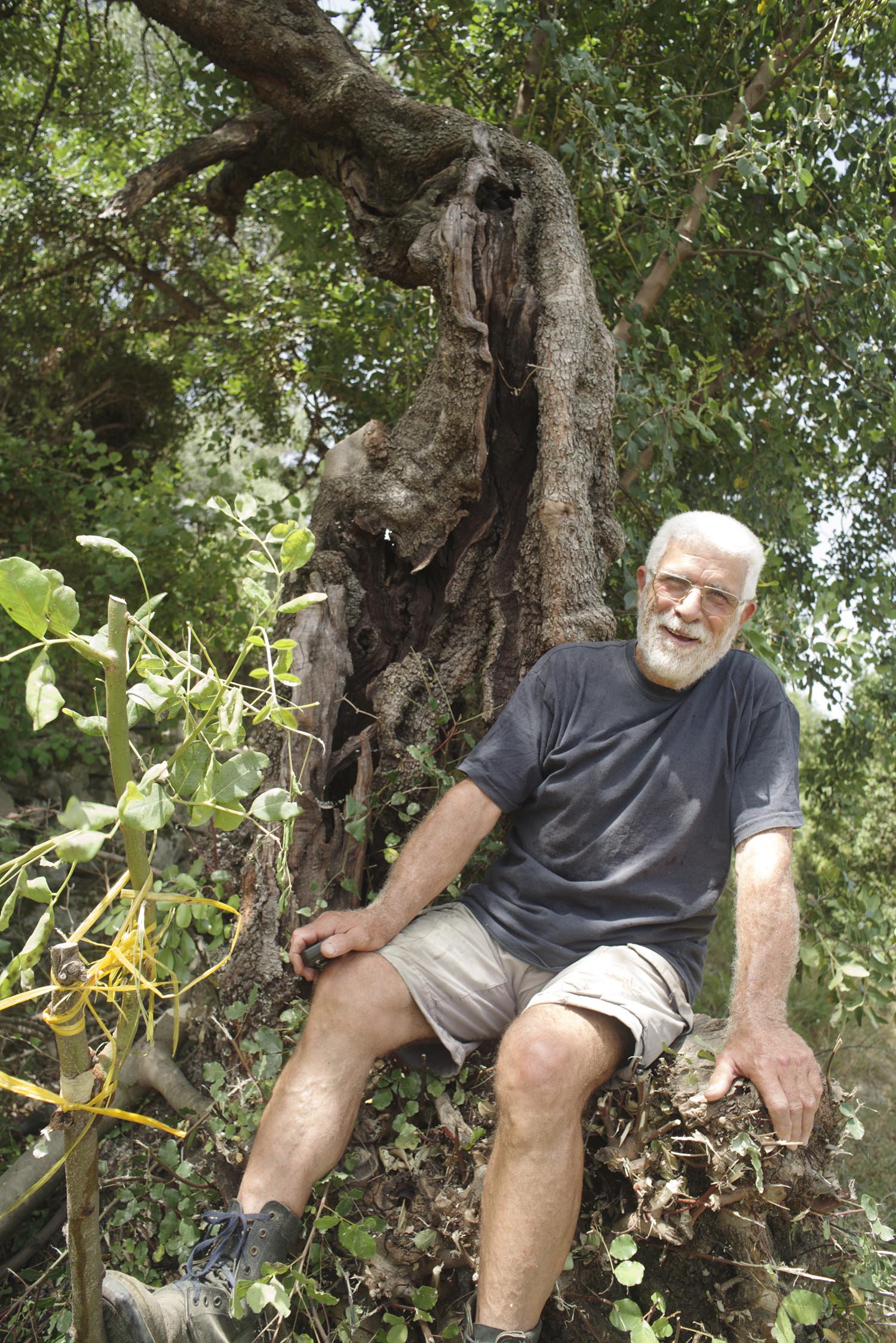
Manolas Iliakis is devoted to the cultivation of the land, he loves trees and although he is an architect/engineer and has worked in the public sector, he is first and foremost a farmer.
To develop a cultivation on the island, and not only on the island, but on the island because we're here, by giving the farmers the motivation and also helping them in their search, giving them the right information on how to cultivate, the right way to cultivate, what kind of carob tree would be right, and also giving them the motivation to create new products of food and whatever.
About "equality"
In order to survive, we human beings have to be serious and understand that we don't have differences, we're all human beings and we have to live equally on this planet, and we have respect the environment.
We have the same rights everywhere. And to stop all this moving of the population because of wars. So maybe you'll say that I'm a romantic but I'm very practical, very realistic.
And in this effort the carob tree is going to help us, and I know it.
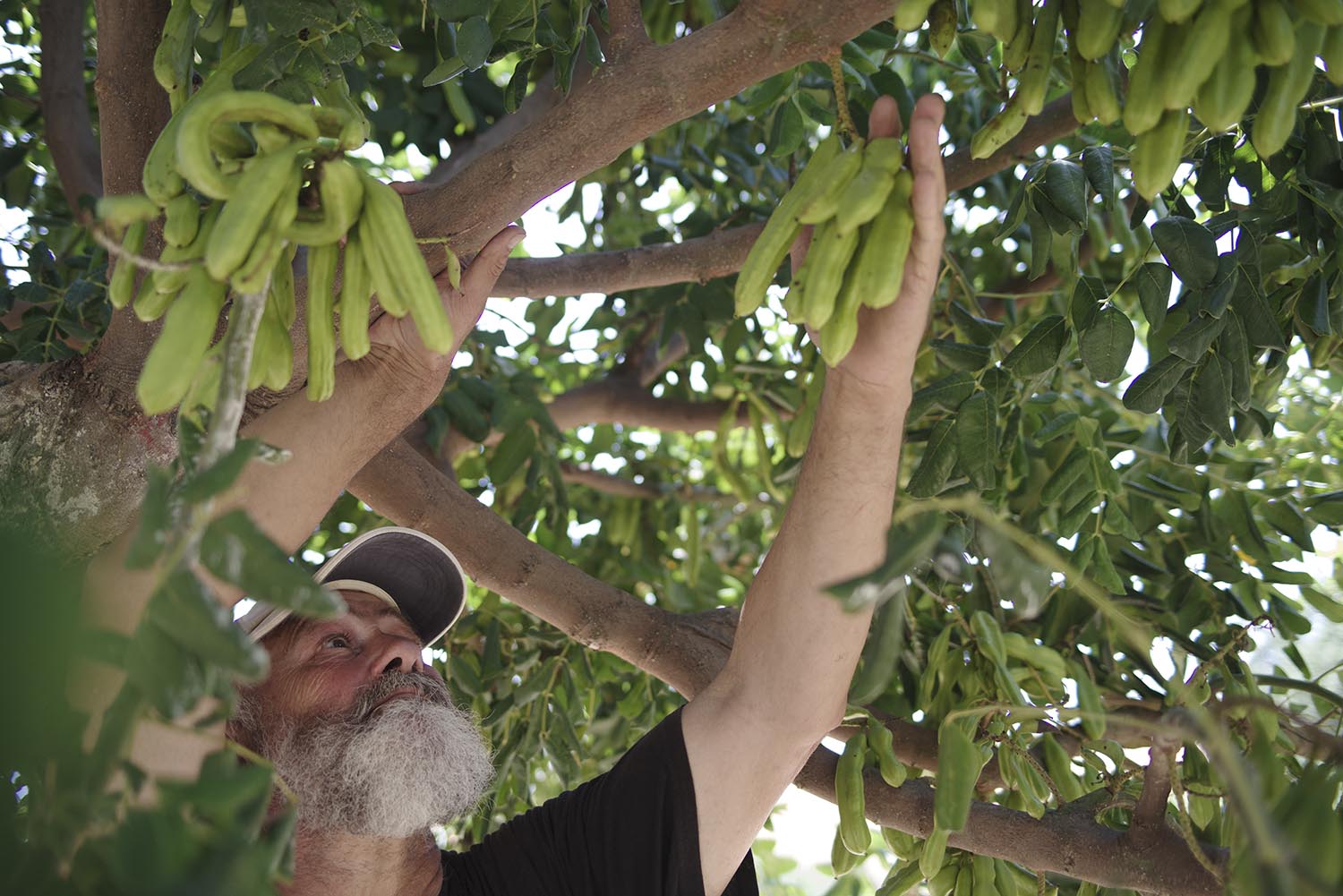
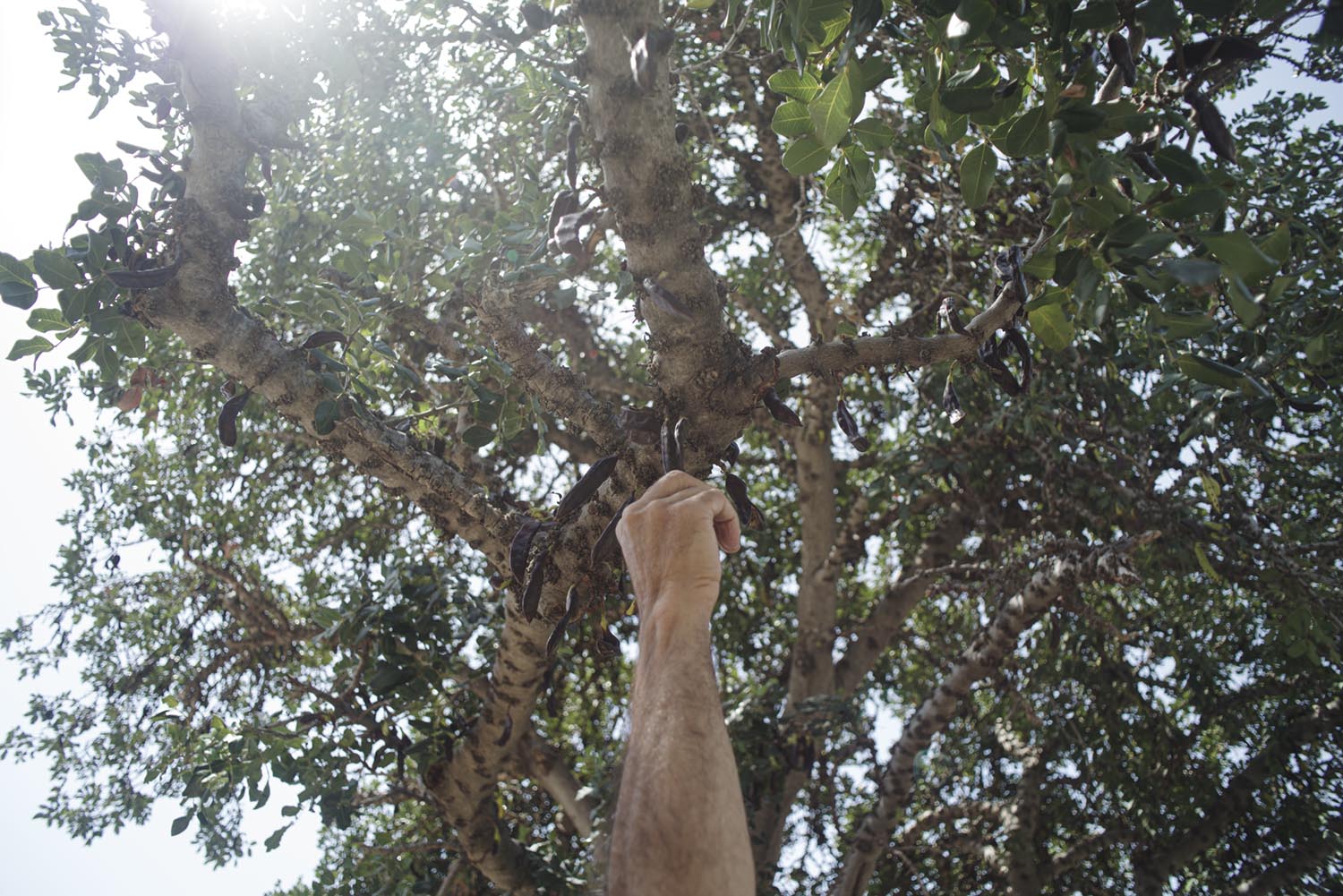
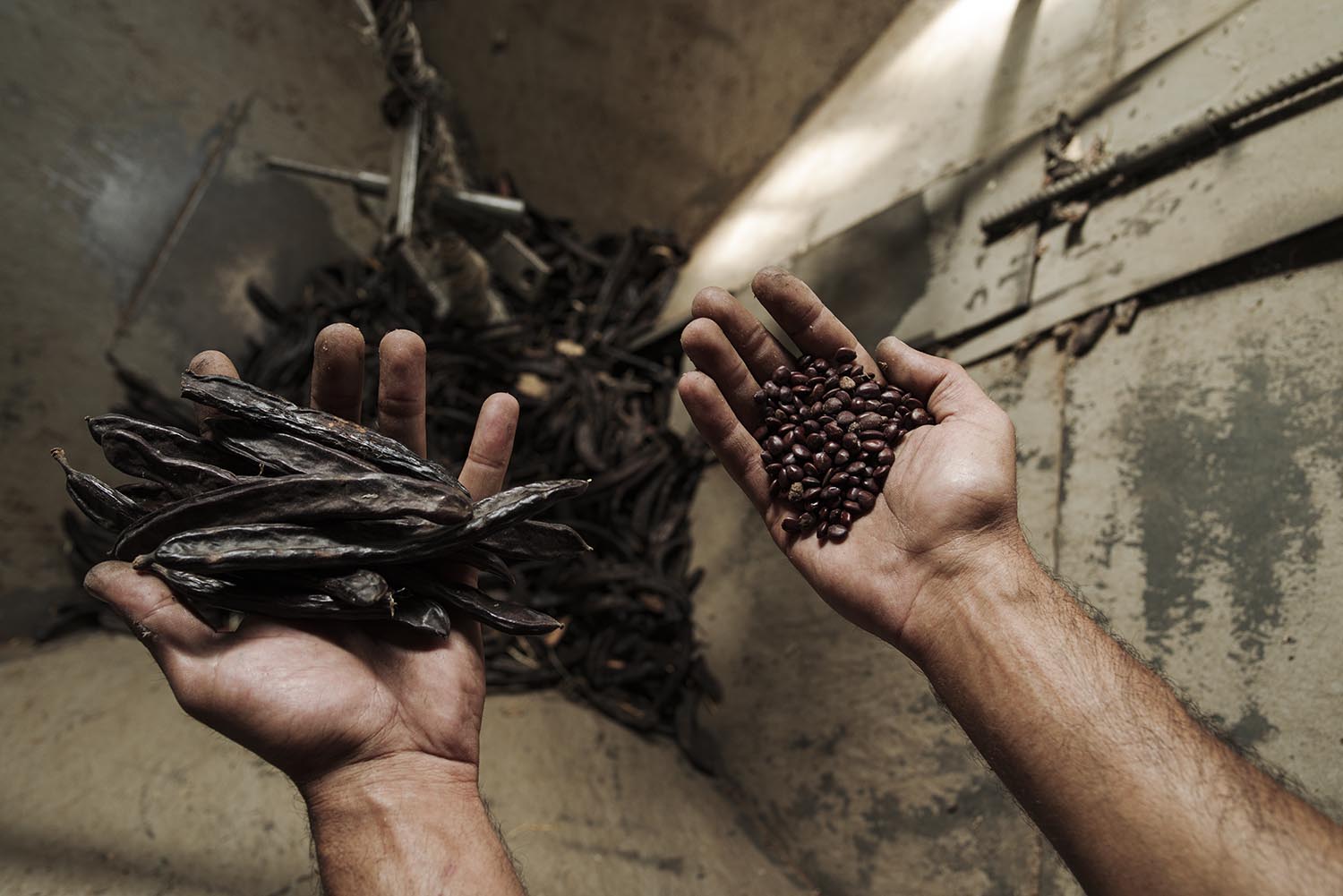

It is estimated that there are 33 million olive trees in Crete! And the number is still growing... A monoculture! Carob and chestnut trees, which saved them from hunger during the Second World War, are now the exception.
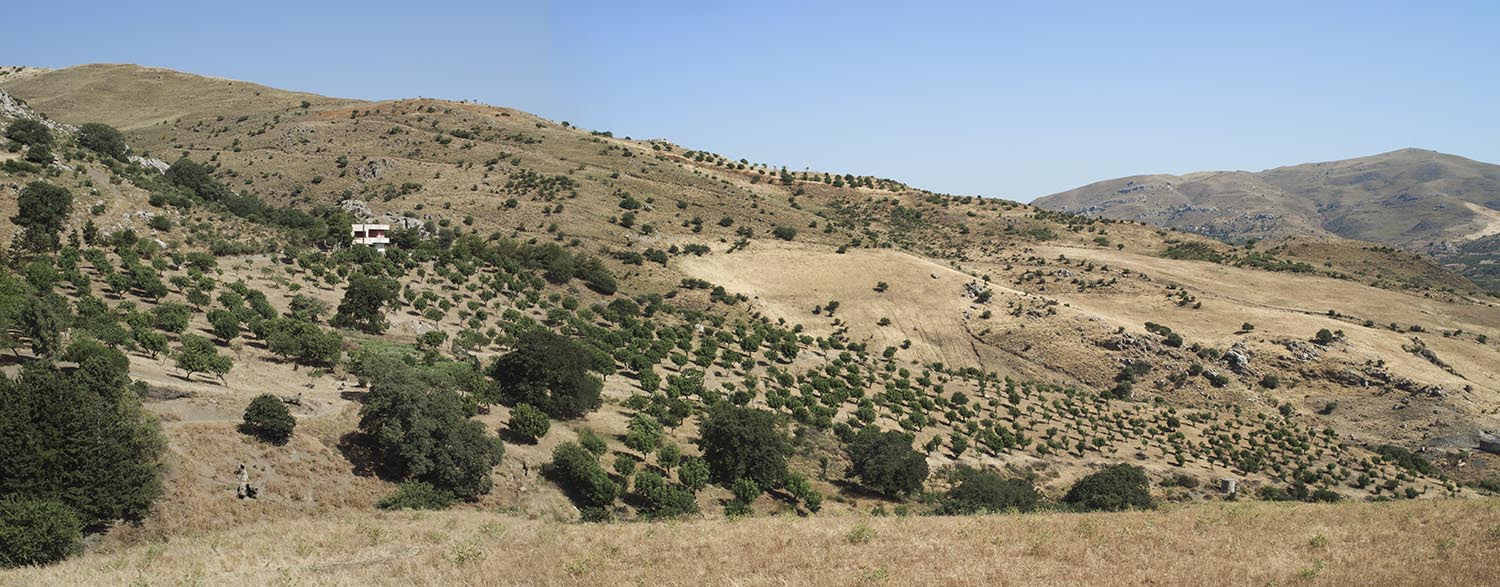
And one of the exceptions is Kostas' farm, where he has planted many young carob trees that are alredy giving fruit.
I'm trying to do my best and I don't have, as you put it, any expectations - "So I'm trying to do this so that tomorrow I'll have this result, otherwise I'm not doing anything..." I've been doing this all my life: trying, trying, trying, trying, because there's no other way. And if something good happens, I'll be happy. If not, I'll still try my best.
Kostas Karatzis is the great success story of Korina's dream to bring back the carobs tree. Kostas lives alone, but his enthusiasm, positive attitude and exceptional results are a great role model for others to learn and plant carob trees in Crete. He works for 10 and also makes products from carob - carob syrup (the best in Crete) and carob brandy.
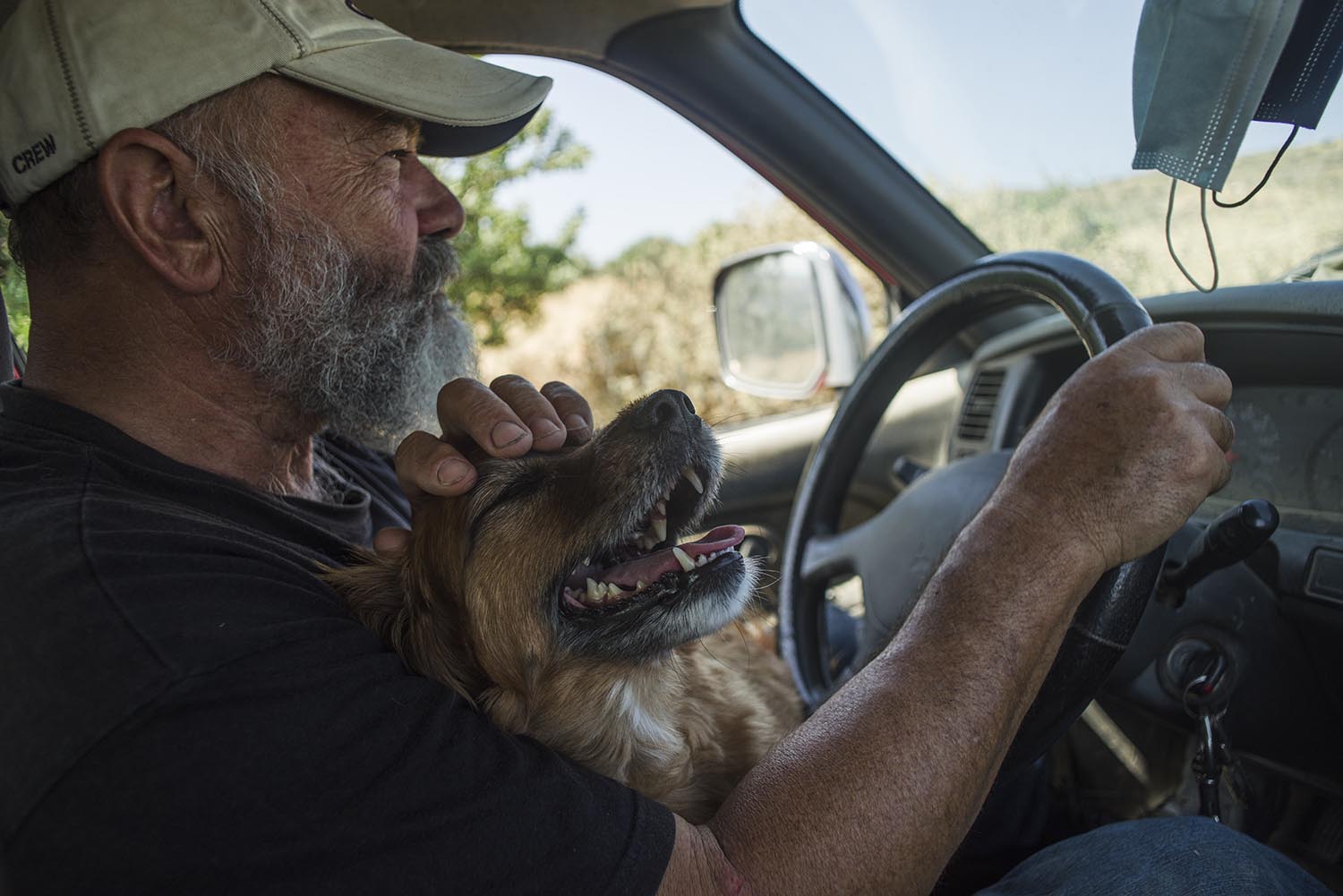
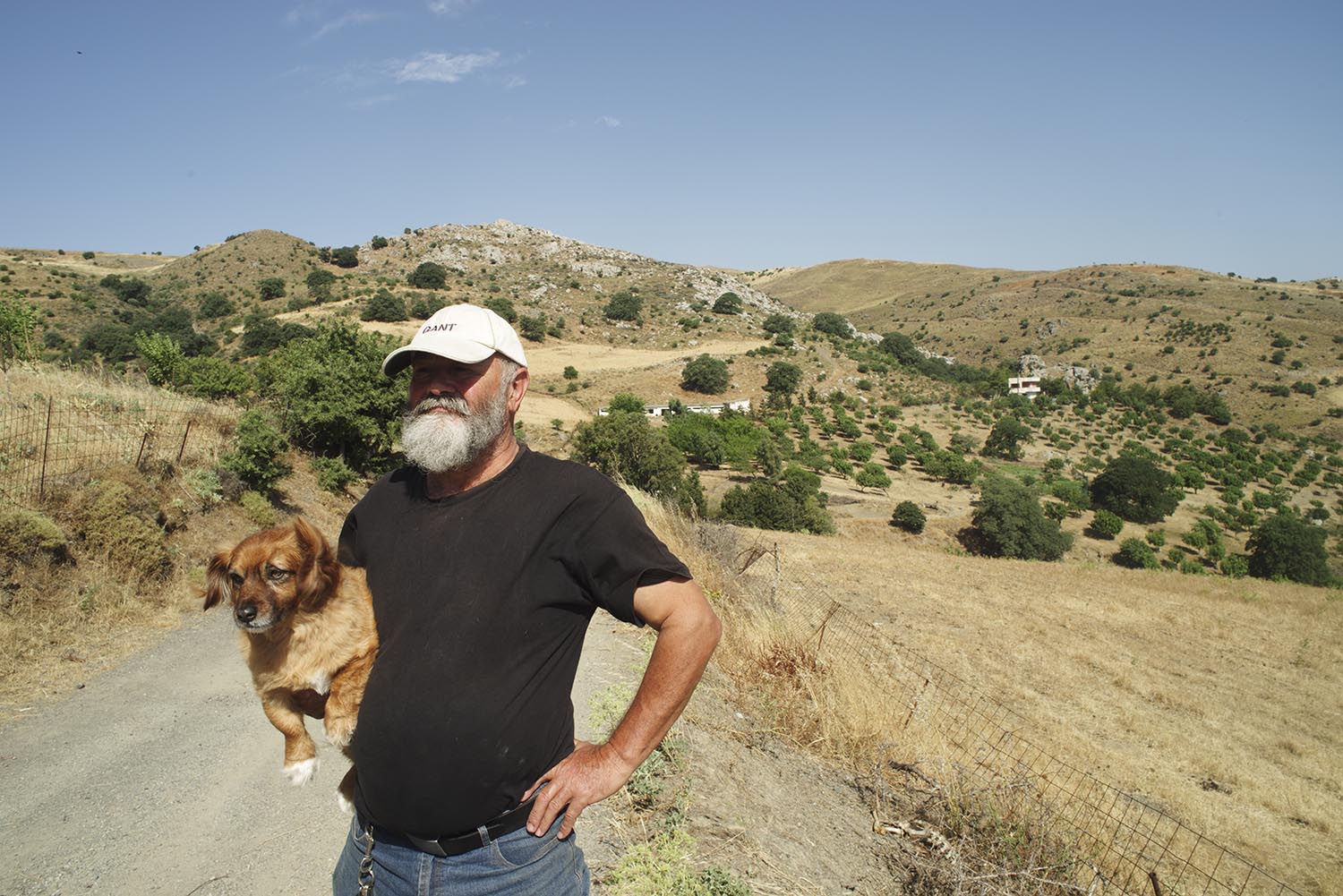
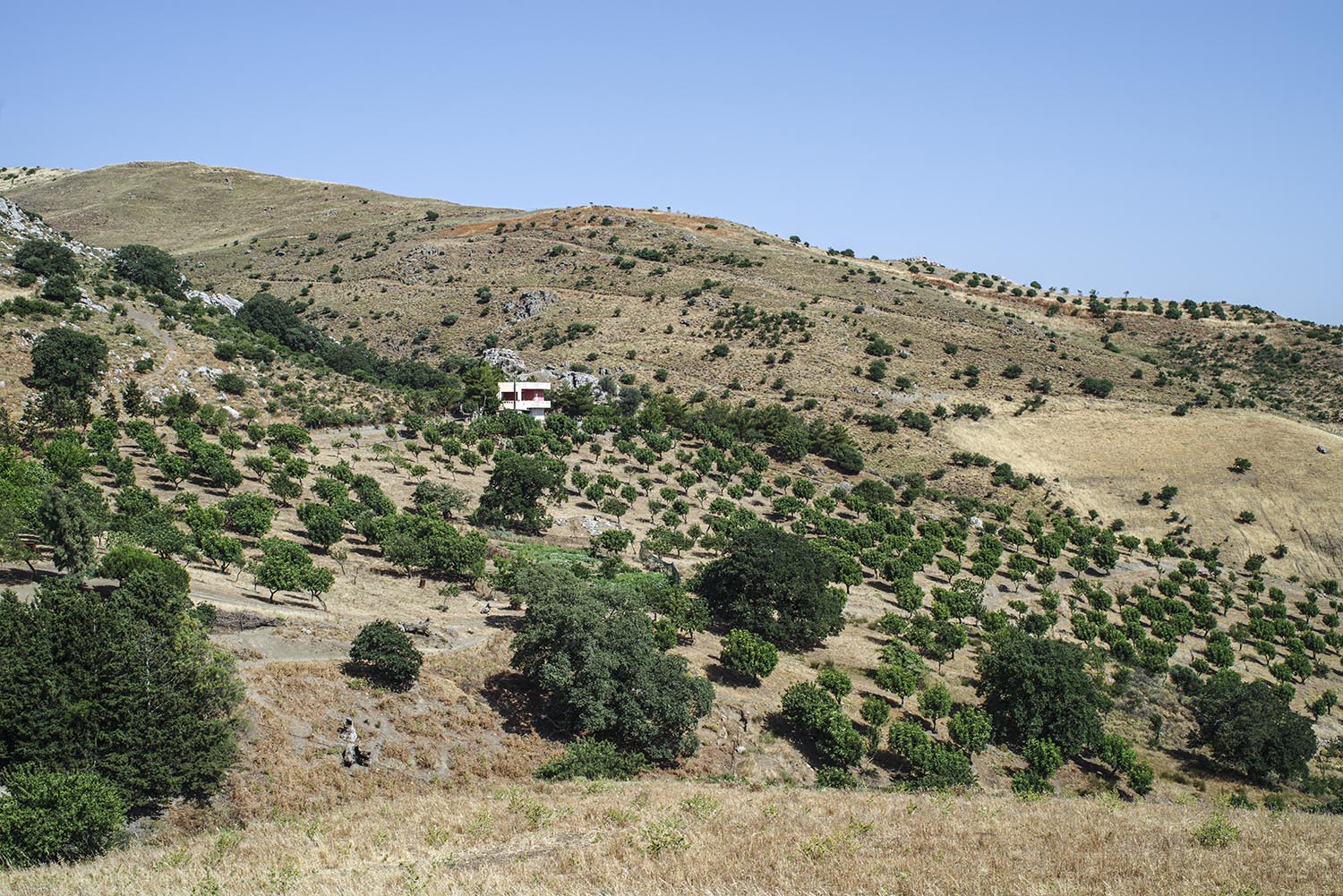
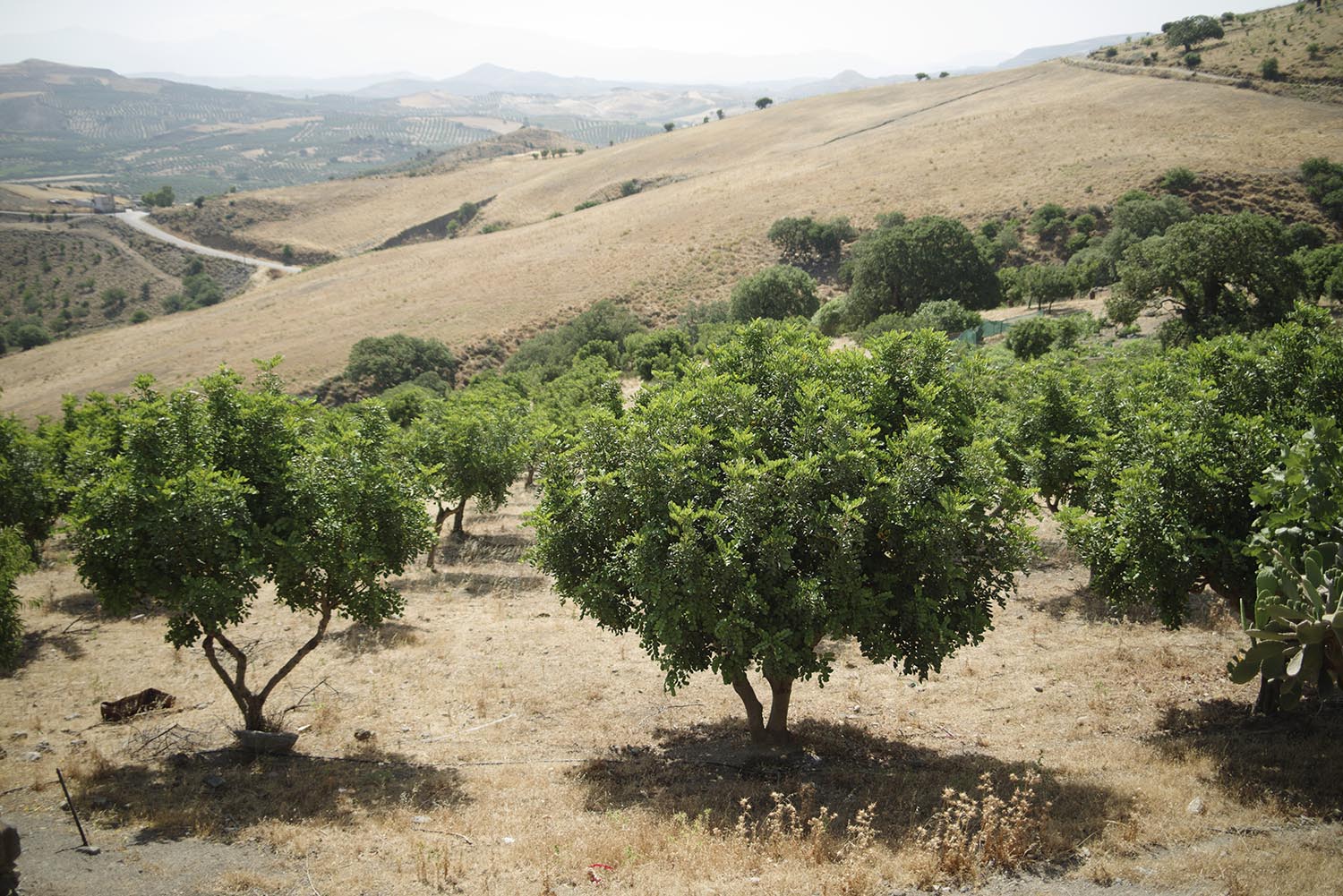
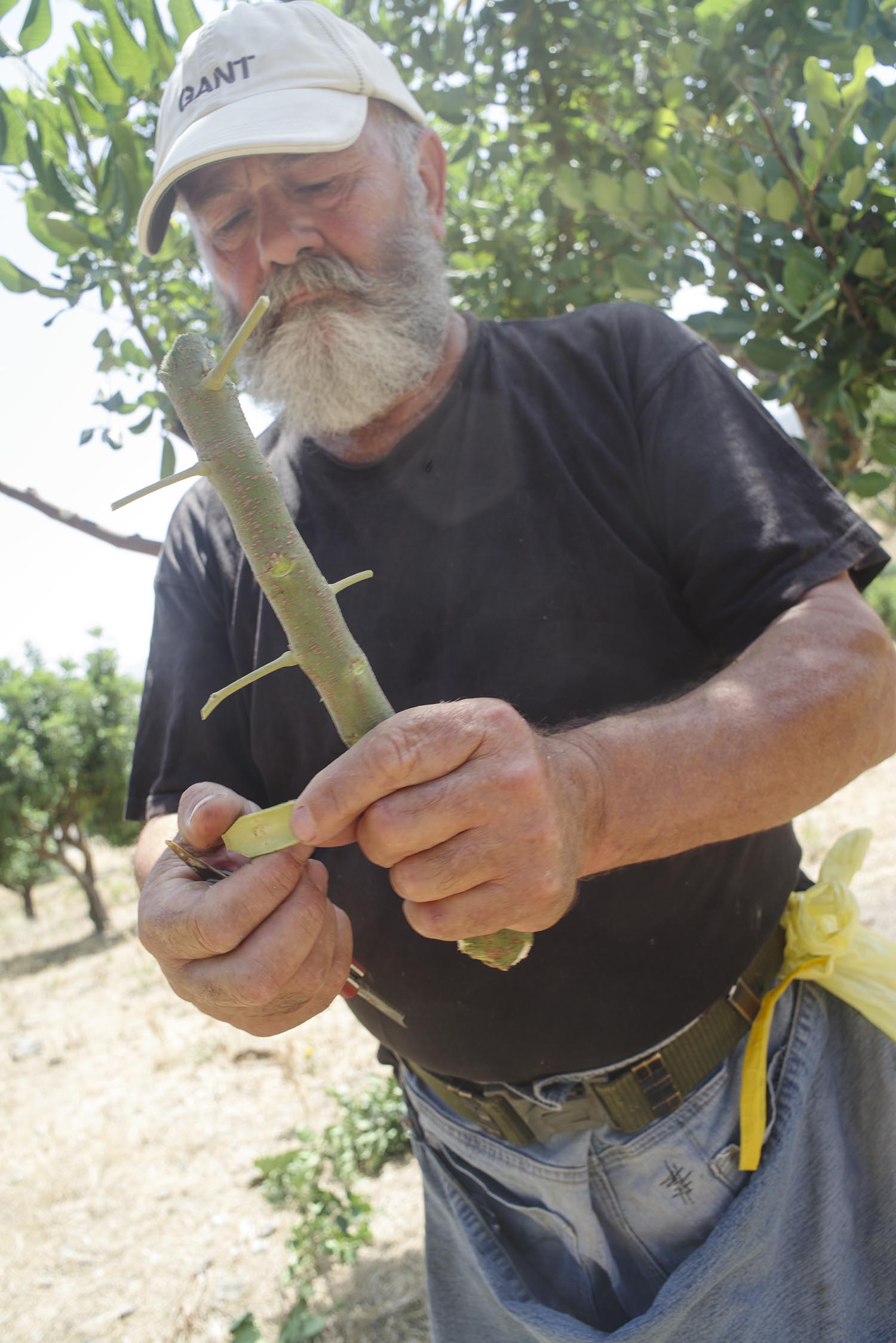
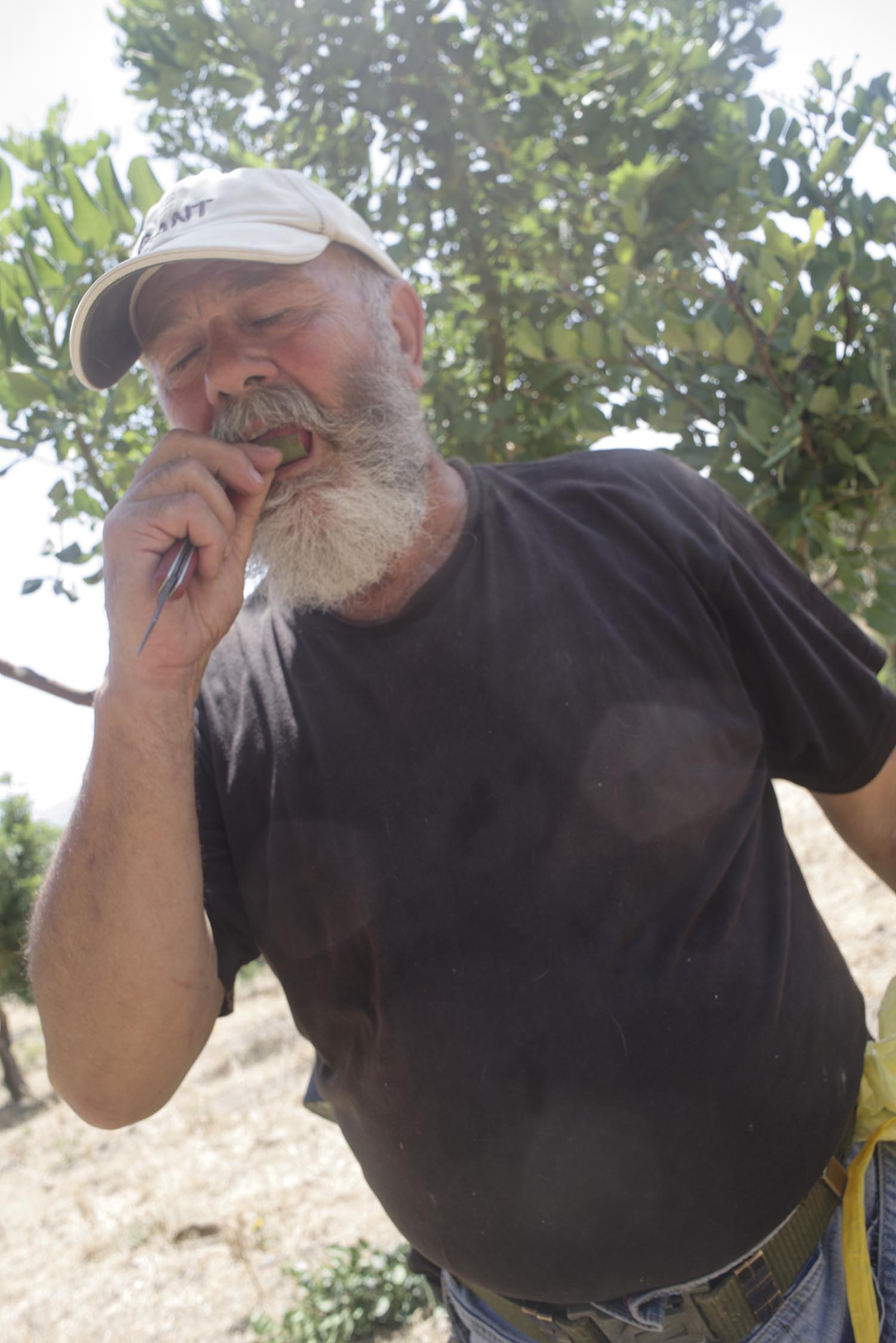
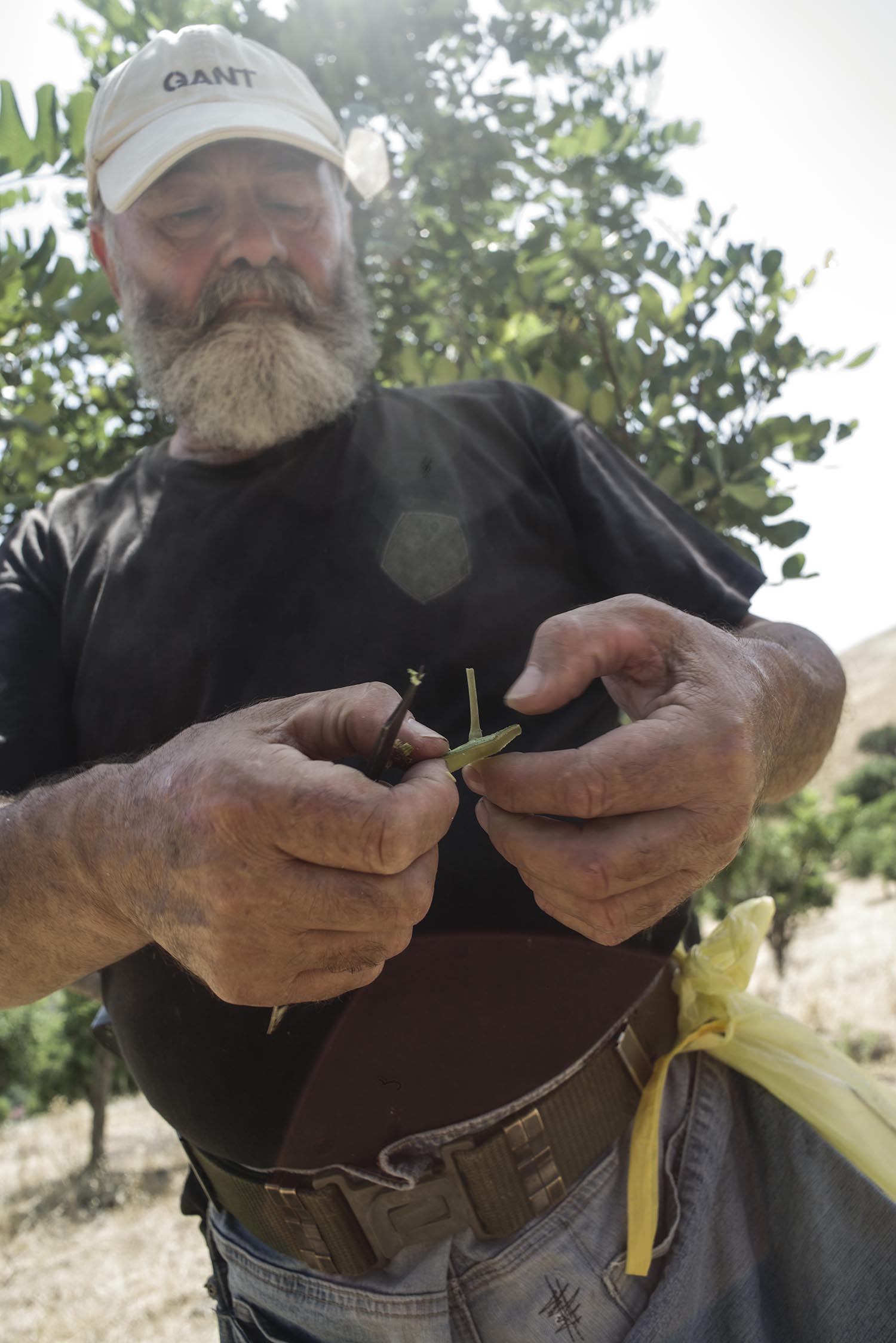
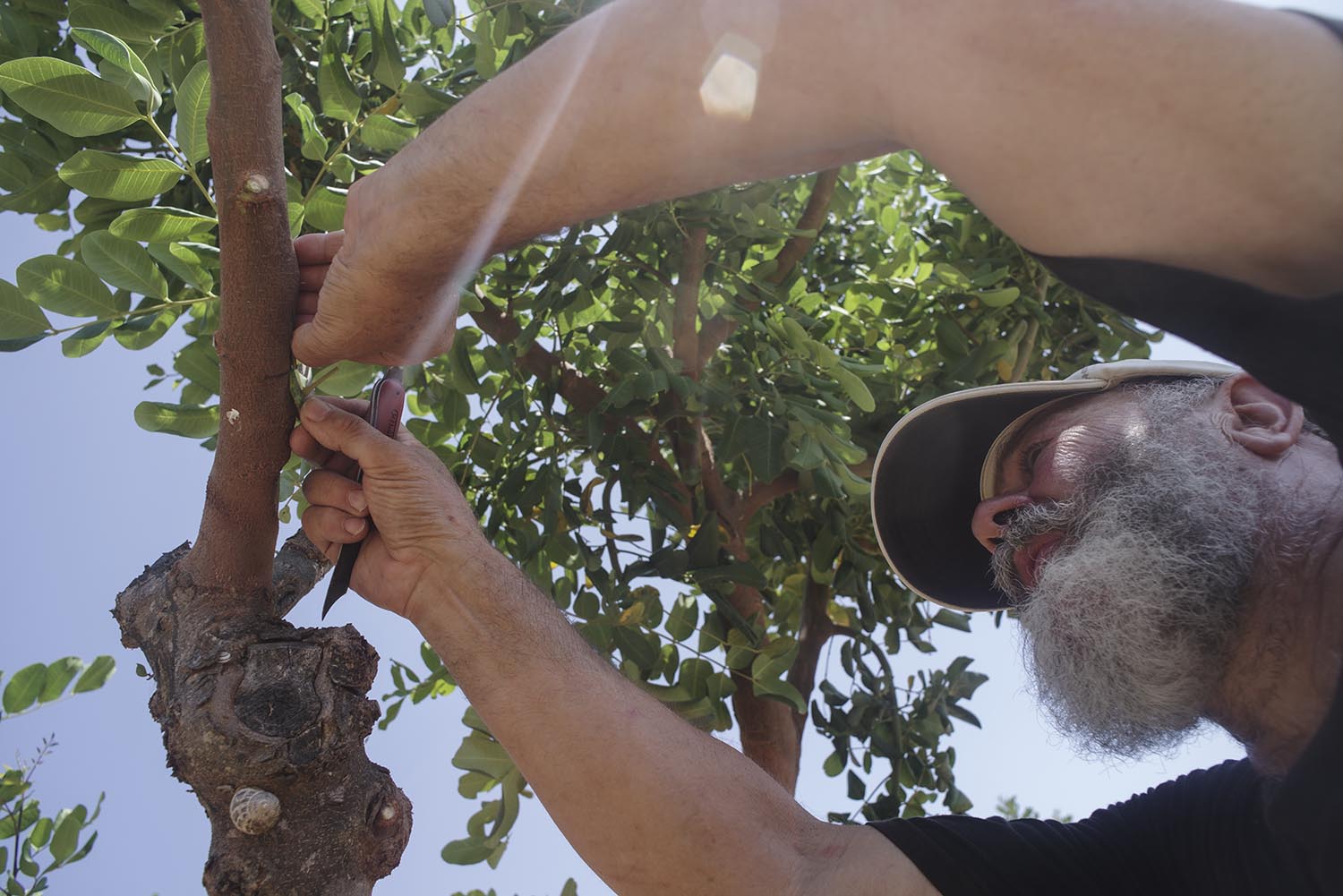
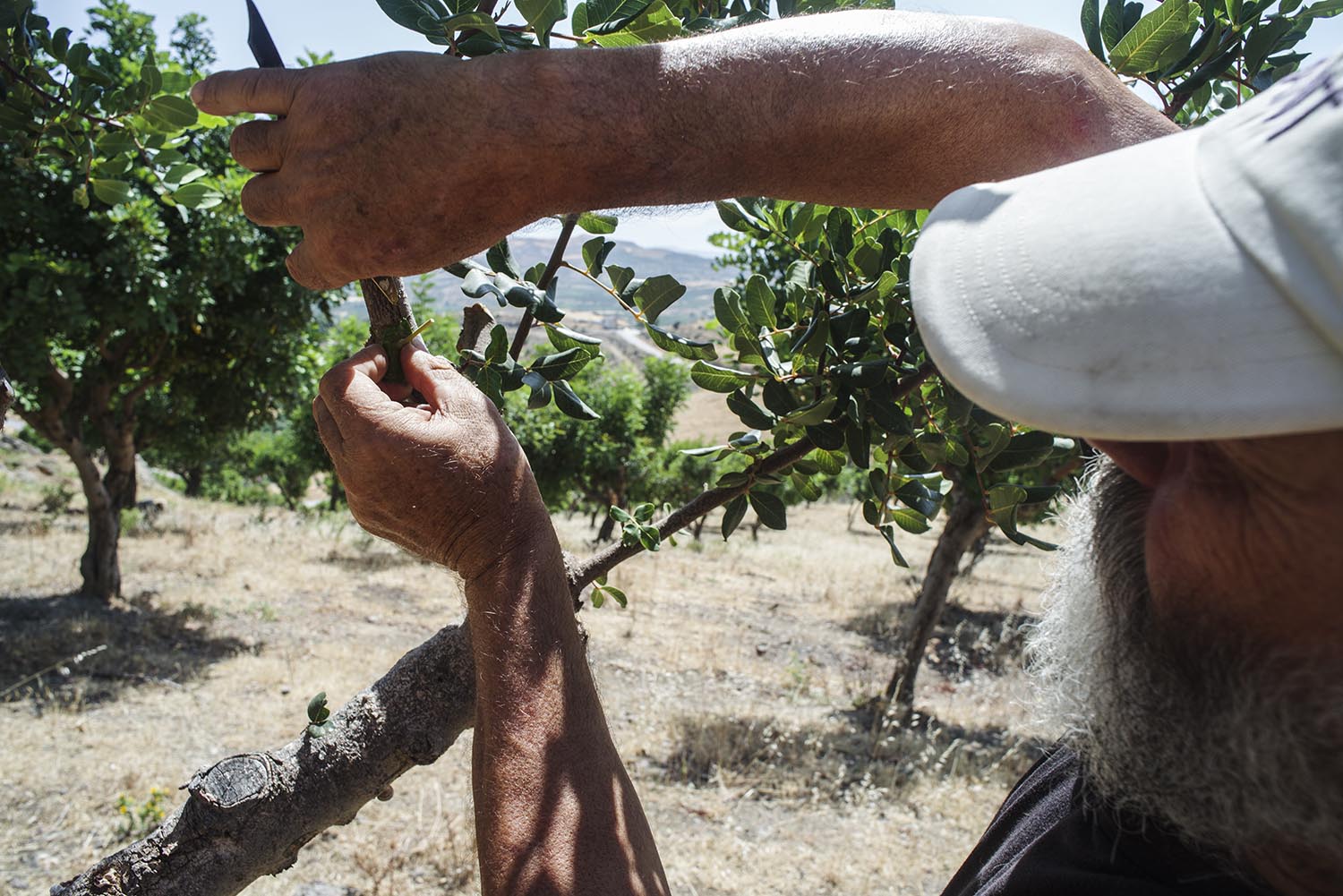
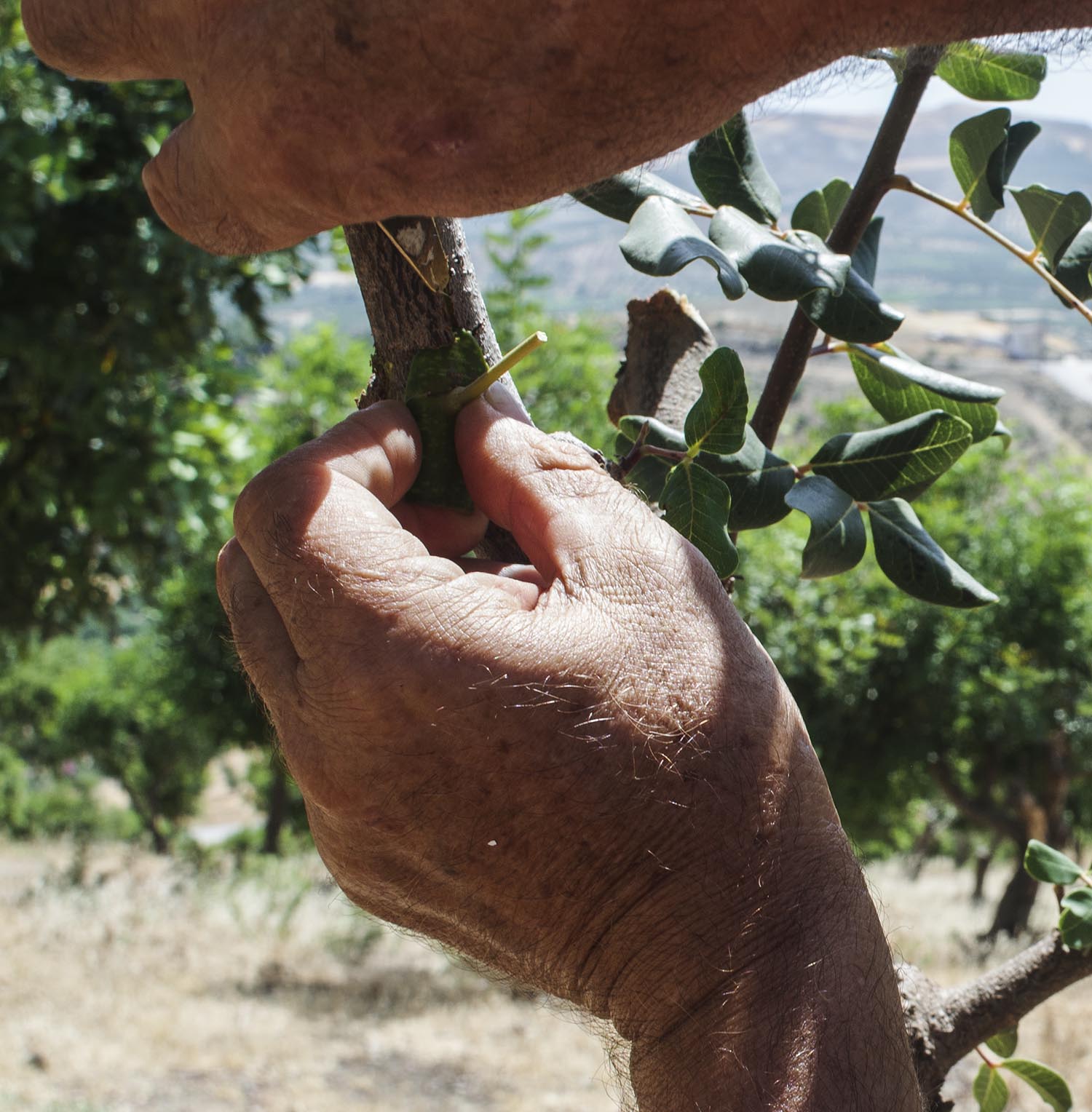
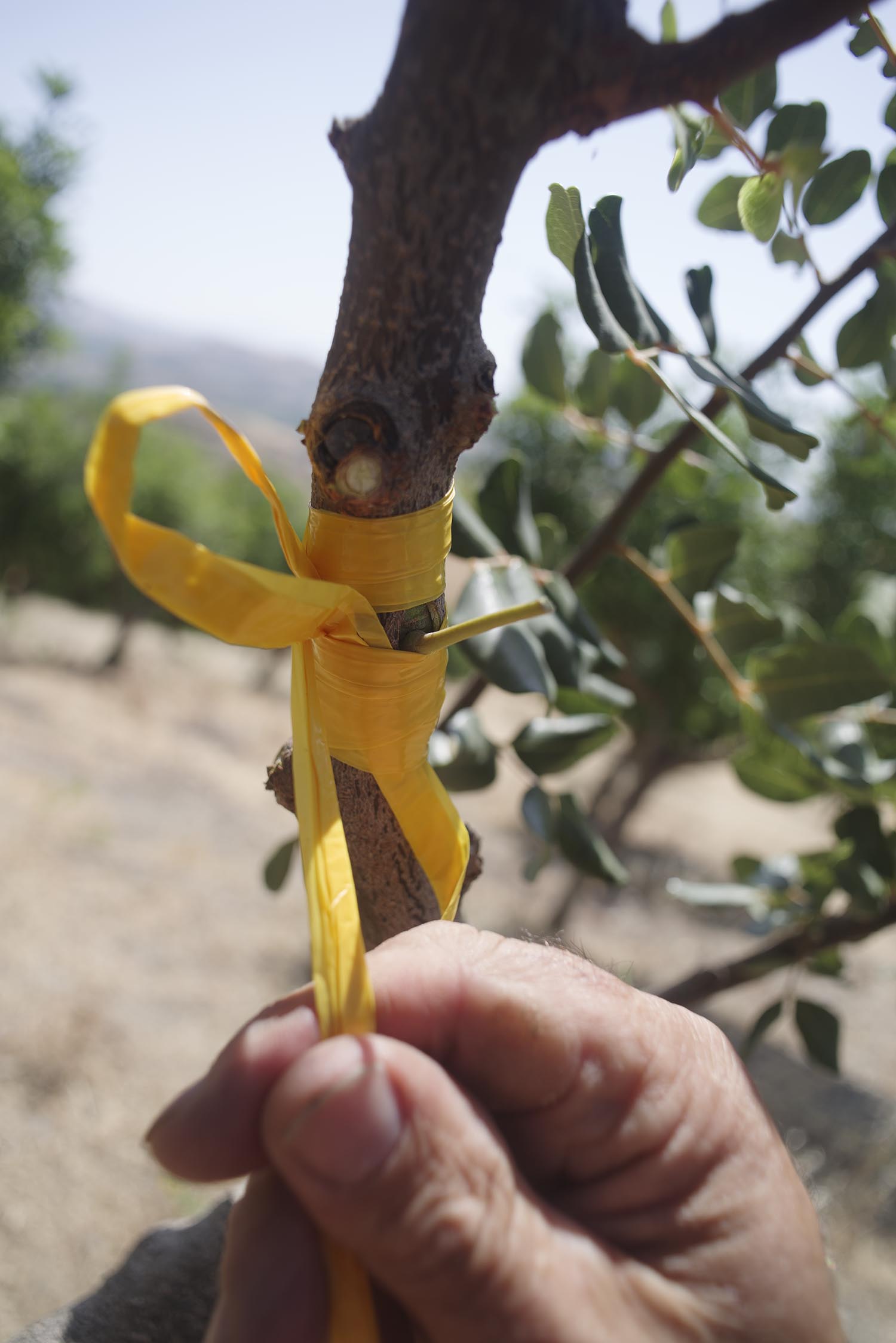
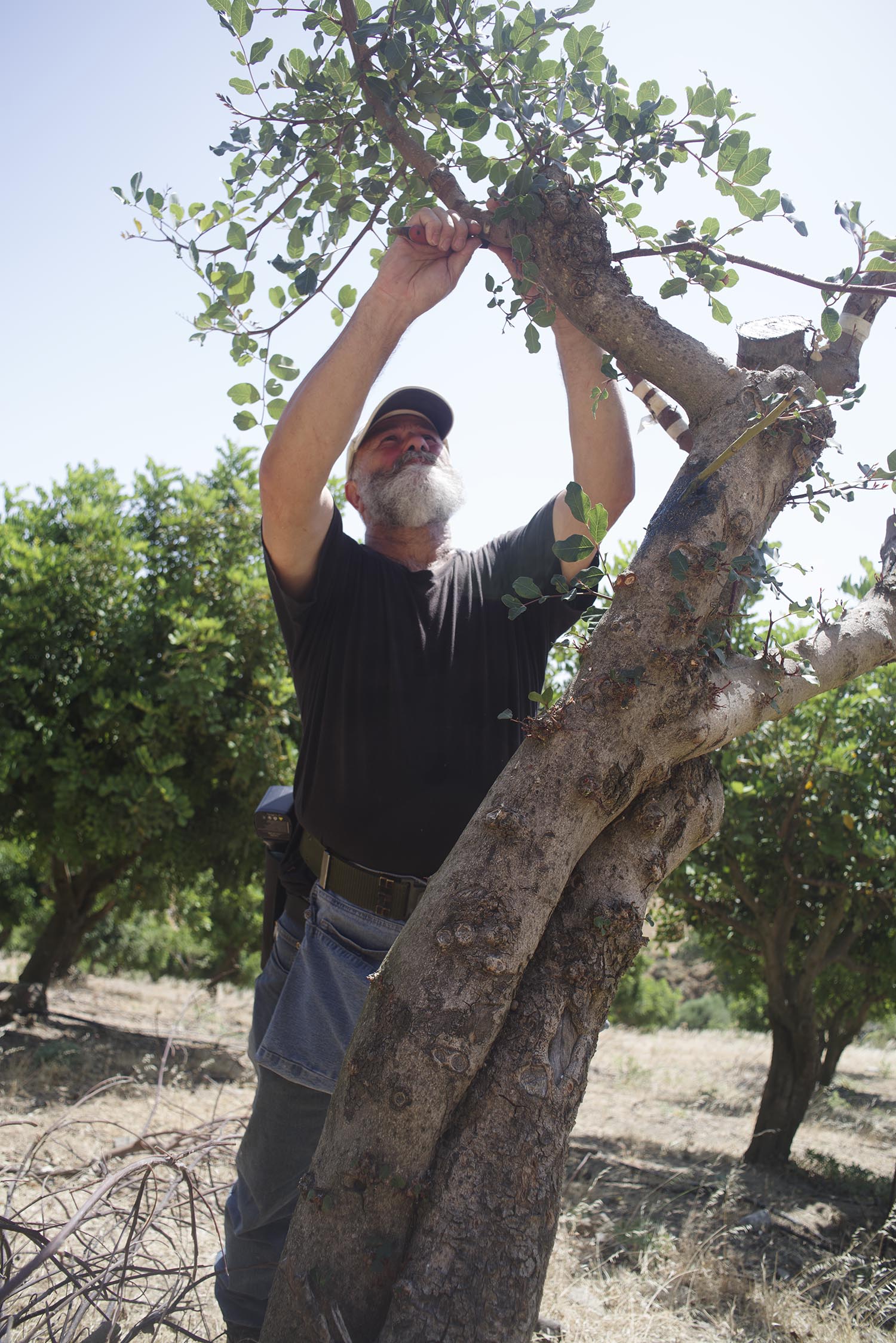
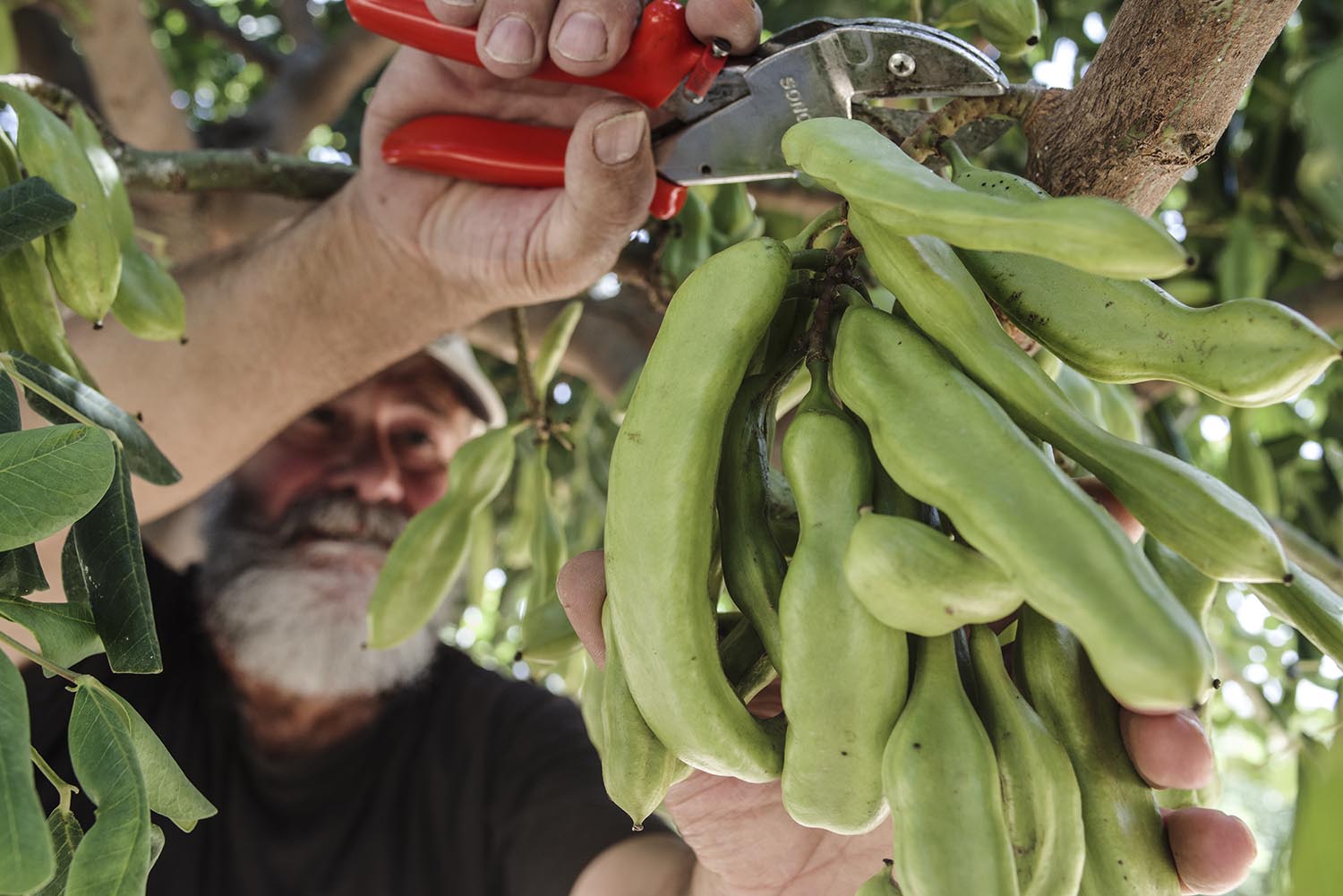
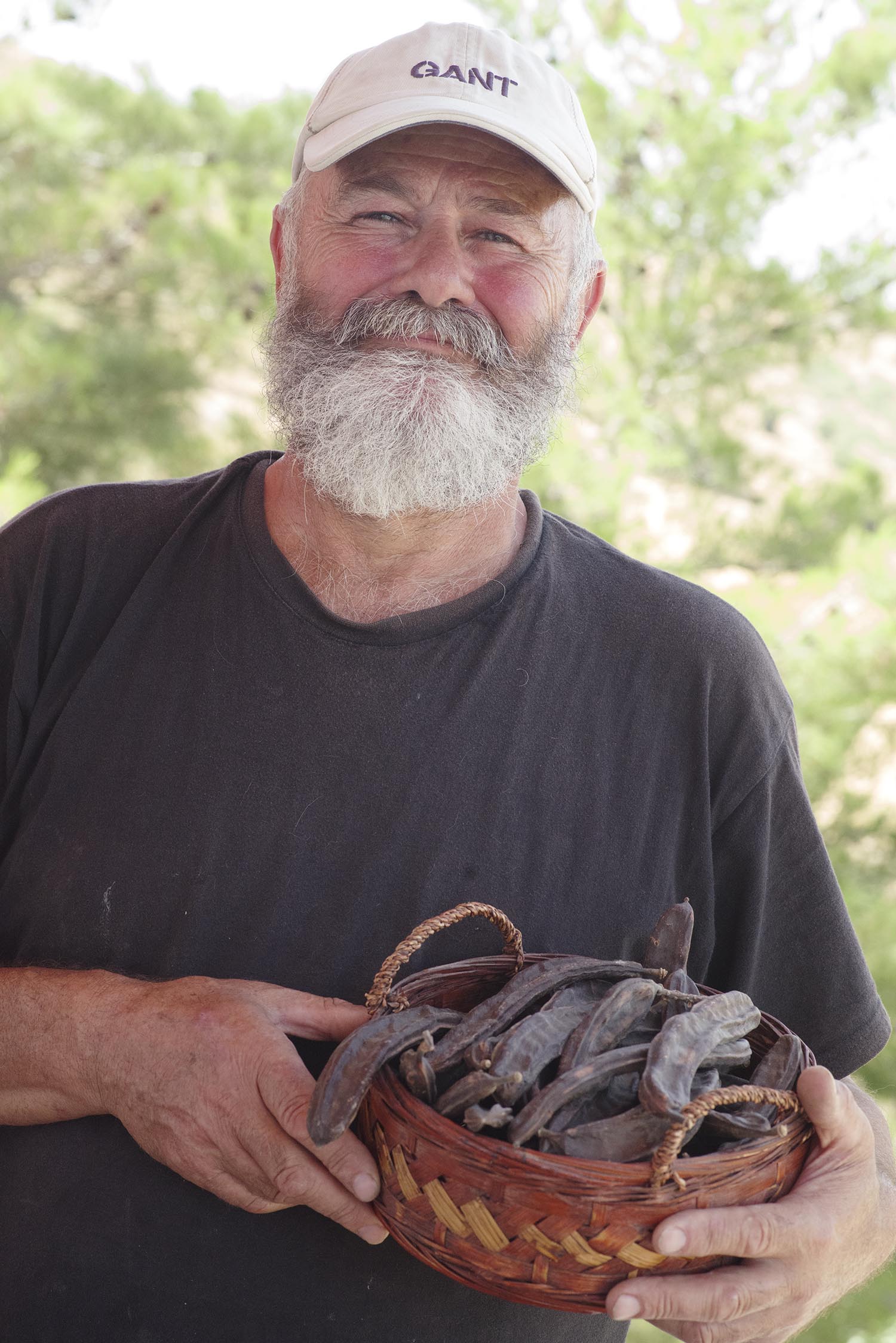
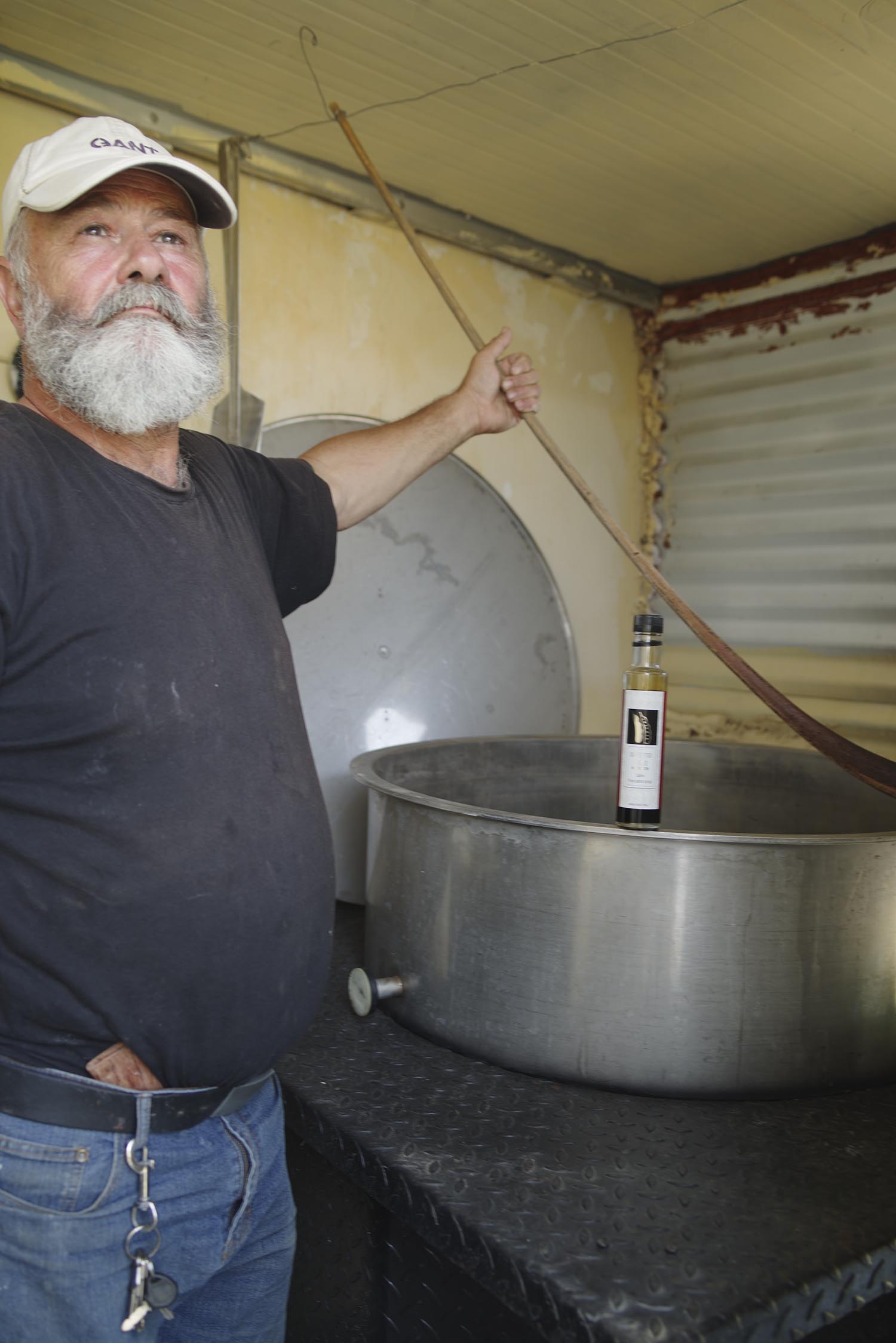
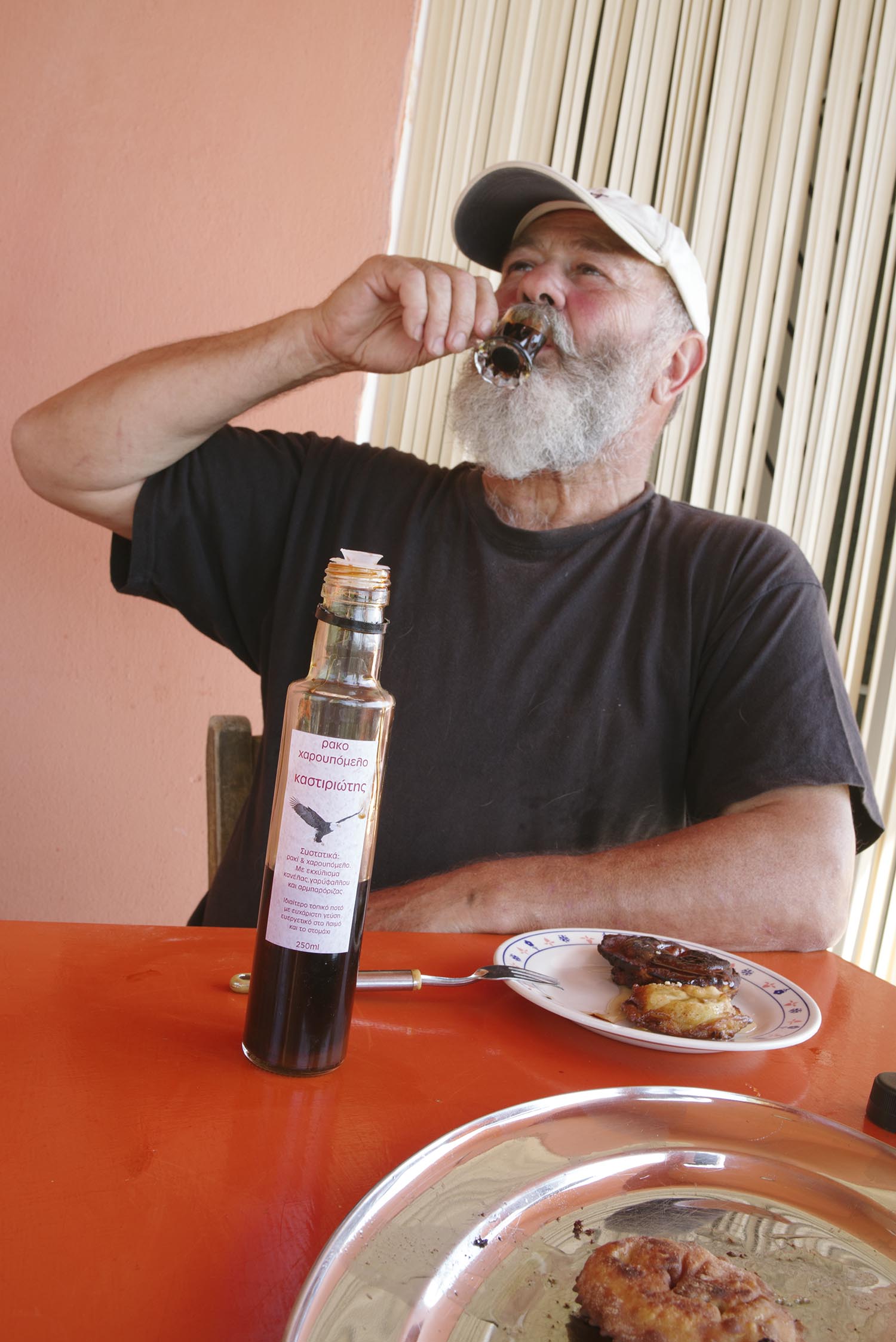
Corina on carob syrup: "My mother takes one spoon every day, every morning. This is medicine. And for me it's very important, because this carob syrup is not just made from carob pods, it's made from the whole carob and the seeds. The seeds have proteins.
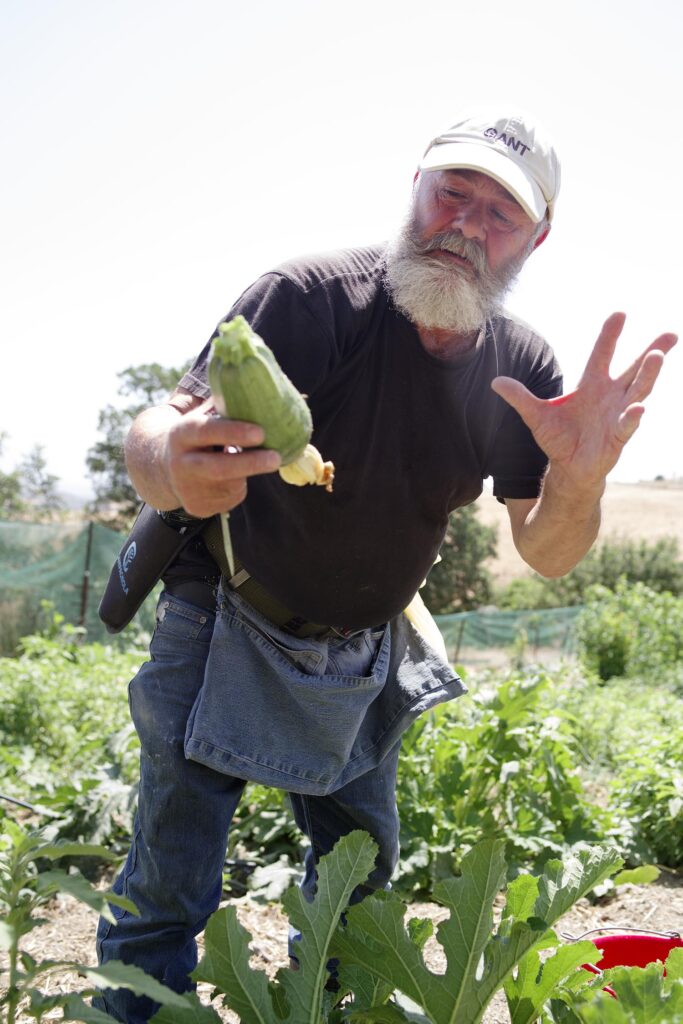
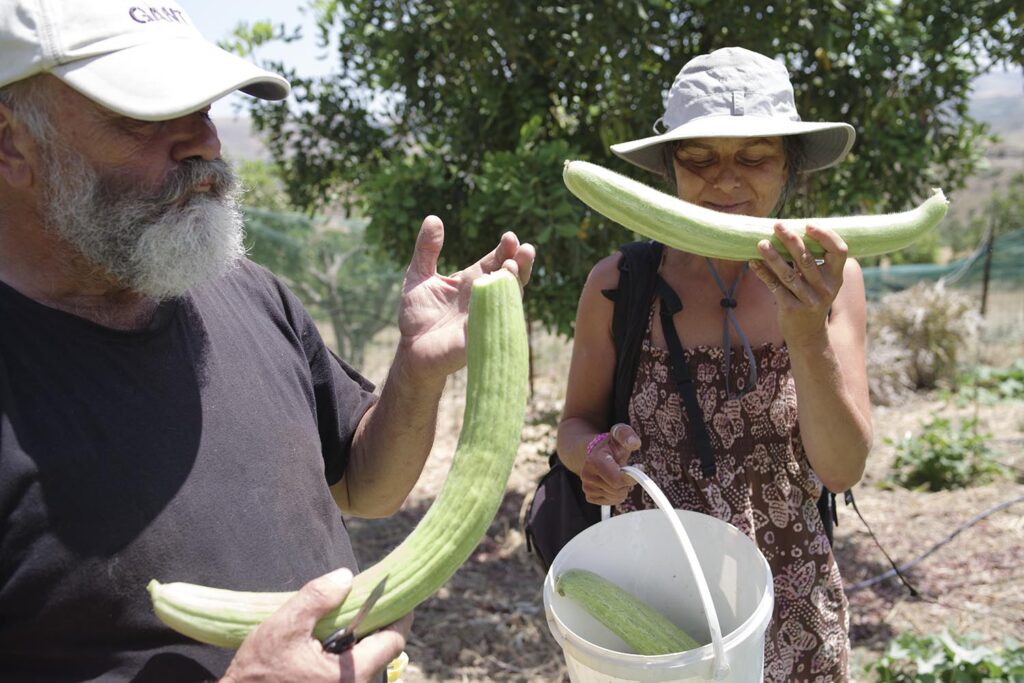
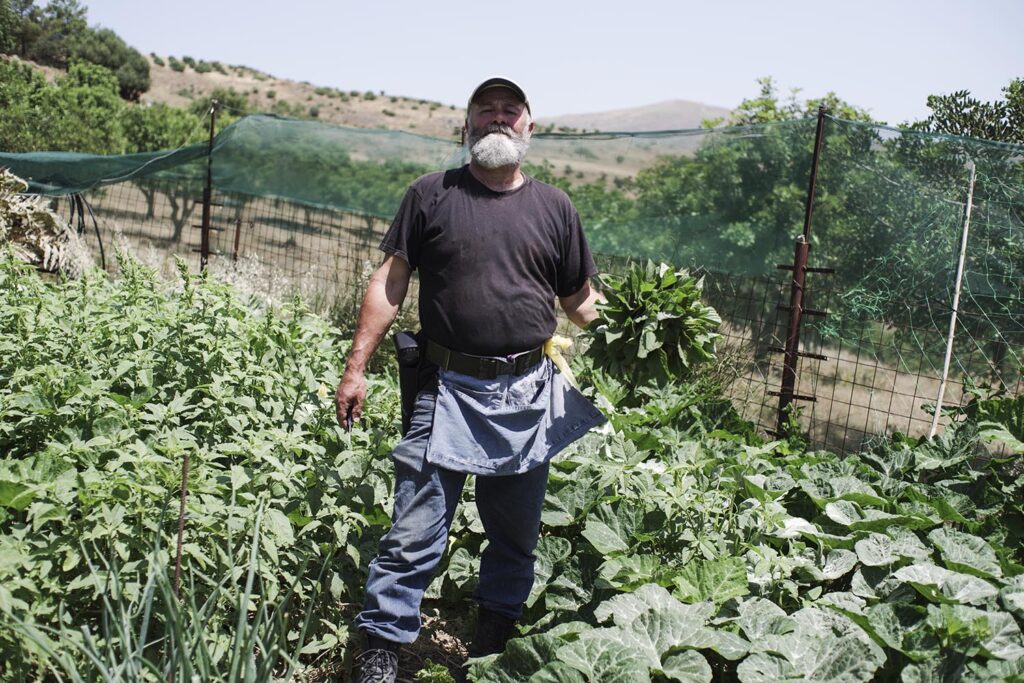
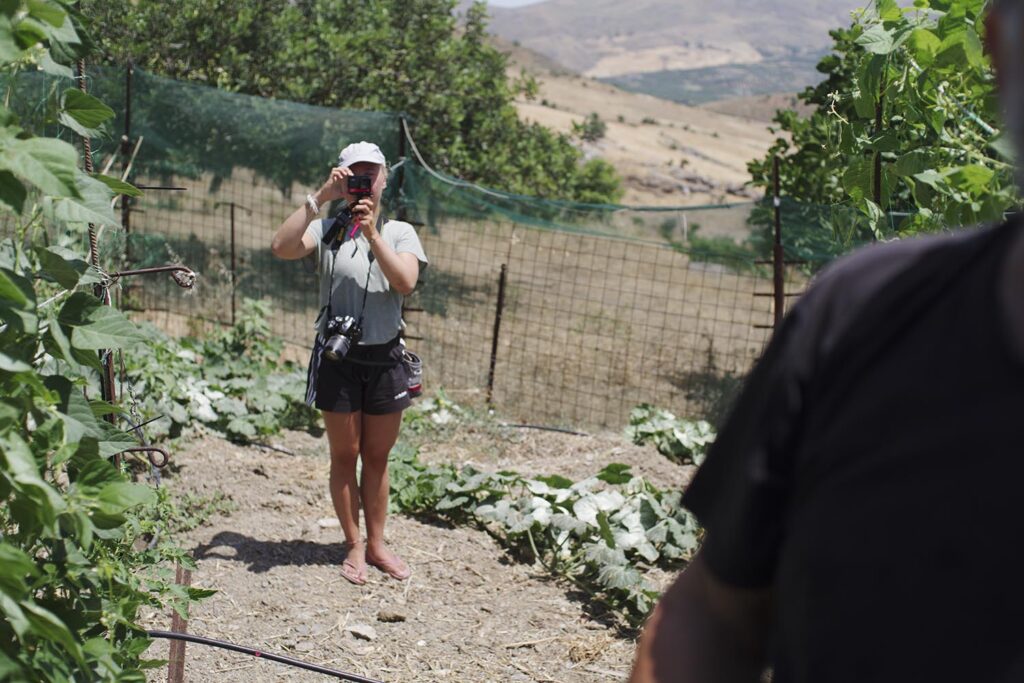
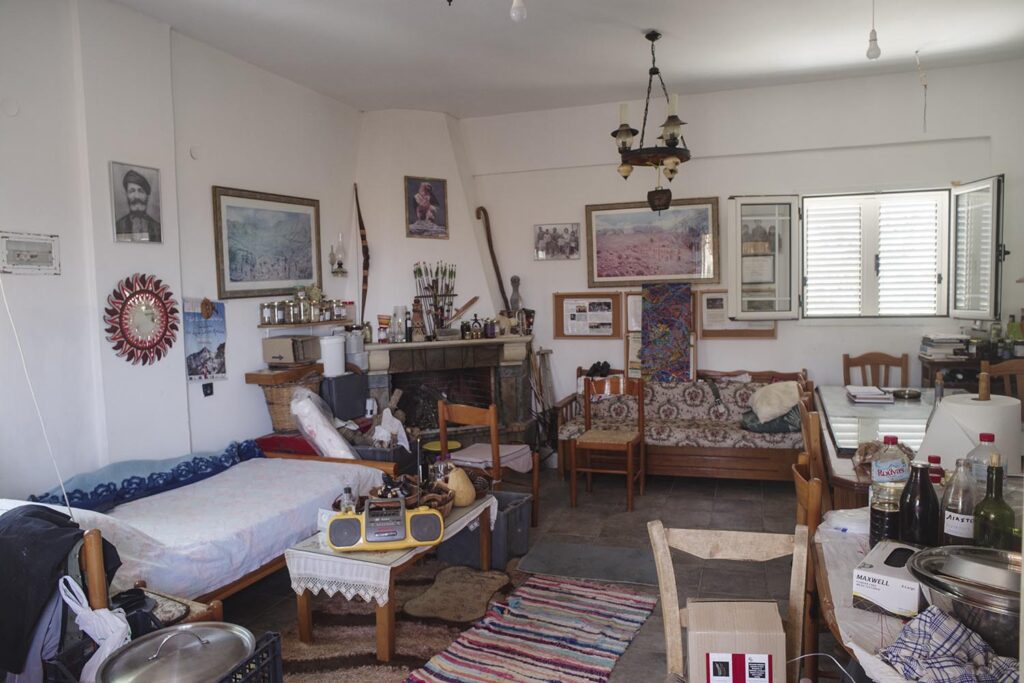
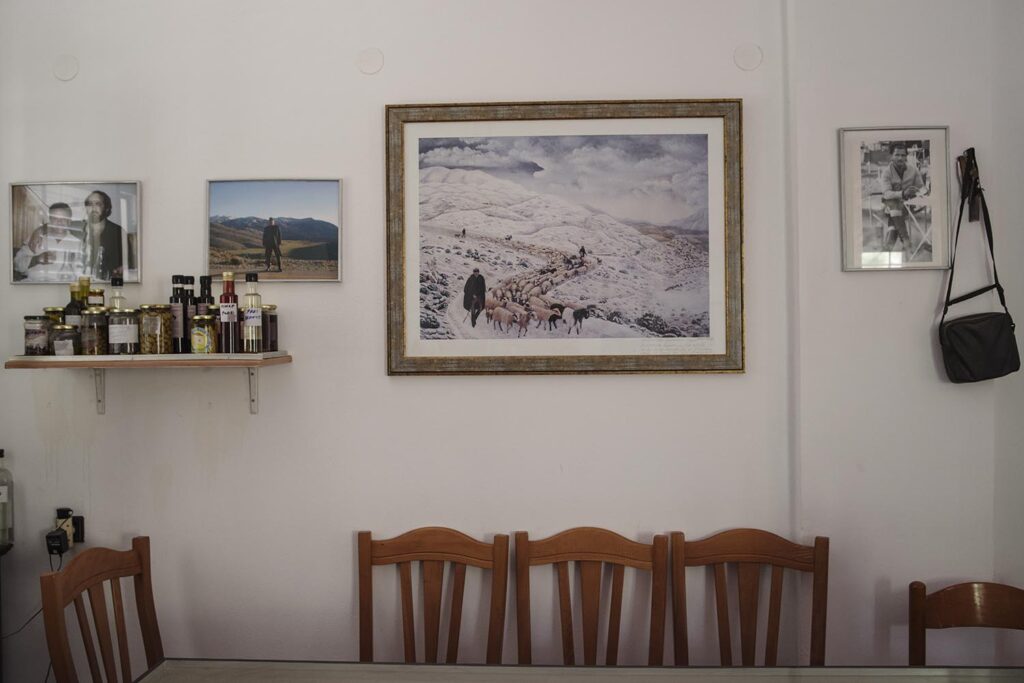
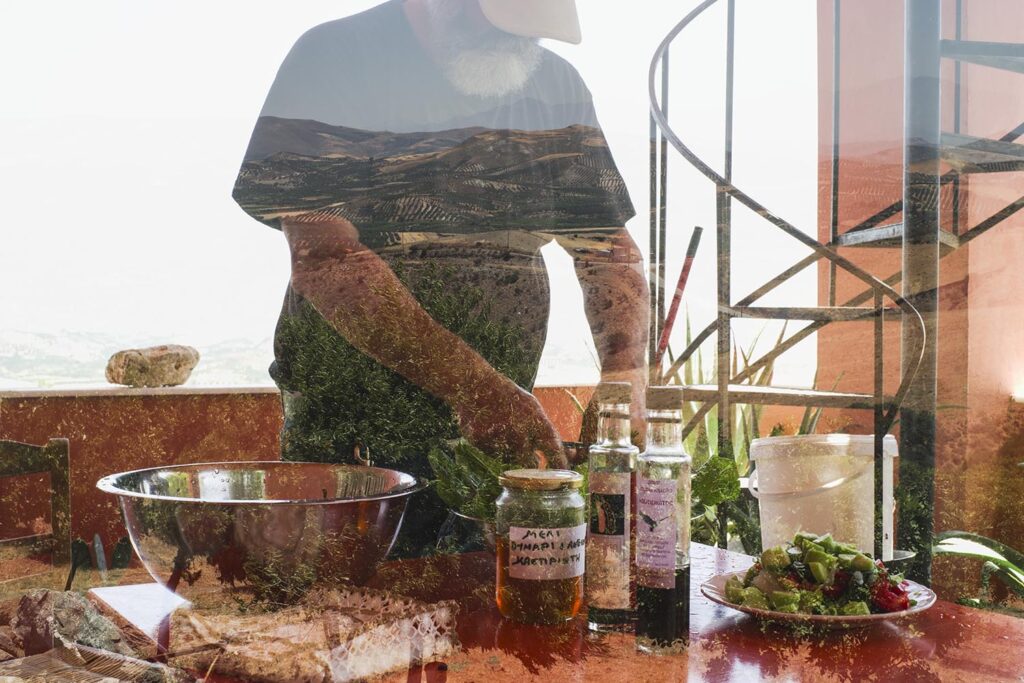
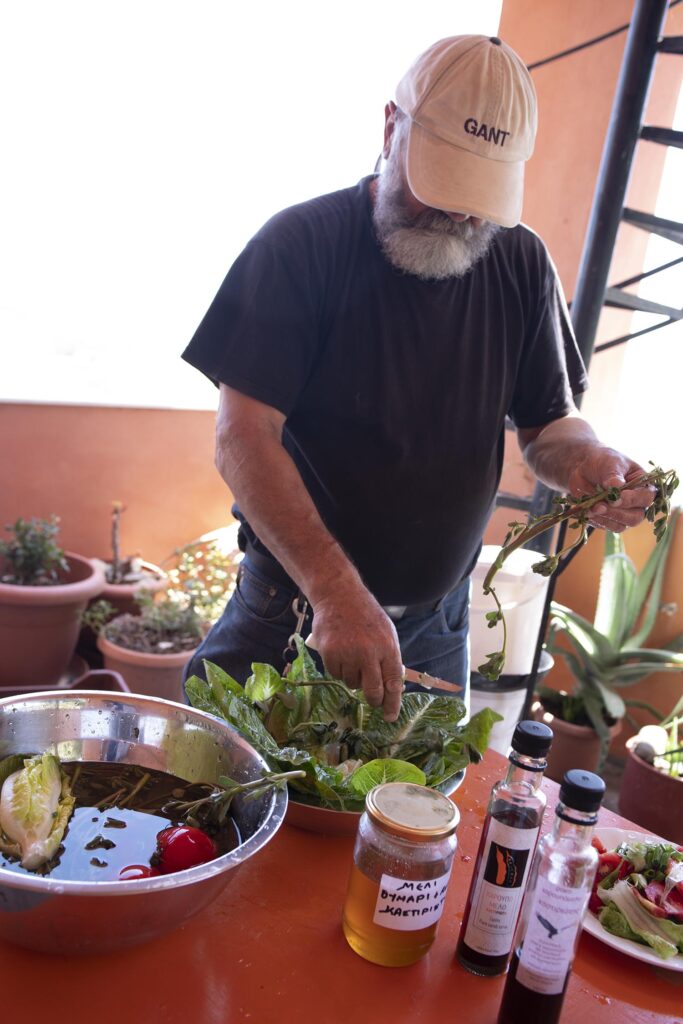
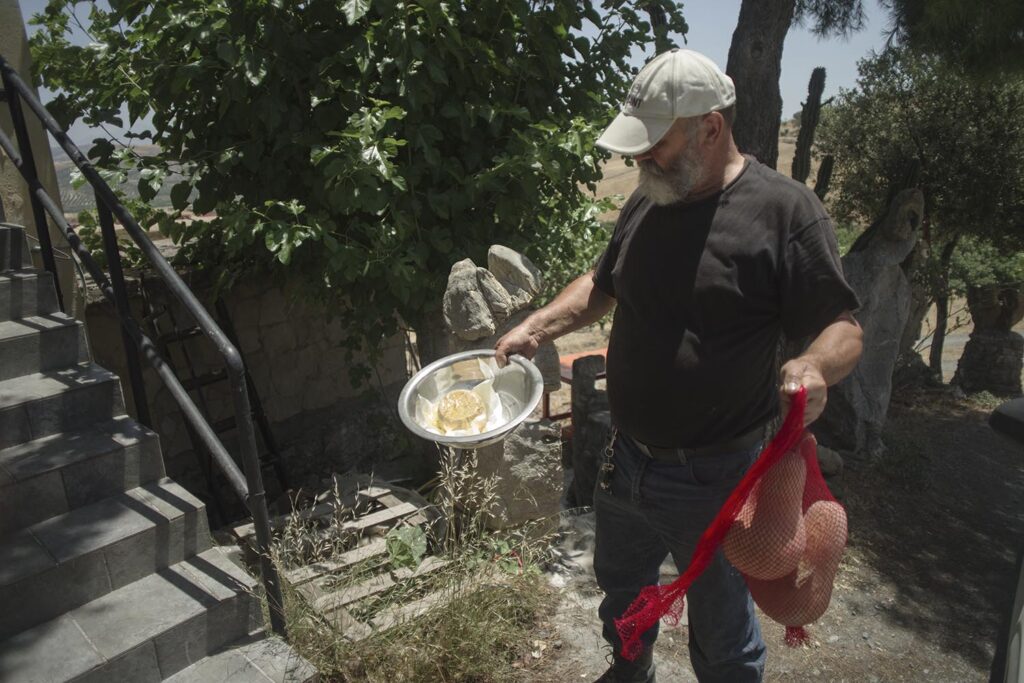
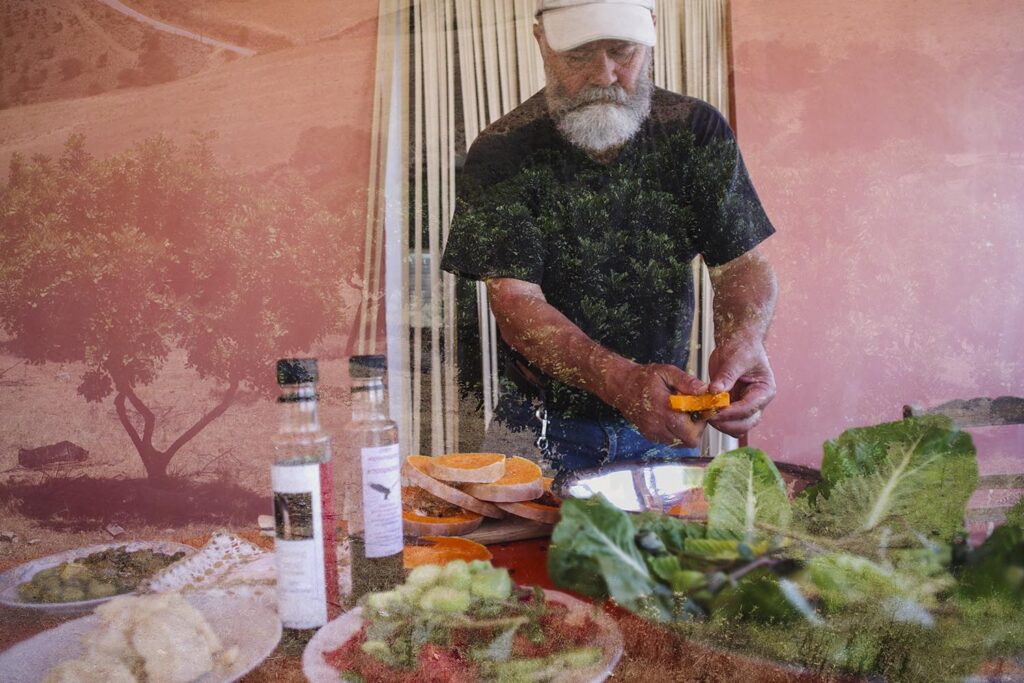
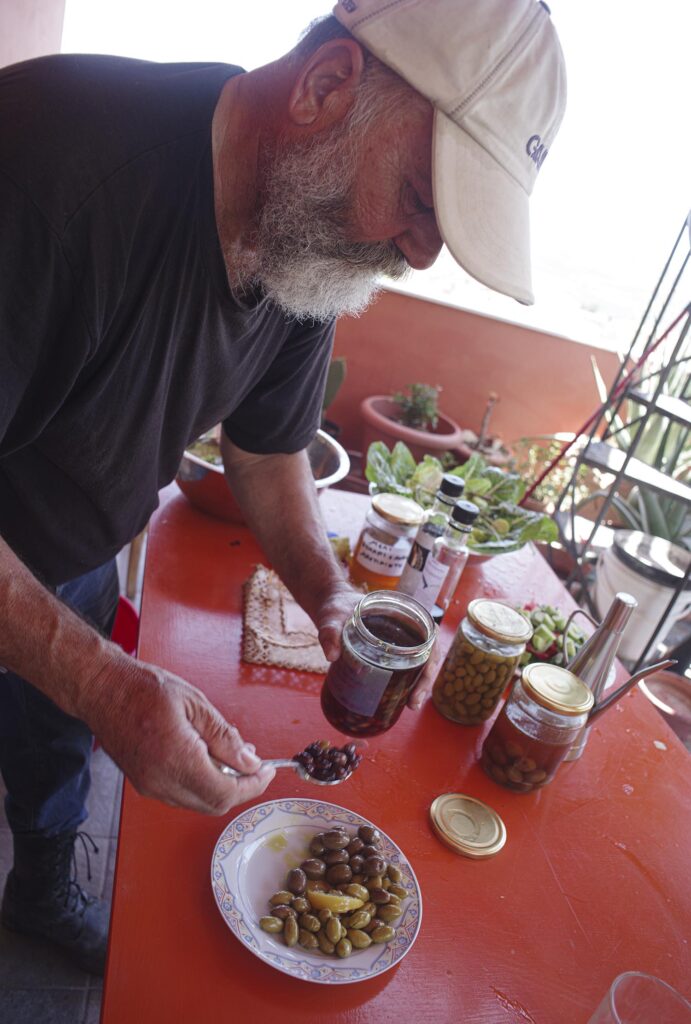
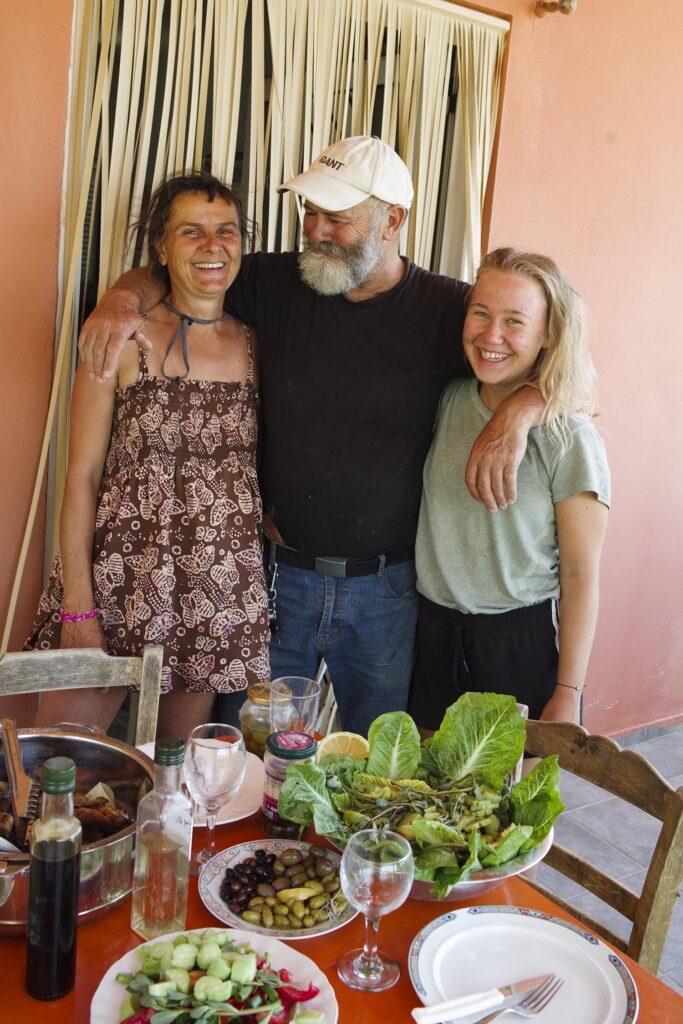
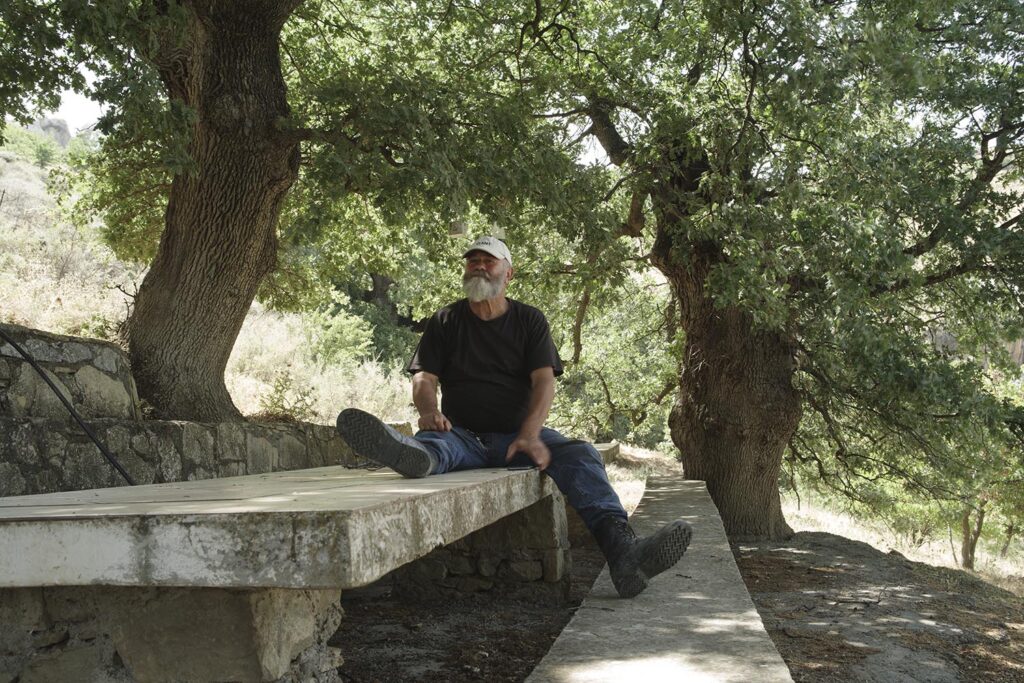
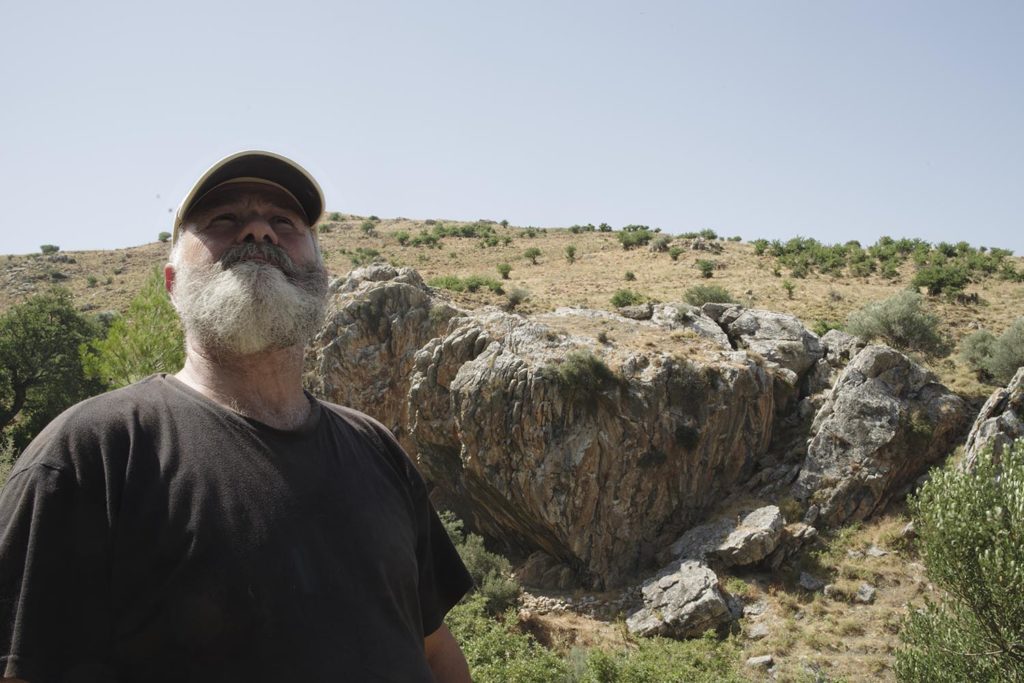
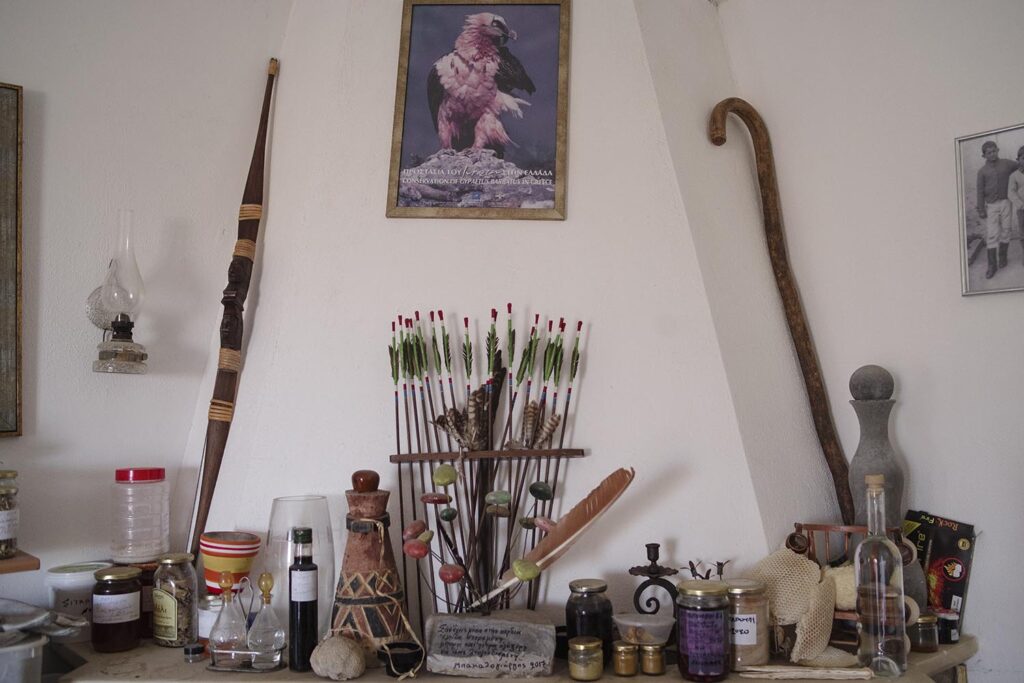
Kostas produces all the food himself - from olive oil, vegetables, fruit, cheese, dried fruit to wine... And when he has the chance to host someone as he hosted us... A magical experience!
Something about the carob. AsI was trying to find out more and more (I'm always searching), I found a rabbi from 300 AD. He was living in Palestine. He lived in Palestine. So he was walking down the street and he saw somebody planting a new carob tree, a very small one, and he asked him, "Why are you trying to do this, do you think you're going to live so many years to eat from this carob tree?" and the man replied, "No, because I'm taking the carobs from another tree that my ancestors planted for me," and he said, "OK," and he walked away. And after a while the light was very strong, he didn't go into a cave, he sat on a rock, he slept, and then he returned. And on his way back he saw in the same place a huge carob tree full of carobs and somebody who was picking the carobs. And he said, ”Hey you, are you the one who planted this tree,” and the man said, ”No, no, no, my ancestors did it for me,” and he realised that 54 years had passed while he was sleeping. So I went crazy when I found it, and then this rabbi, Honi HaMe'agel is his name, in another place, in Palestine, it has to do with carobs this time. I don't know, there's a connection.
The Portuguese have a saying: ”Plant an olive tree for your children and a carob tree for your grandchildren."
more > CAROB TREE PHYSIOLOGY: GROWTH AND REPRODUCTION BIOLOGY
Manolis Loukakis, a professor of agronomy, an expert in breeding, teaching, a great connoisseur of carobs, species suitable for planting and grafting trees, and of Crete.
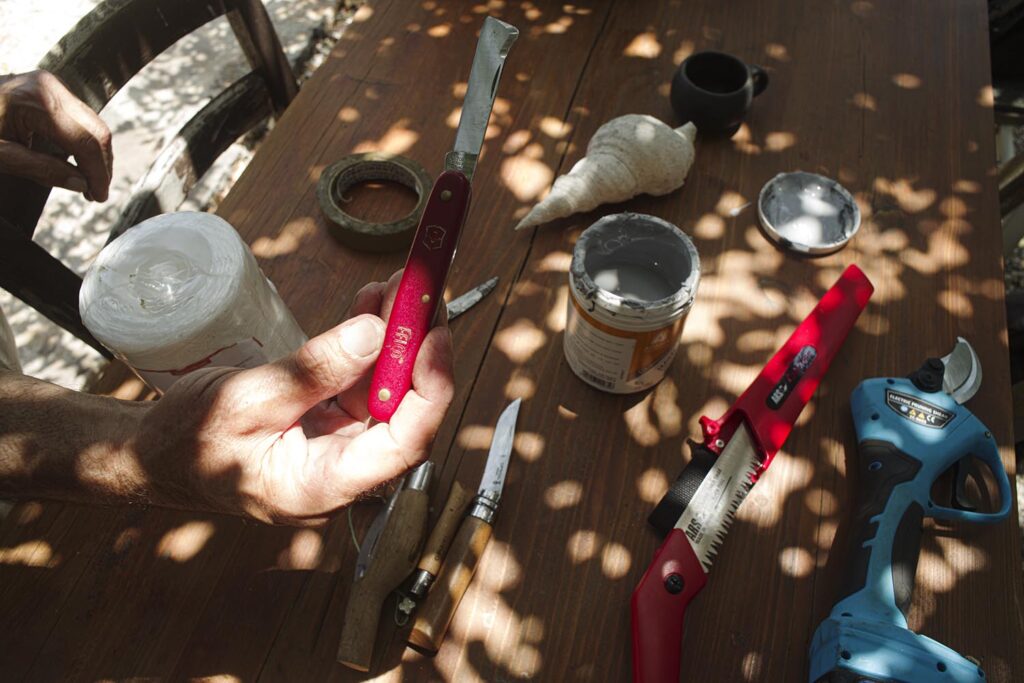
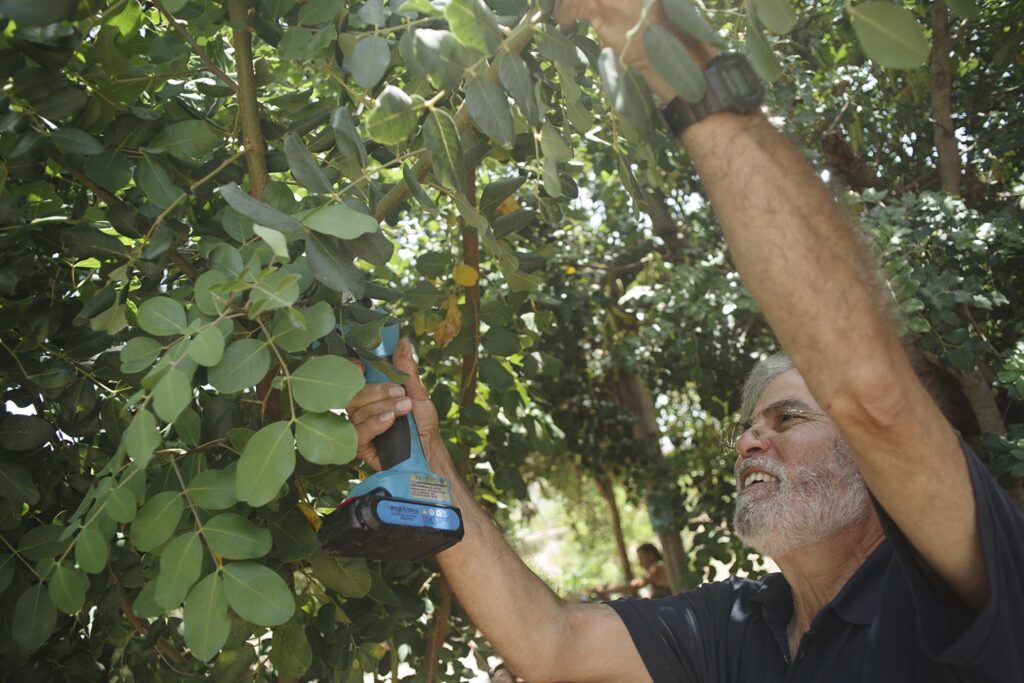
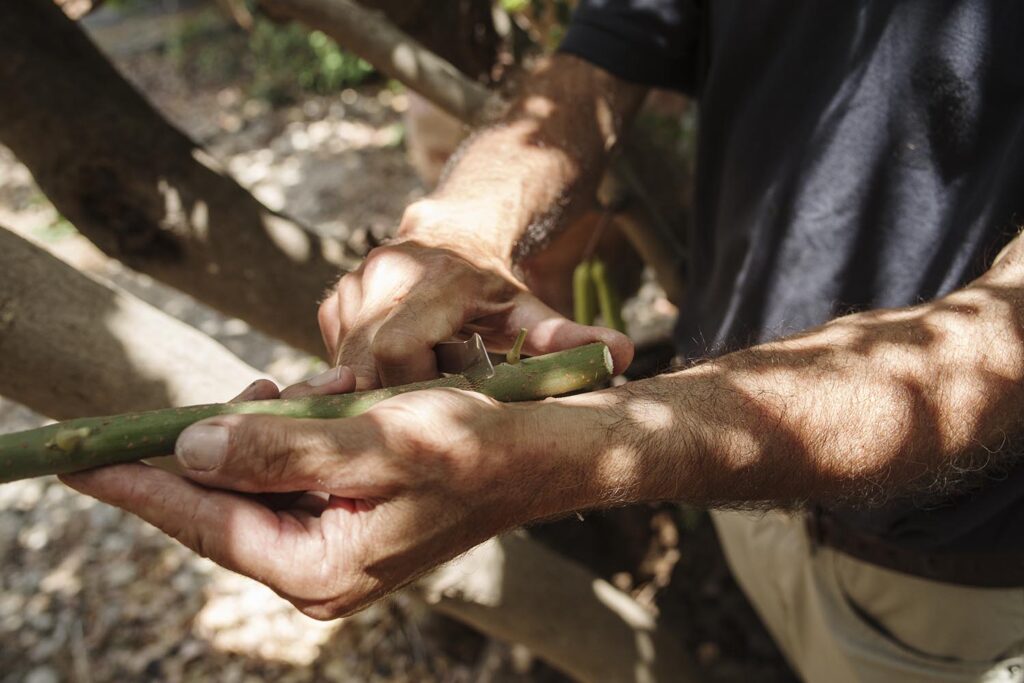
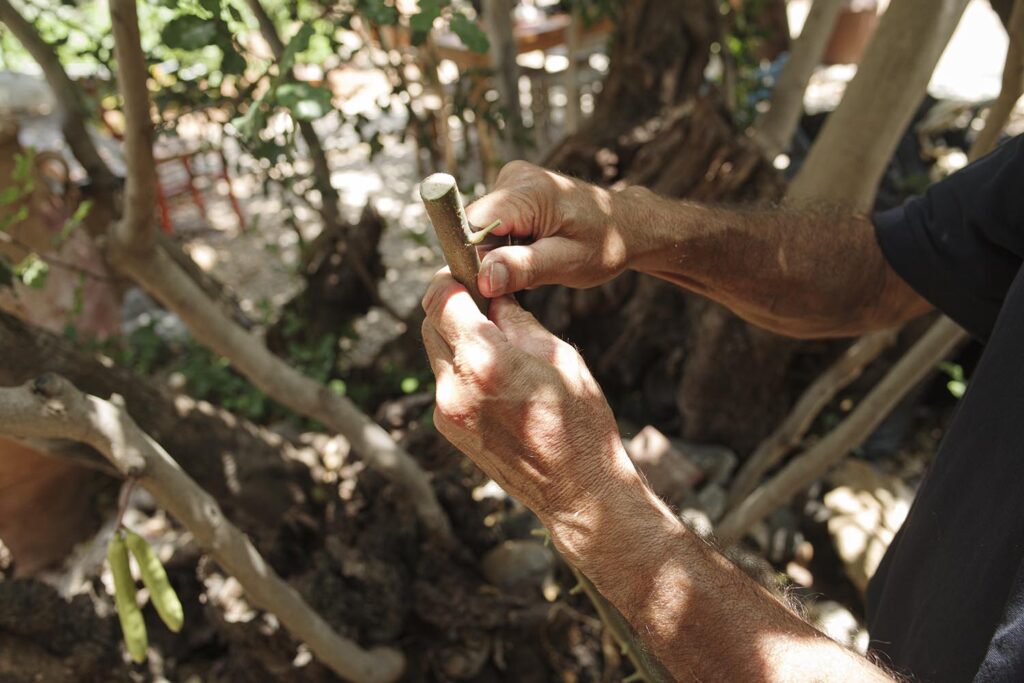
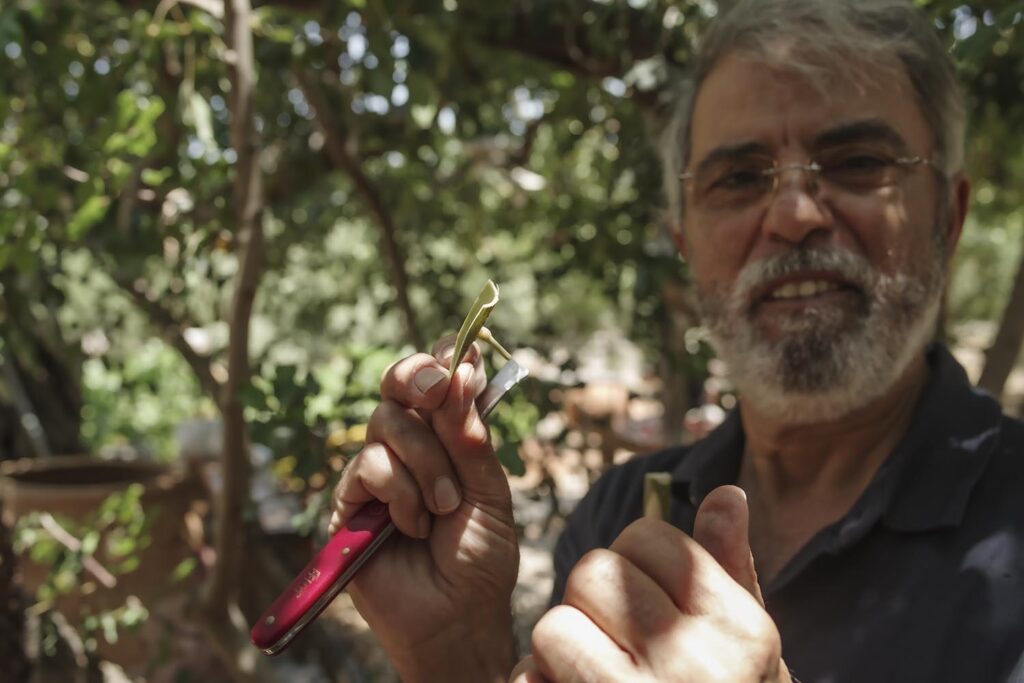
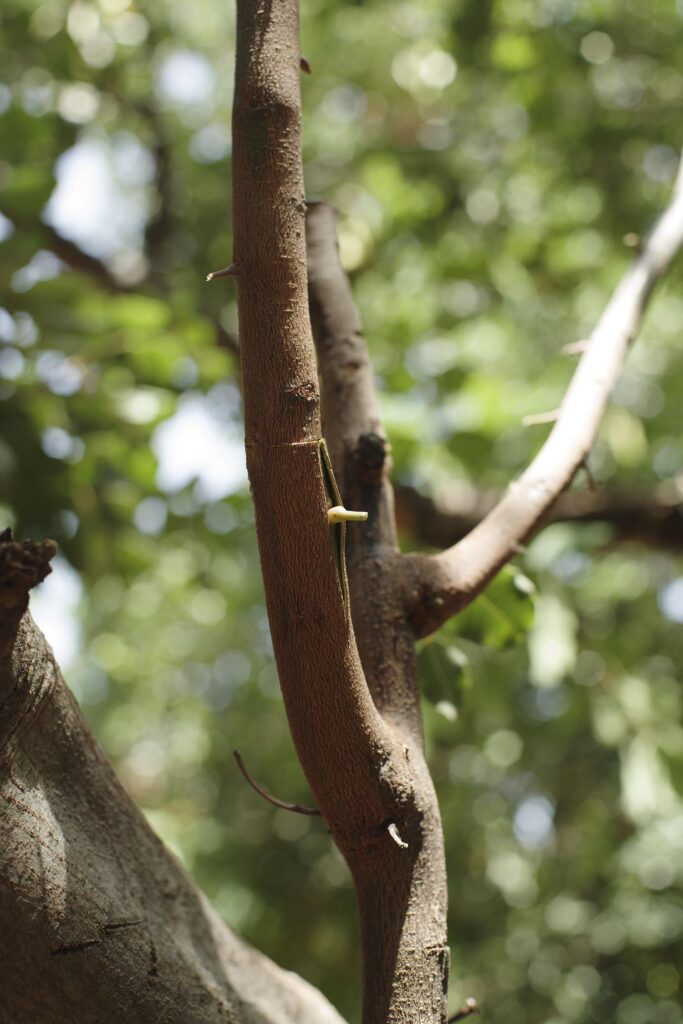
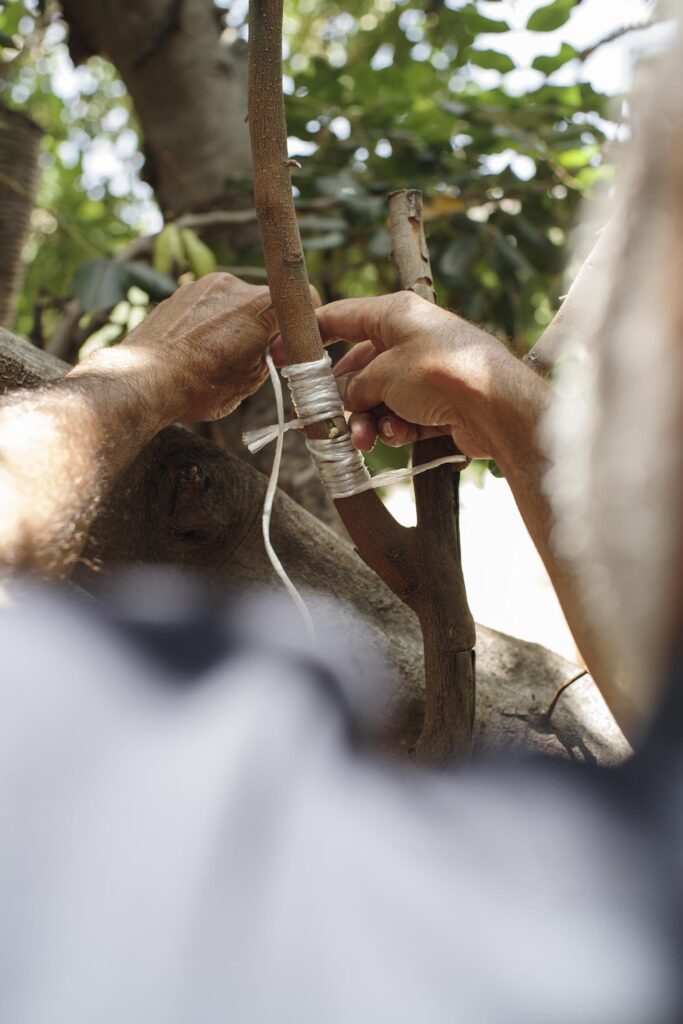
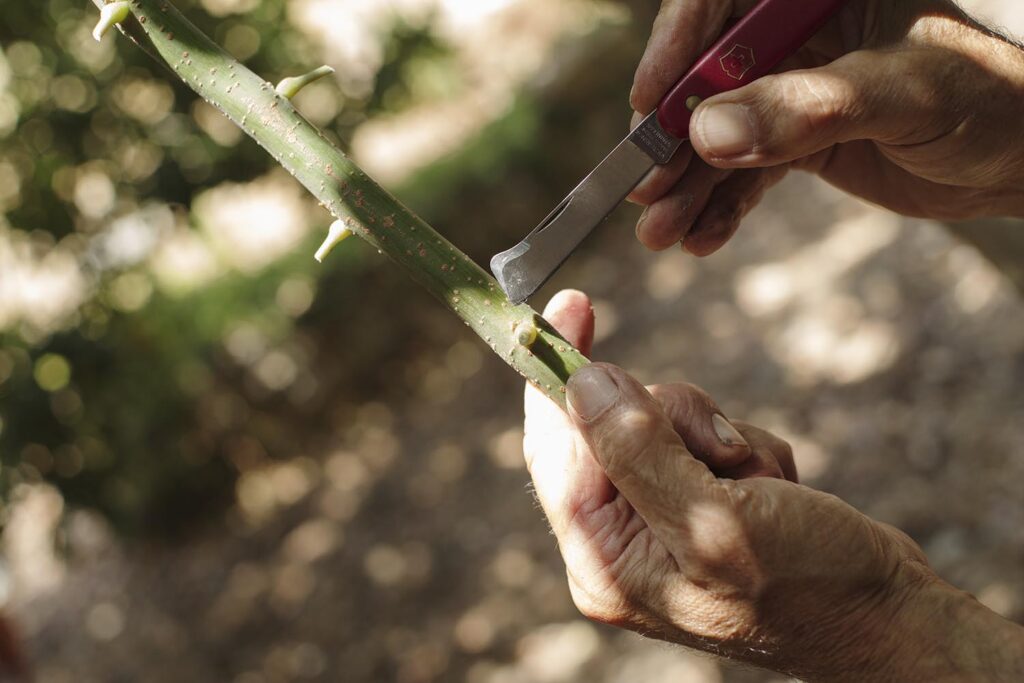
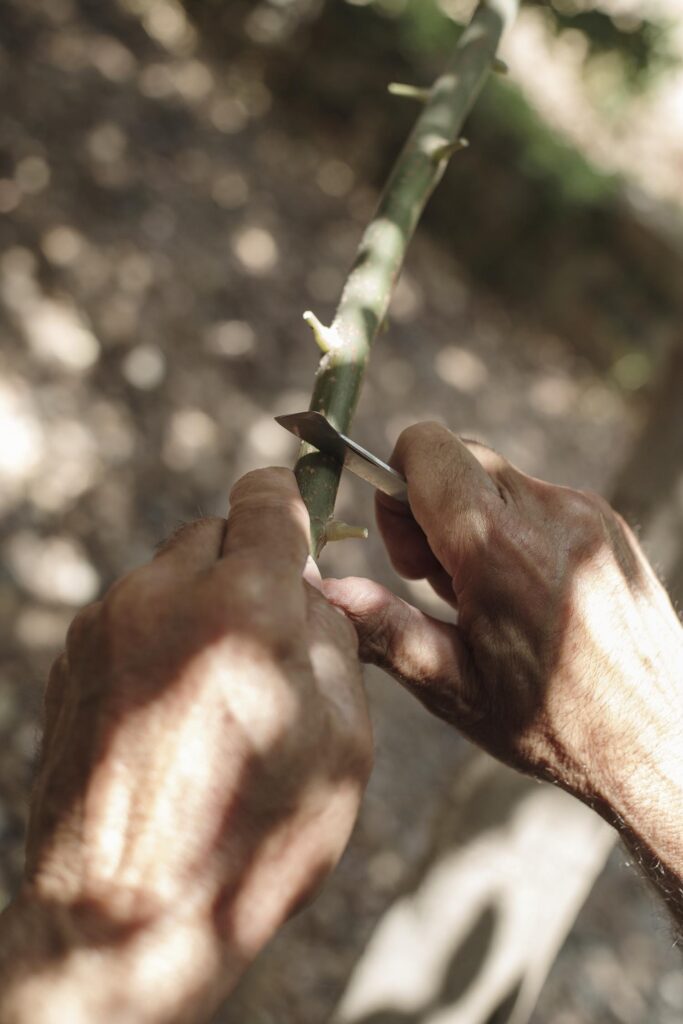
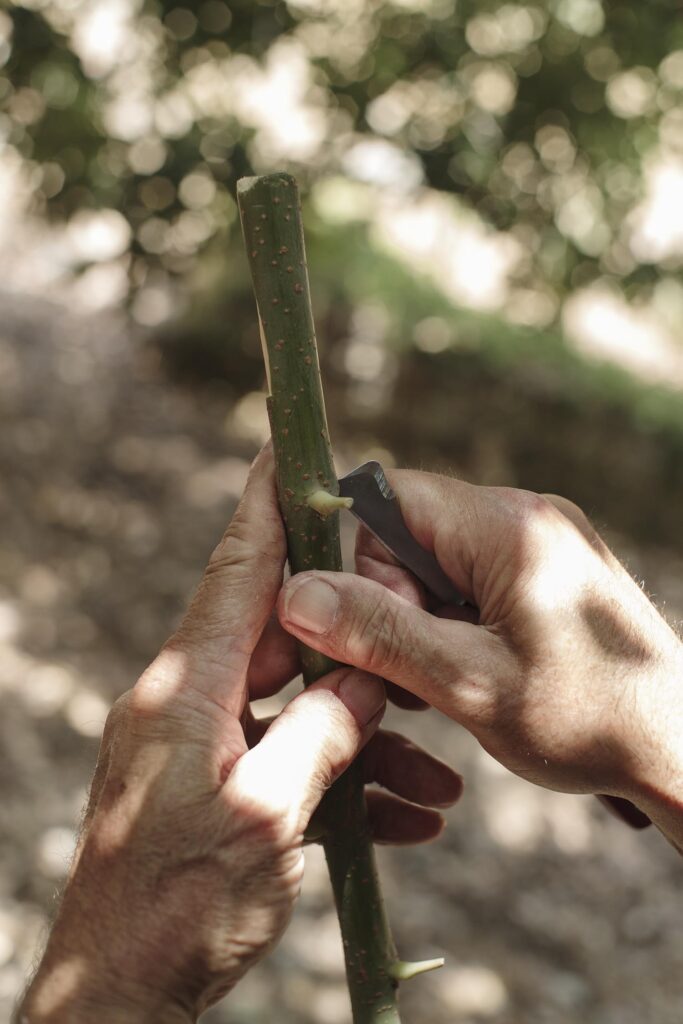
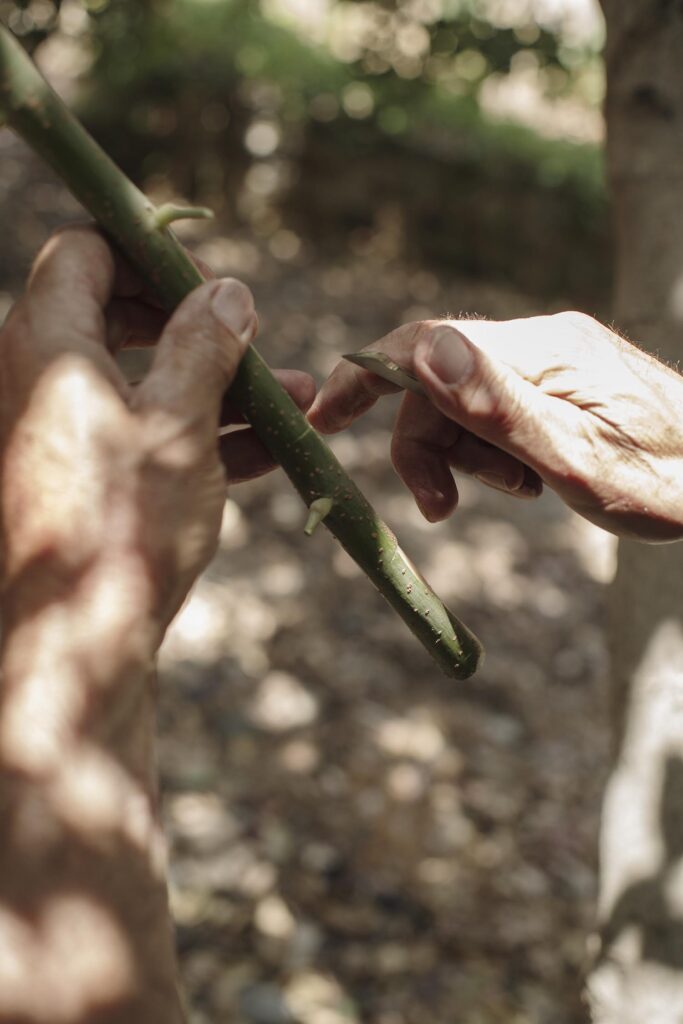
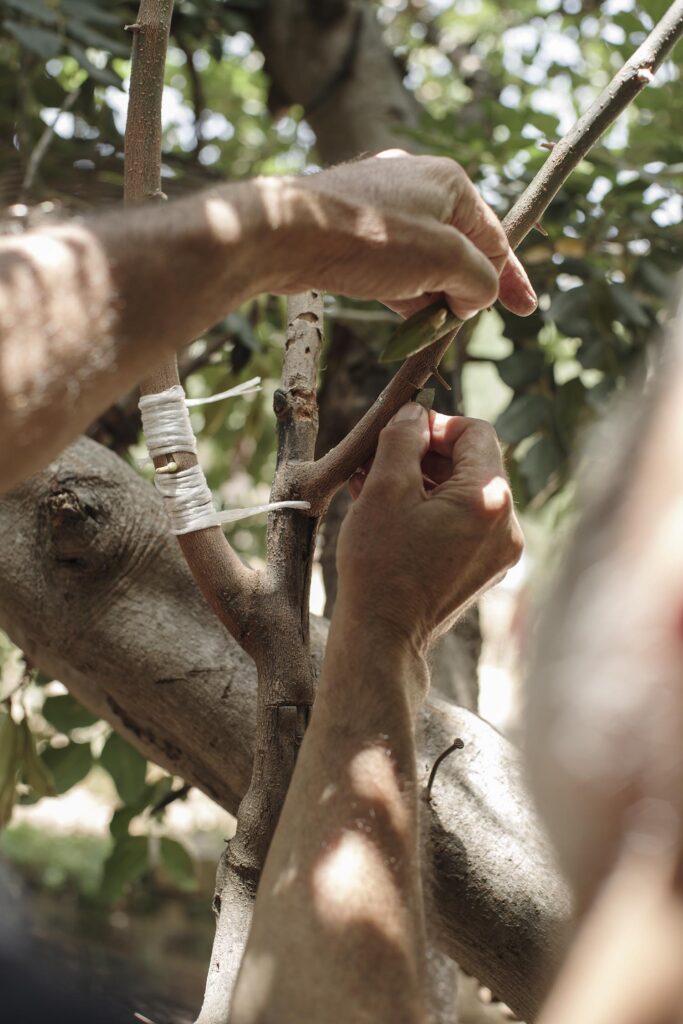
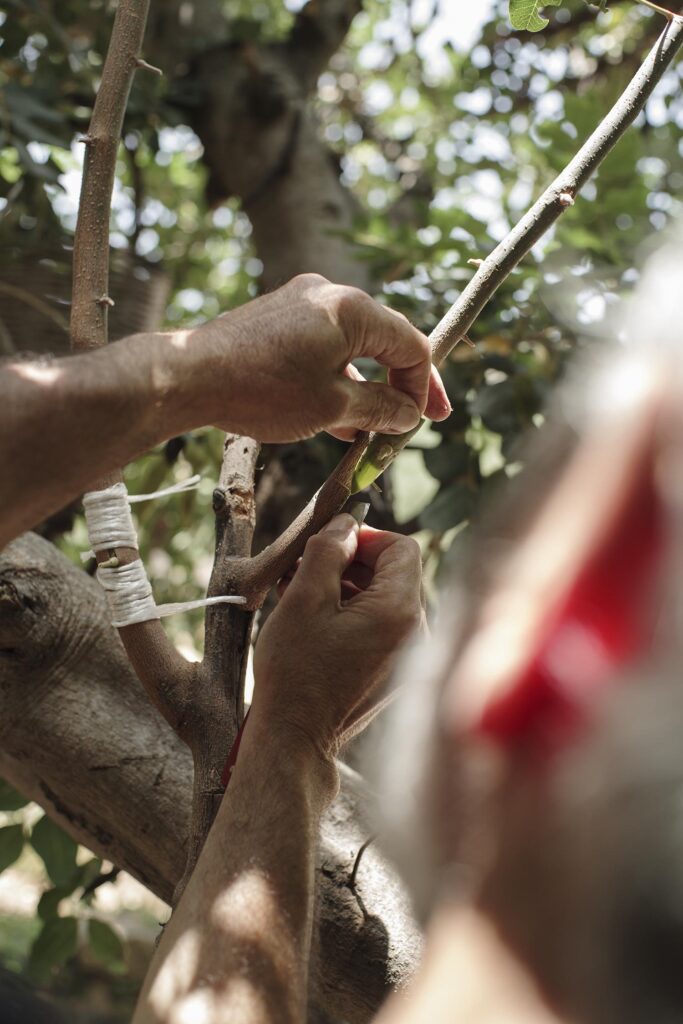
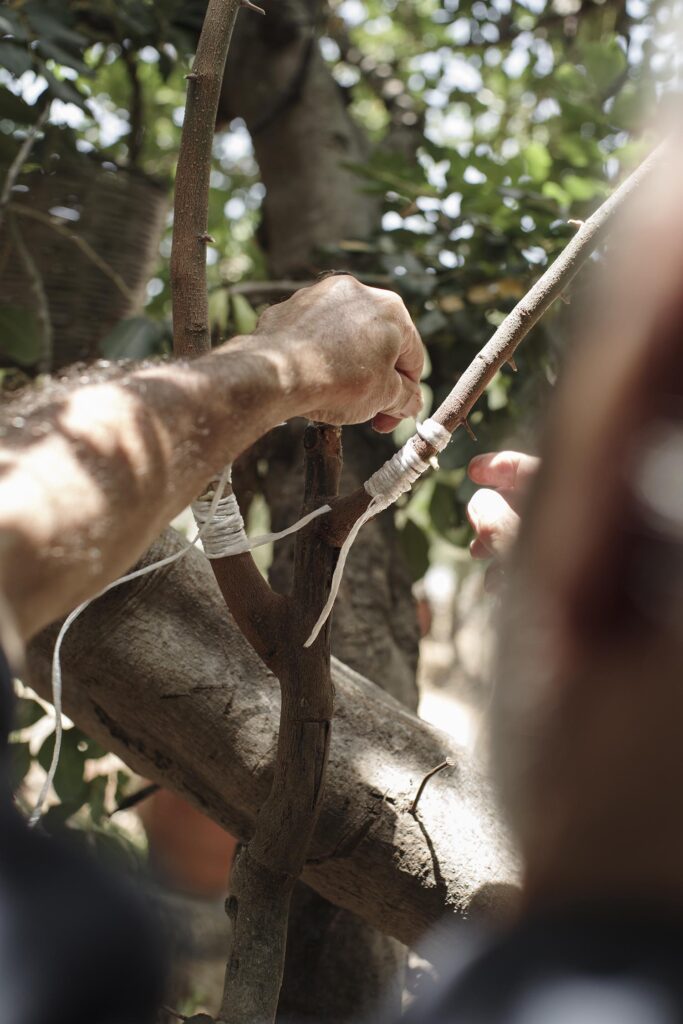
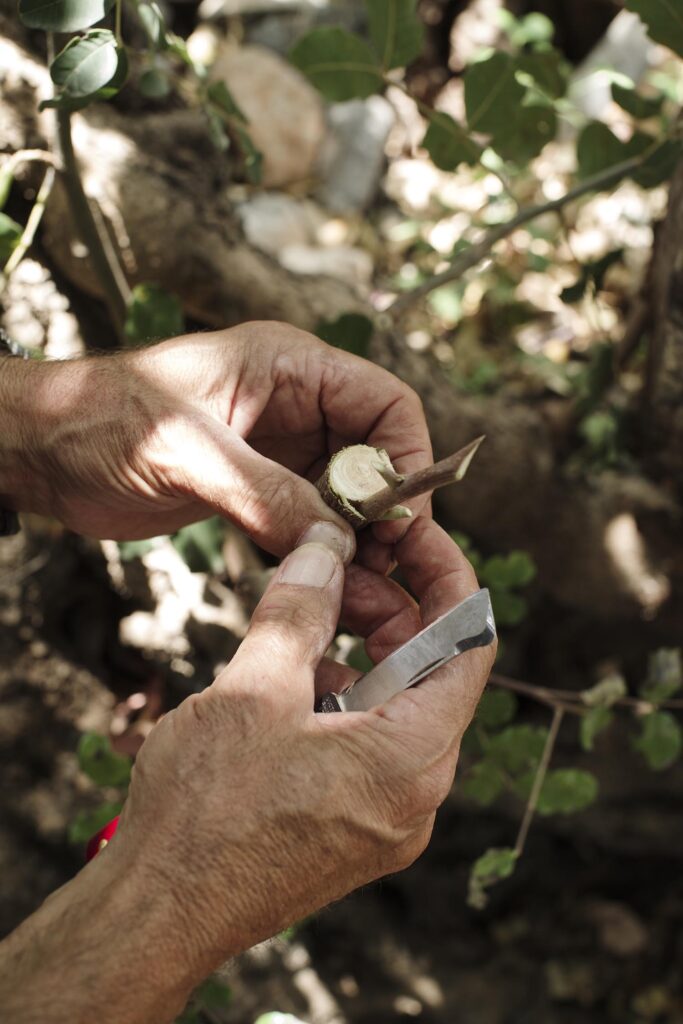
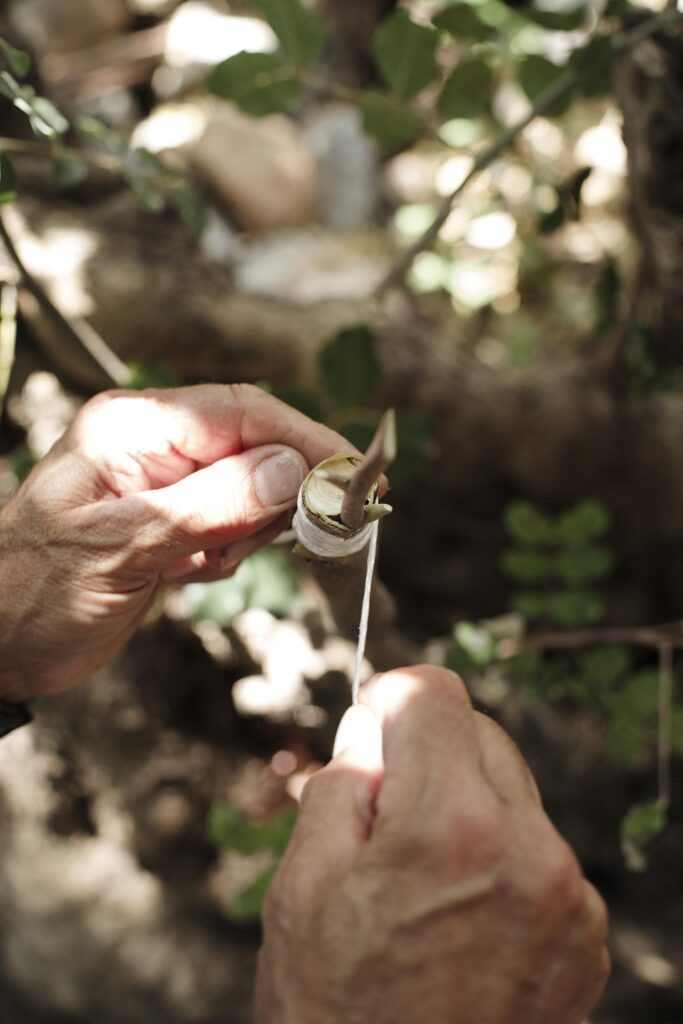
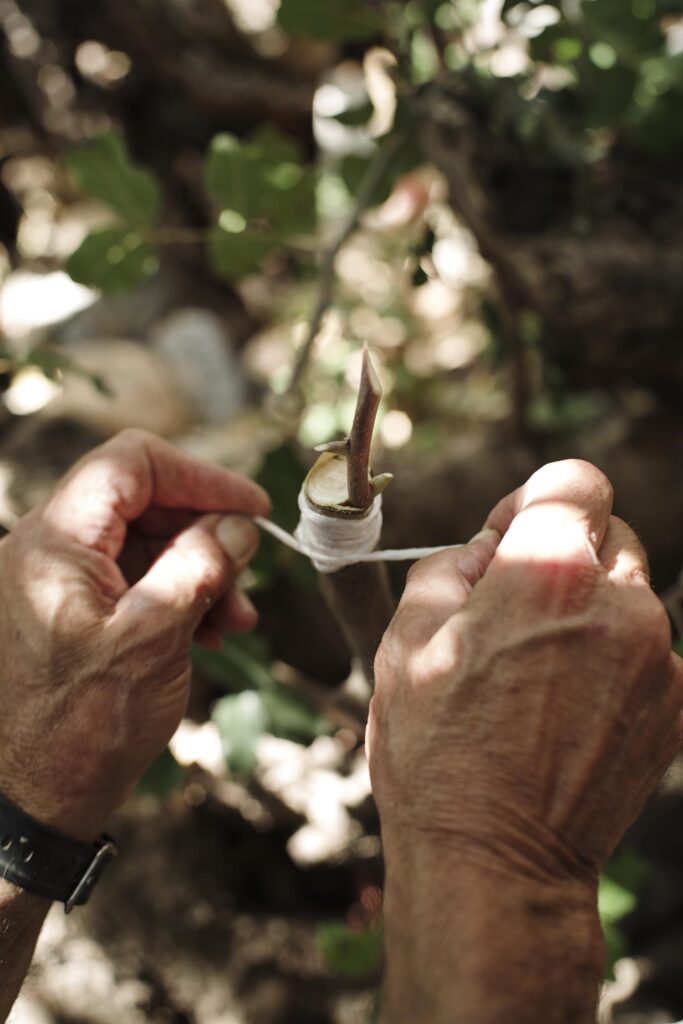
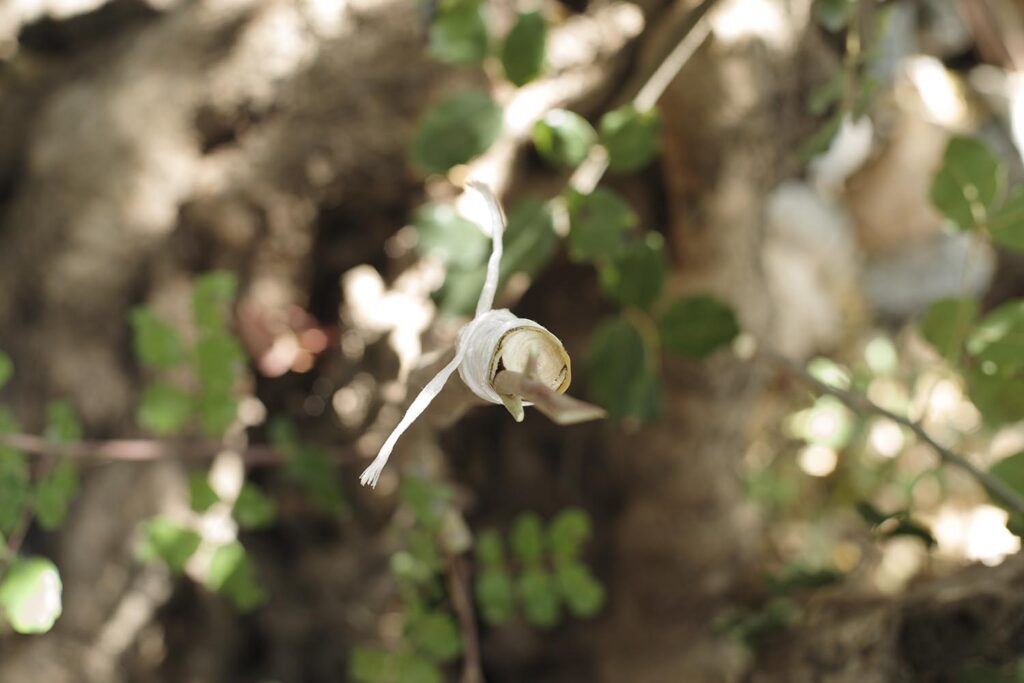
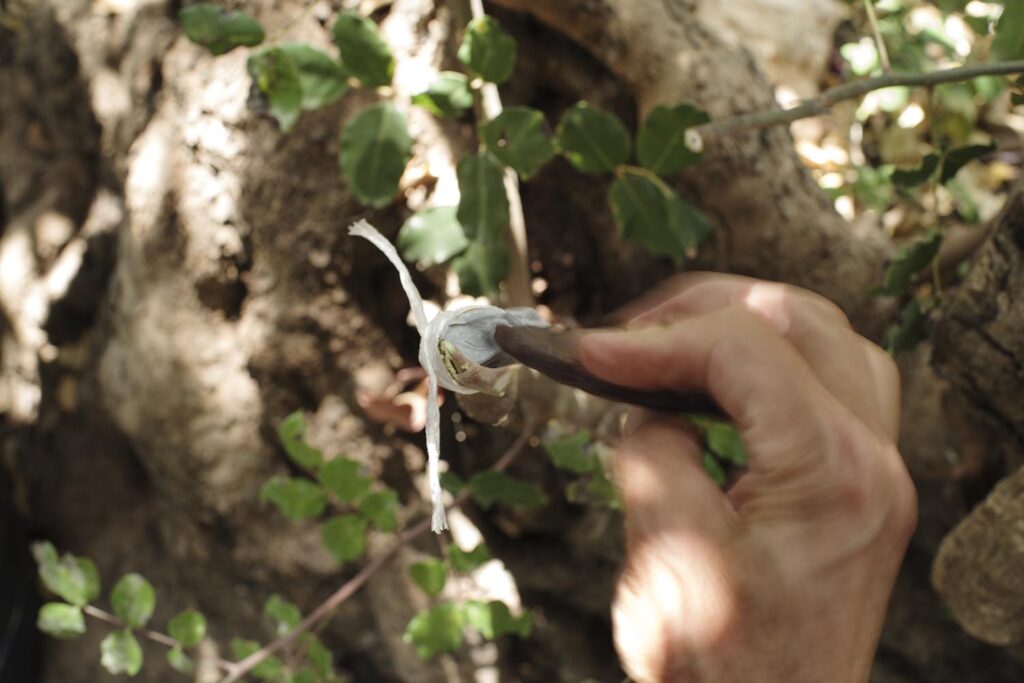
Nobody knows, I could say, because sometimes, even if something looks very dark or very pessimistic, there are moments, but everything can be changed, so we have to try. And if we're lucky in our lifetime to see a difference, to see this revolution that I believe in, there are moments, but even the environment and human beings together, we can change everything. I don't know if I'll be so lucky to see it, but I can tell you that I've seen it, in moments on a small scale. So if I have this experience of seeing it in moments, that means it can be done, so in that way I am an optimist, but I don't know if I will see it in my lifetime. Everything is possible. Even what we think is impossible now can be possible. But it can only be possible if some people are in the same line, find a way to connect with each other and have the same purpose, the same goal. And even unconsciously, to have the same way, without knowing it, but knowing it, if you understand. Even unconsciously, because there is a social unconsciousness that moves things.
Manos Babionitakis, an inventor of the carob milling machine. Before him there was no one in Crete to process carobs into 100% carob flower, which was vital for all the carob crops.
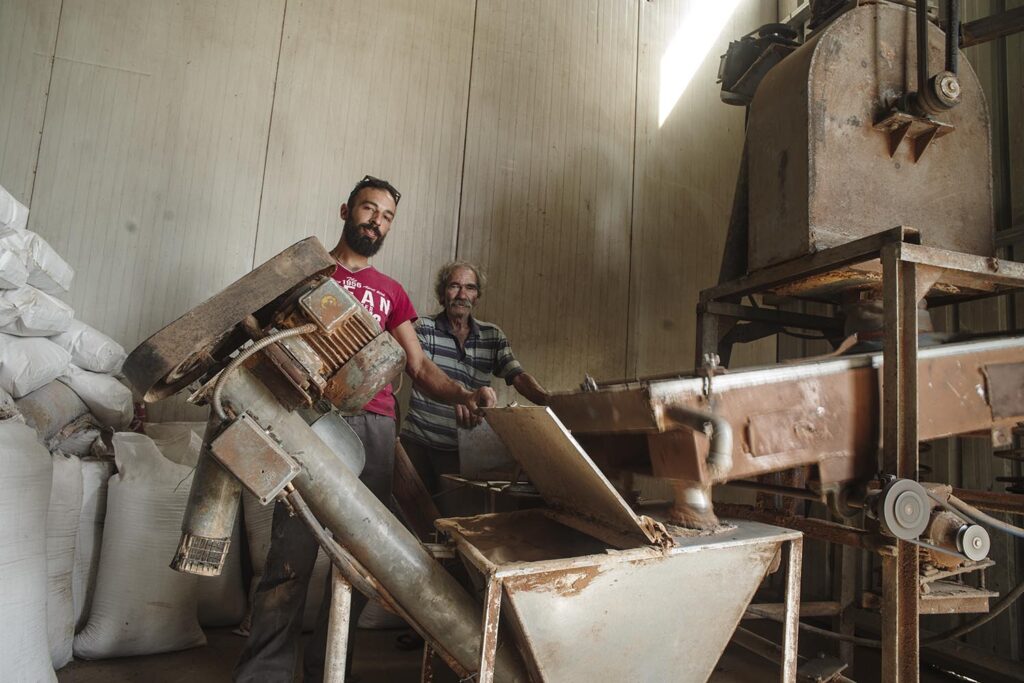
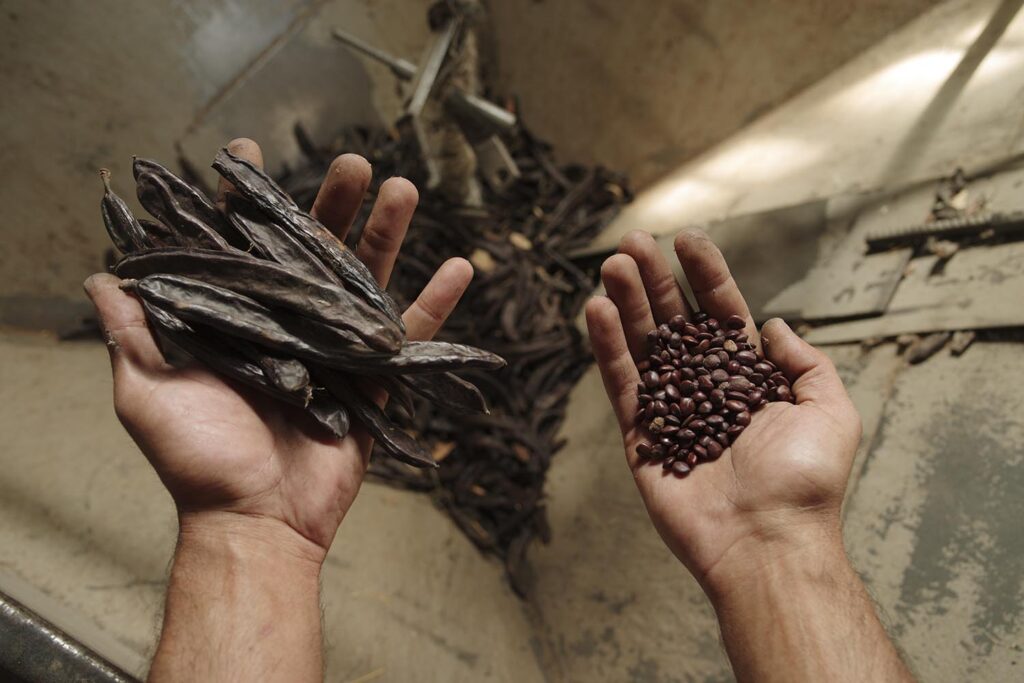
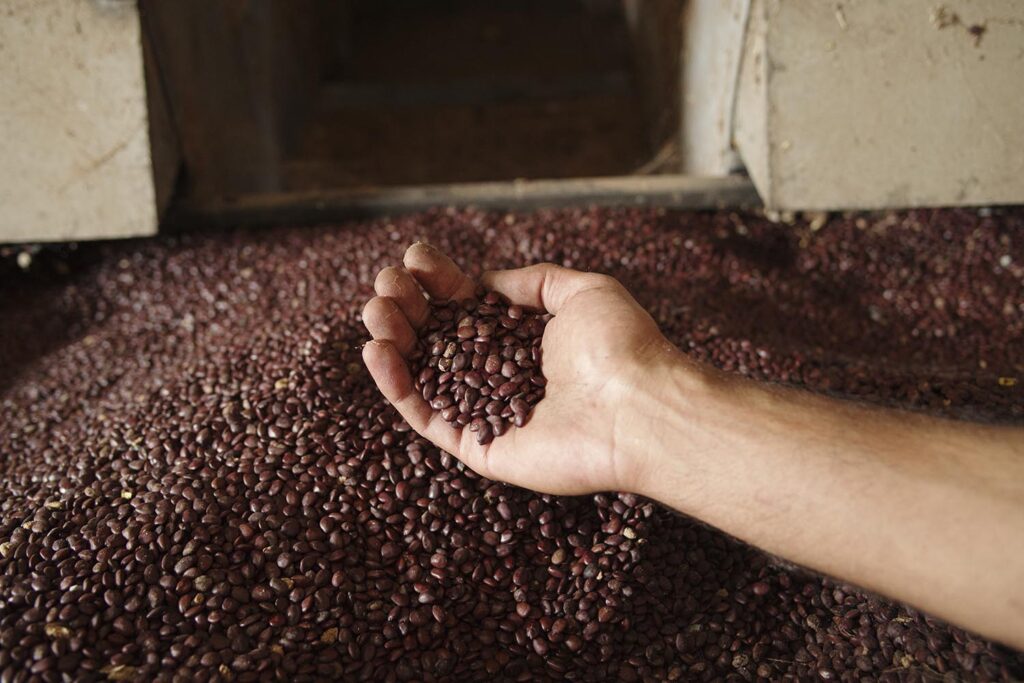
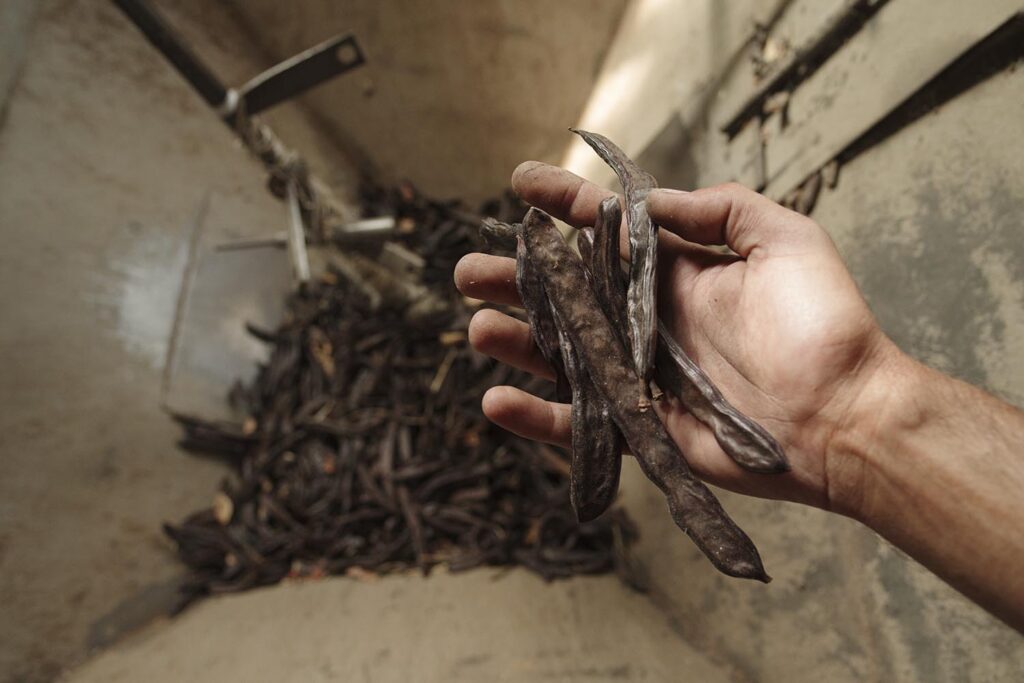
We are all the same, made of the same material. It's all clear to me. There are no differences. From north to south, west to east, we're all human beings. White, yellow, I don't know what...
>> next steps – carob trees
I have a feeling it's going to save us again. This time in a different way. When I have a dialogue with a carob tree, it has too many secrets and I ask it. "What are your secrets?" I'm going to find out what they are.
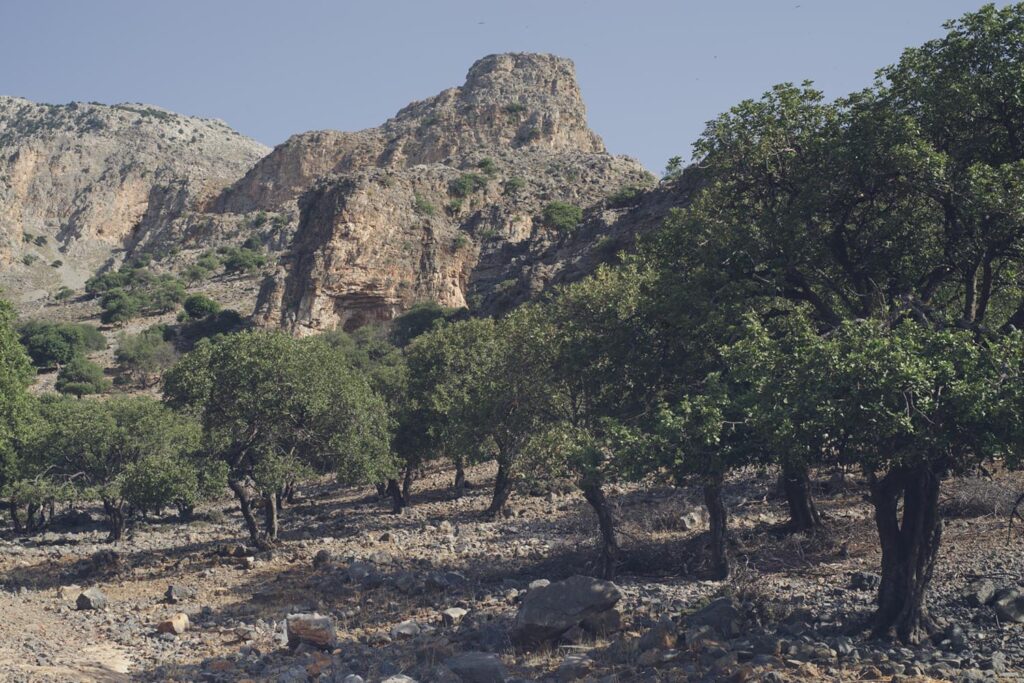
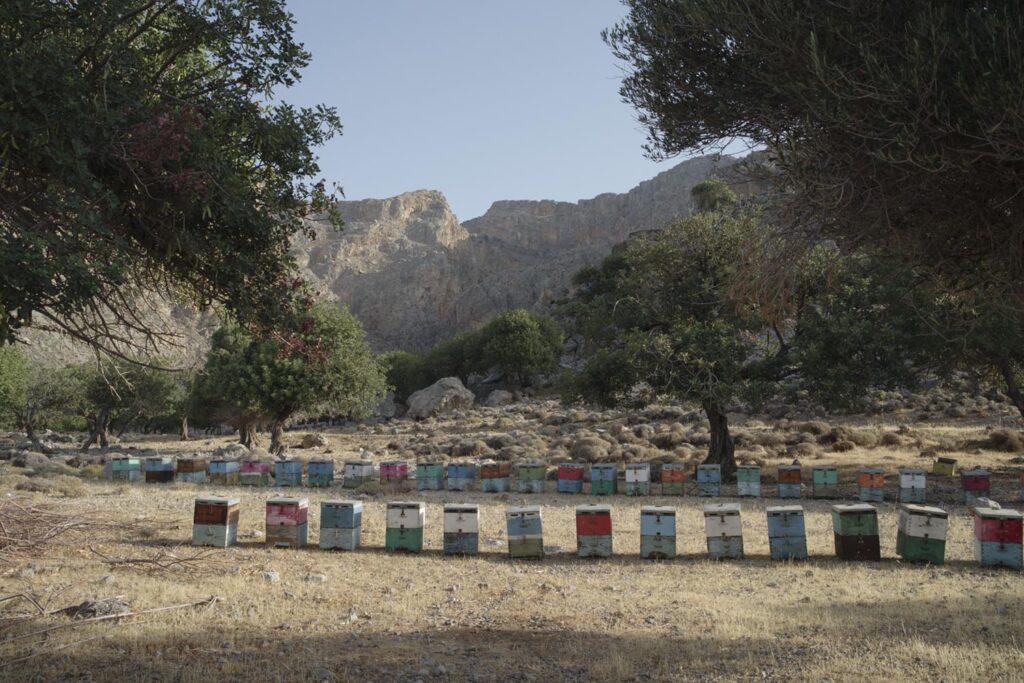
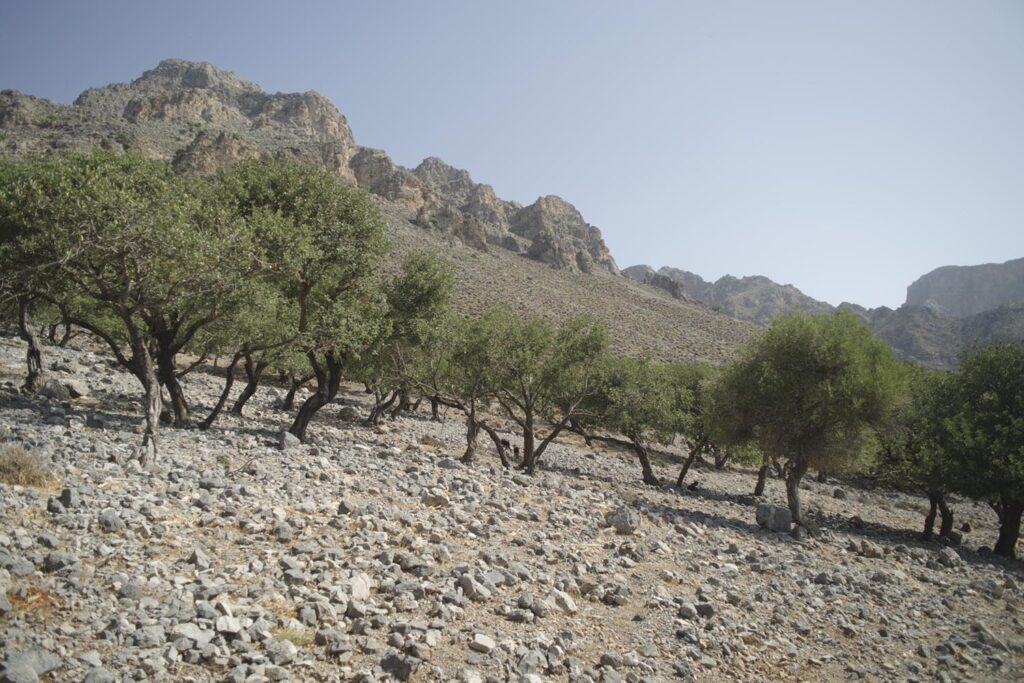
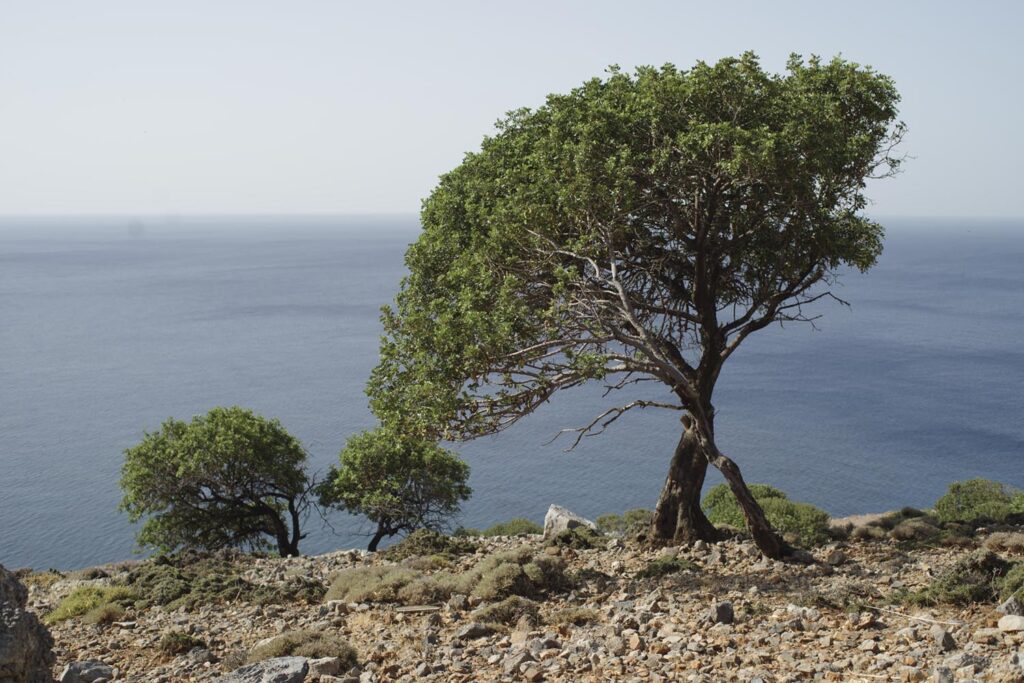
The virgin carob forest in Southeren Crete grows where no other plants can grow. The trees are old, but still small, and they regenerate naturally.
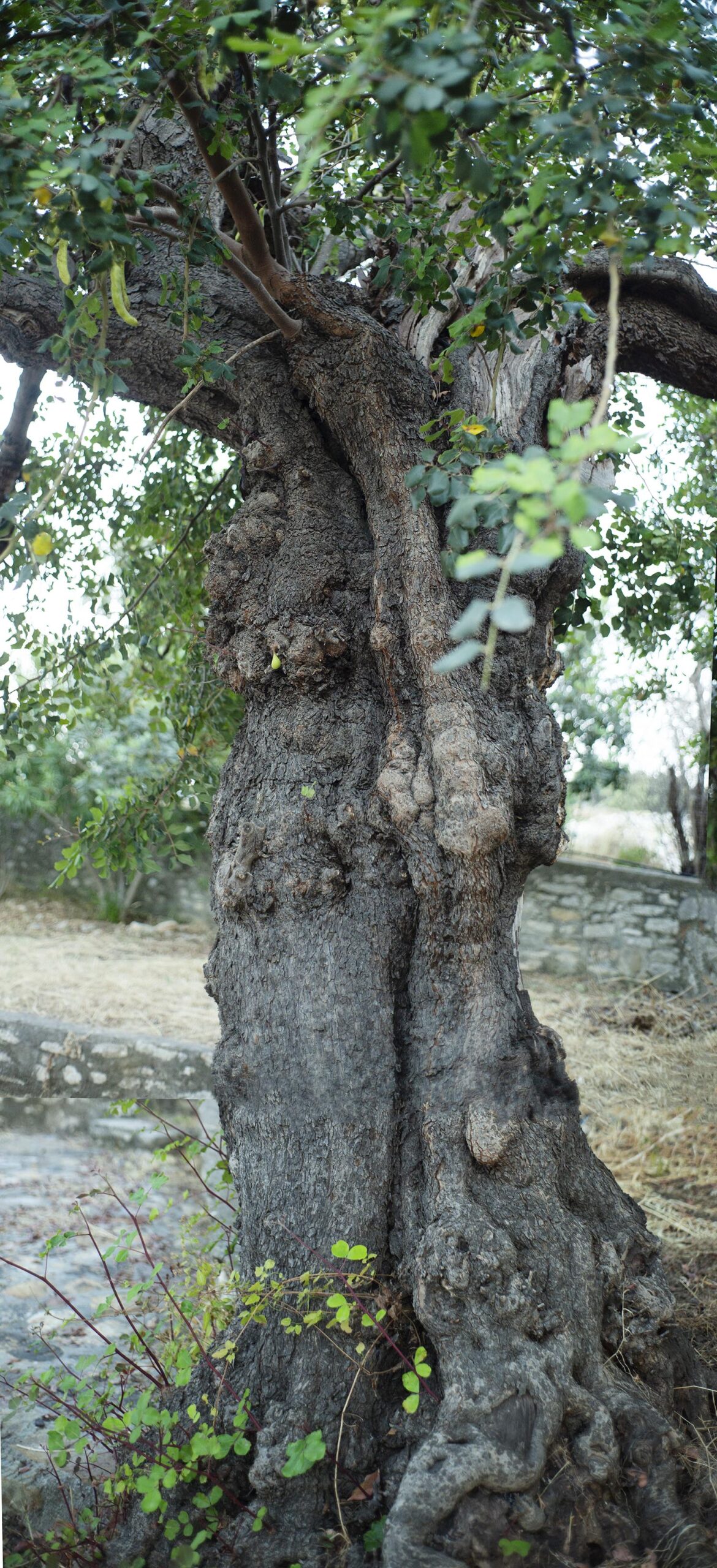
When I finished the proposal to the Ministry of Culture to include the carob tree in the list of intangible cultural heritage, I saw in my dream that I was on the carob tree and we were flying all over Europe, all over Mediterranean Europe, together, with the tree. I saw this dream and after that it was great because I did my best to write the proposal and then I felt like "now I've done it, I've done something" and I saw this dream. And I was looking at all the countries of Mediterranean Europe from above, and I felt like I was in that tree when I was very little, but I was flying with it!
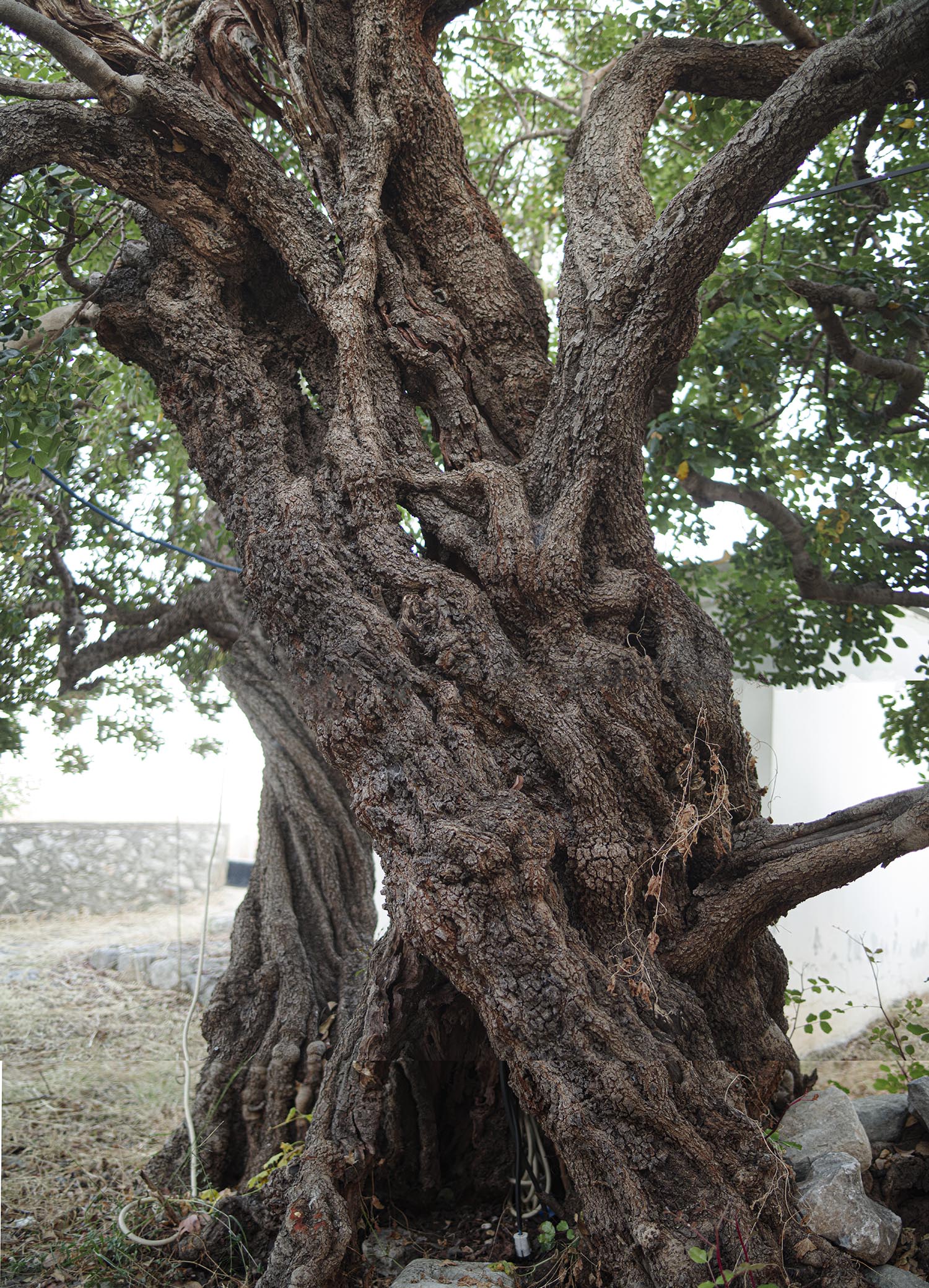
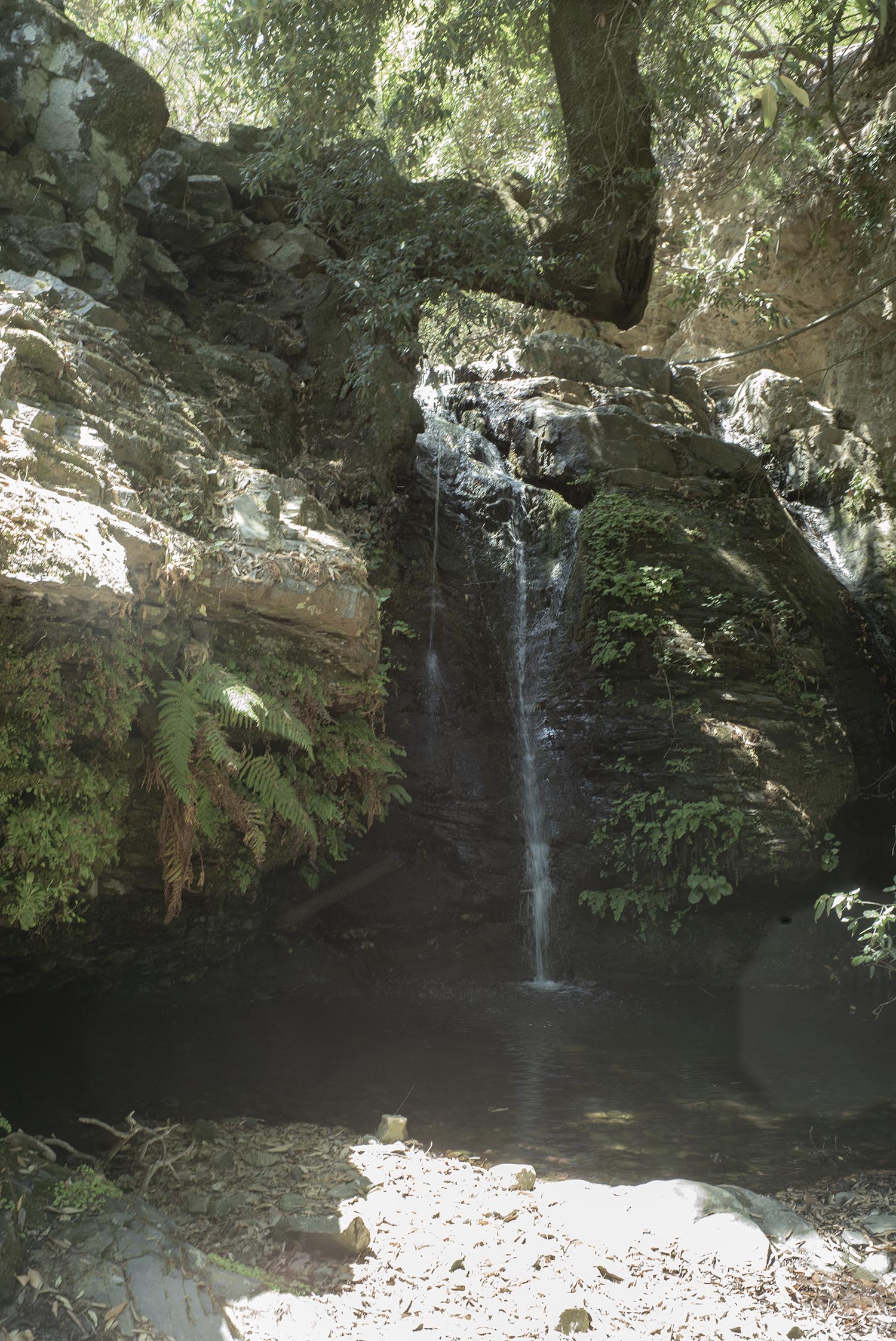
In the end, I found out that we can't do anything without democracy. It's not ideal, but it's the minimum we could have, and we don't have it. Only wars. We use it in a way we don't mean. This will destroy the globe, the capital.
Revolution is our attempt to exist. For me it's our attempt to... It's very difficult to explain. Because we do what the others, society, tells us to do. The thing is to decide what we do ourselves, to find ourselves and to create the future that everyone wants. We have to find ourselves.
Art and culture are the most serious weapon to fight aagainst all this lack of thinking. It is our weapon; we have no other. What else can we do, force somebody? No, we must convince them, touch them, so art is a very nice way to do that. Because it gets directly to the heart, not to the mind, the mind follows.
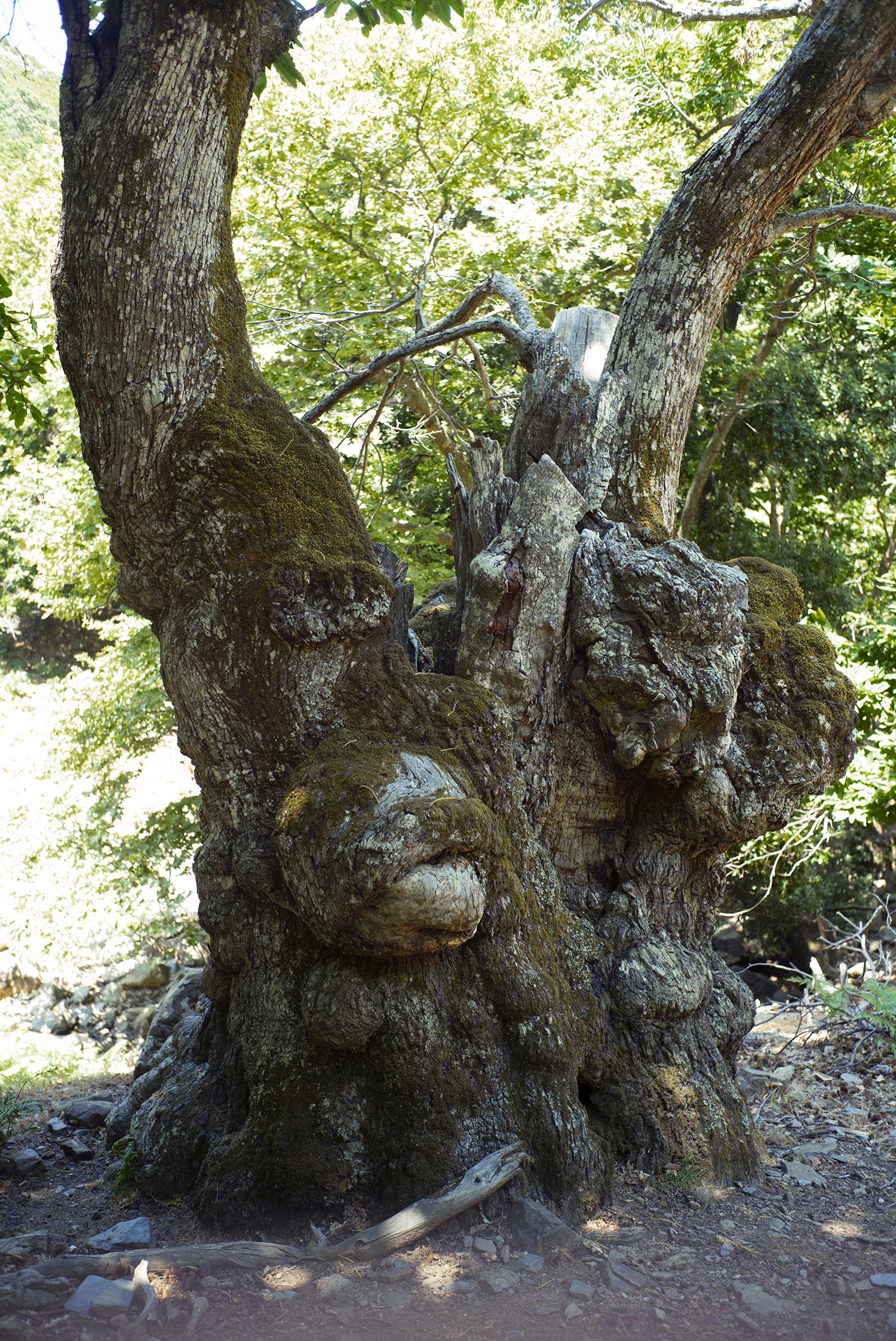
My father was the first ecologist I ever met, before the ecology movement, he was an ecologist, a chemist, and he loved nature. He was the one who introduced me to the carob tree when I was little. He loved nature and trees. He was a chemist, but he was very well educated in everything - philosophy, archaeology, history and everything. He gave me the first carob and said, "Try it, it's better than any chocolate." So I ate it and I loved it, I loved it so much, you can't imagine. From that moment on I always looked at carob trees with great admiration because he taught me "This tree saved the population of Crete from starvation during the Second World War", so I felt an admiration..

But this food, this is a superfood, it is better than many others and for me the carob is the future. As a crop, as a food, and it is also very important for its pharmaceutical uses, it's fantastic. It has many things. And now we've started to concentrate in the carob tree, in order to help it, support it and make it known in the consciousness of the people. It's the coming back of the carob. It is so important to understand that. So, I've done a lot of things - congresses, meetings... I asked the cultivators to come here, to the carob mill. We set up a new institution, a society, an association called The Carob of Crete, made up of researchers, academics, cultivators and people from the culture. We started with the university, because I'm pushing things too much, and now we've started research, very serious research, on different types of carob trees in Crete with the universities, because I've found the best researchers. Not only from the University of Crete, but also from Athens, from the University of Athens, from the Demokritos Research Institute and also from other different institutions and universities in Greece. In April 2019 we had the first congress, a Mediterranean congress at the carob mill, and people from Spain, Portugal, Cyprus, Egypt and Italy came here. We started a network for the return of the carob tree in Mediterranean Europe, because it's a Mediterranean tree. And now we are preparing the new one, the new congress.
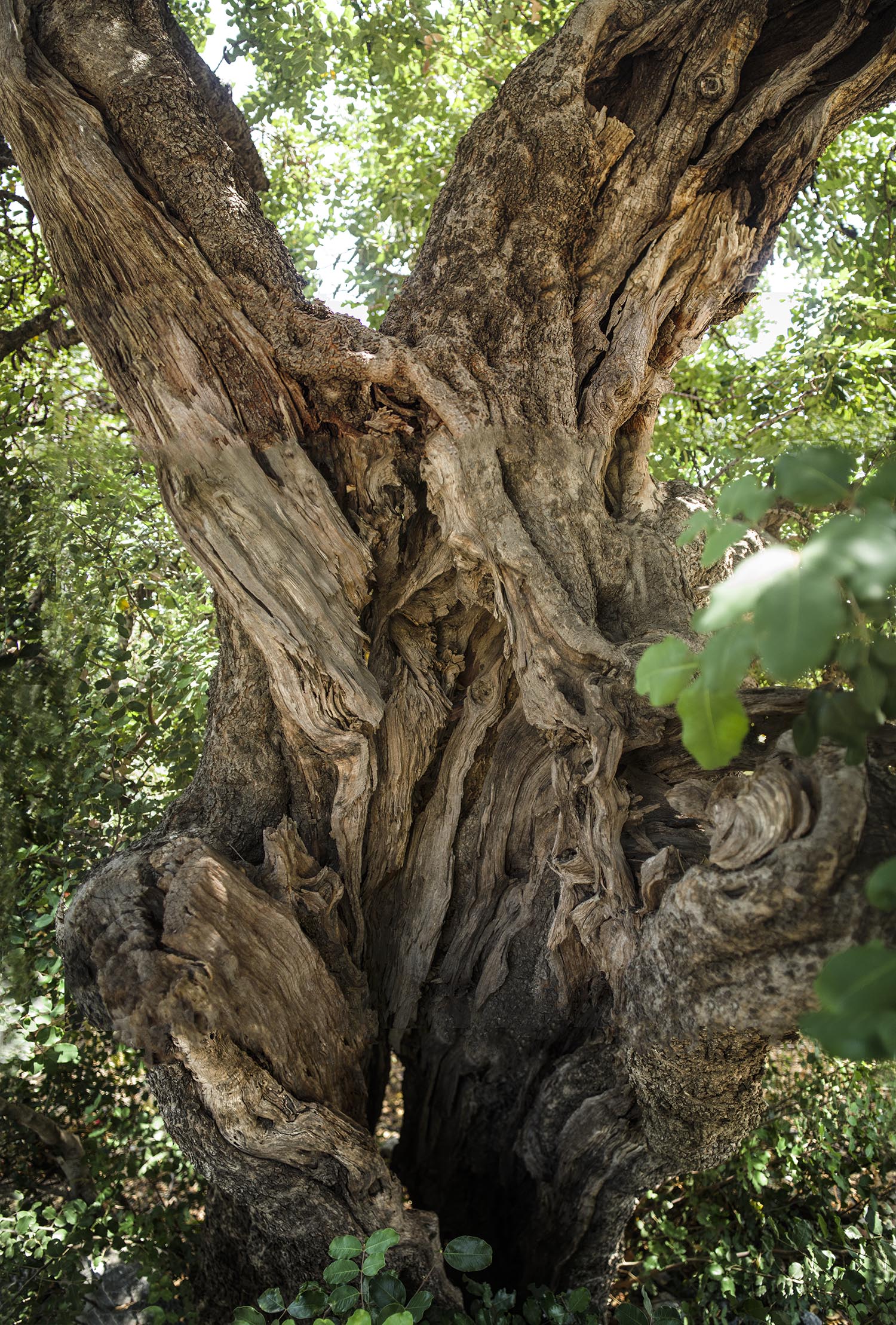
Sometimes I feel like I'm having a dialogue with the carob, but I feel that it has so many secrets that I have to discover. That is the most important thing forme. But I think it hides some secrets that I have to find , so we have a very erotic relationship. I feel that.
Yes, I feel that. But not now, for many year. I'm afraid that if I talk more, I'm going to…
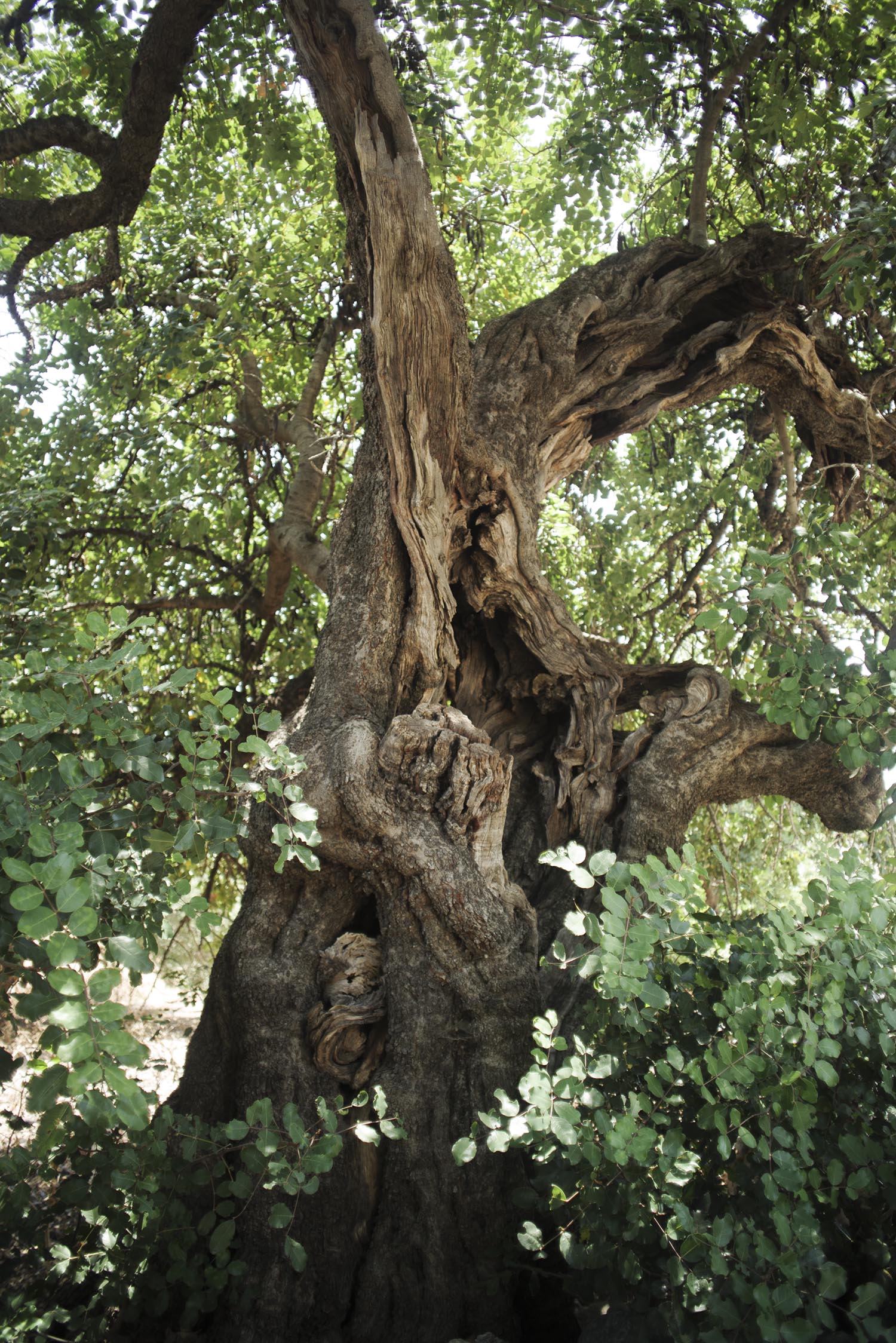
Carob cultivation is ecological by nature, because it doesn't need what the olive tree needs. It's everywhere, they can grow by themselves, without anything. Of course, if you help them, they would be... You can help them by cutting the branches to see if they have any diseases and sometimes by watering them, because they don't need too much. It's an alternative cultivation during the climate change. This is the most important thing, because they are self-sufficient, everywhere, even in very high temperatures. They can grow up to 800 metres at the highest.

The planting of olivetres is still for many the solution for agriculture, even price for oil /L is low as ca 3 EUR for L and everybody complains since the threat of deseses growth and sprajing with cwemicals is a "must" . Ther is also a latent fear that some deses can be a catastropy for monoculture of 33 mio trees on the island
Olive trees, carob trees... I love them both, but carob is the symbol of survival, against everything, all the extreme conditions. And that is more important to me. And you can't survive on olives, but you can survive on carobs. To survive with olives, we have to make olive oil, we have to have a process, but carob gives you directly what you need, that's why it saved a population. But yes, this is fire again, preventing fire. A lot of places would burn... It helps the soil to be stronger. I don't know, it's magic. It's something that nature created, it gives us this and I'm so excited about it. I feel it's my duty to do everything I can for it. I feel that way because it's a tree that nobody looks at, nobody focuses on, and I have to show everybody that it's so important. The most important tree.
It is a symbol of survival.

Kostas Karatzis farm is just over the heal of young olive growth. Carob trees don't need any spraying... Drought is not a problem as they can root very deep, even 15 metres... And the fruit is rich in protein, minerals and vitamins. It's a superfood and its use for health benefits goes back 4,000 years to ancient Greece..
As a culture, the Greeks, we have two different aspects, wings. One is Apollo and the other is Dionysus. So these two have educated us, we have been trained to be both of them.
PS: If I had money, I would have done a lot more. I'm thinking of making the first pilot film and then going to Arte (TV channel) or Greek TV, for example, and telling them this is the first one and if you like it, finance the others. Let's do it together. I have the whole scenario, everything.
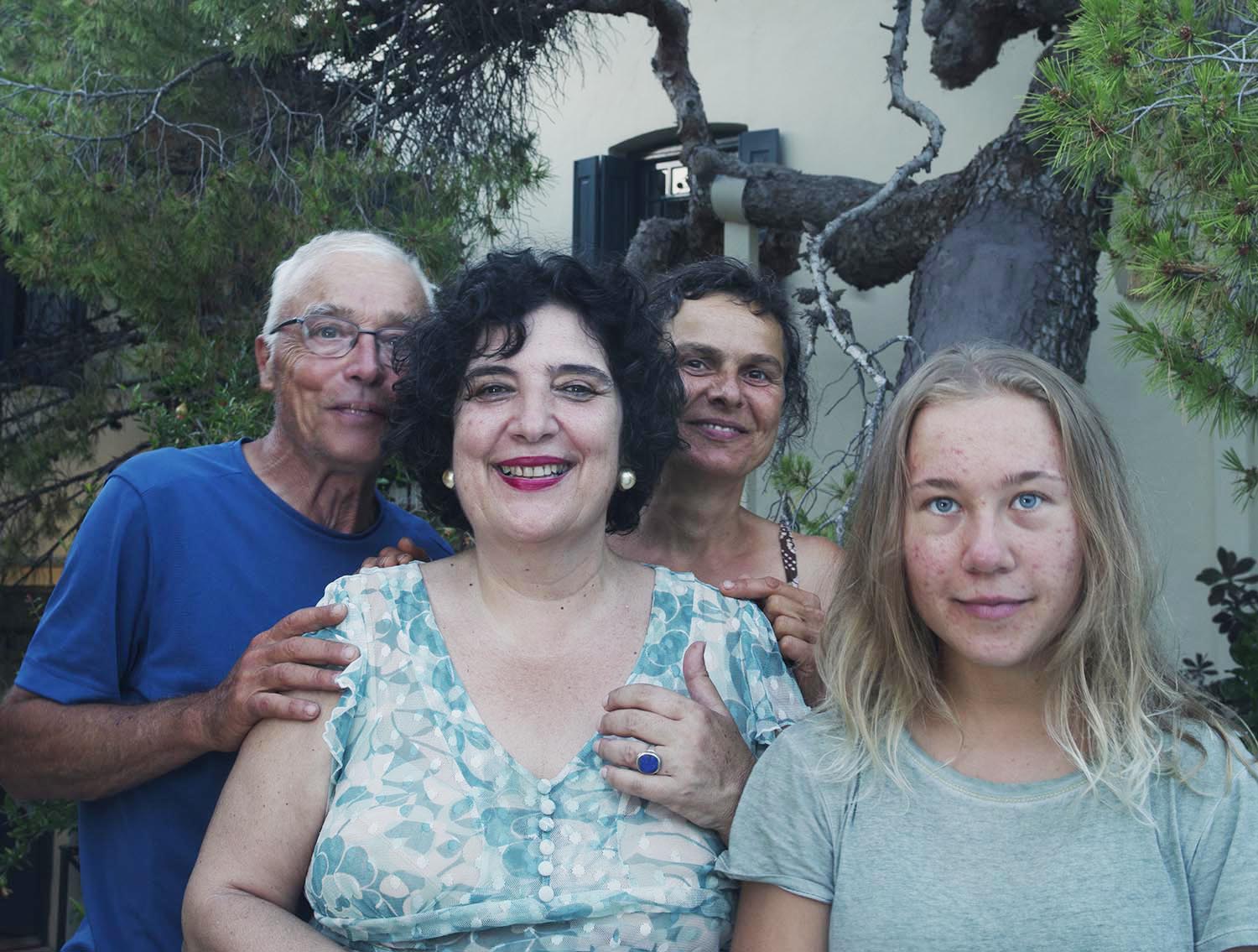
The team of this story : Korina Miliaraki, Ida Glušič, Ivana Petan, BB
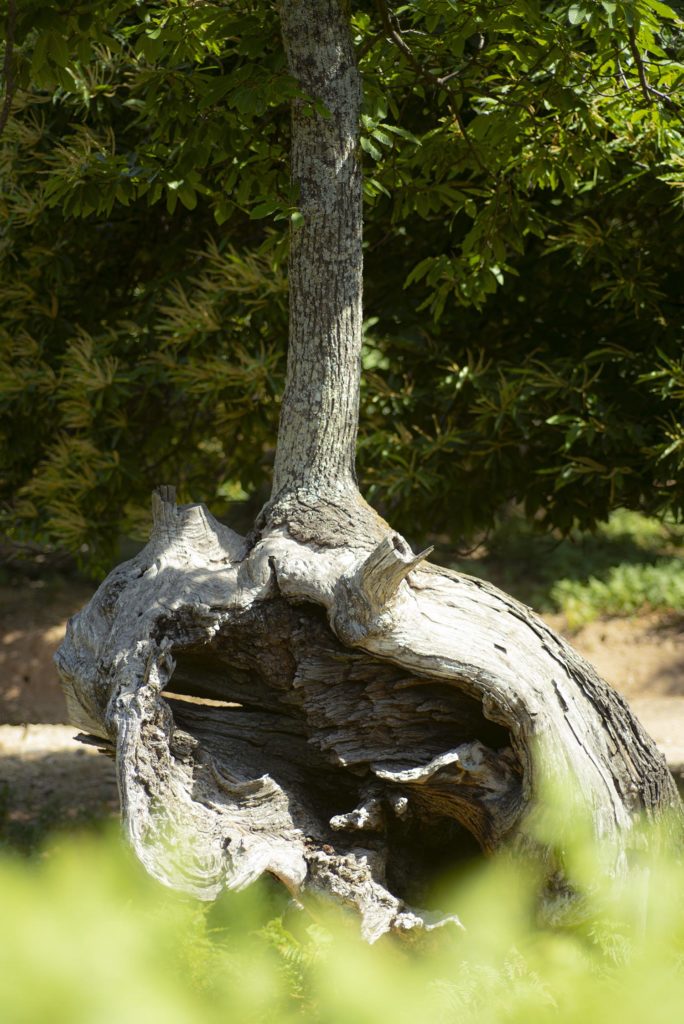
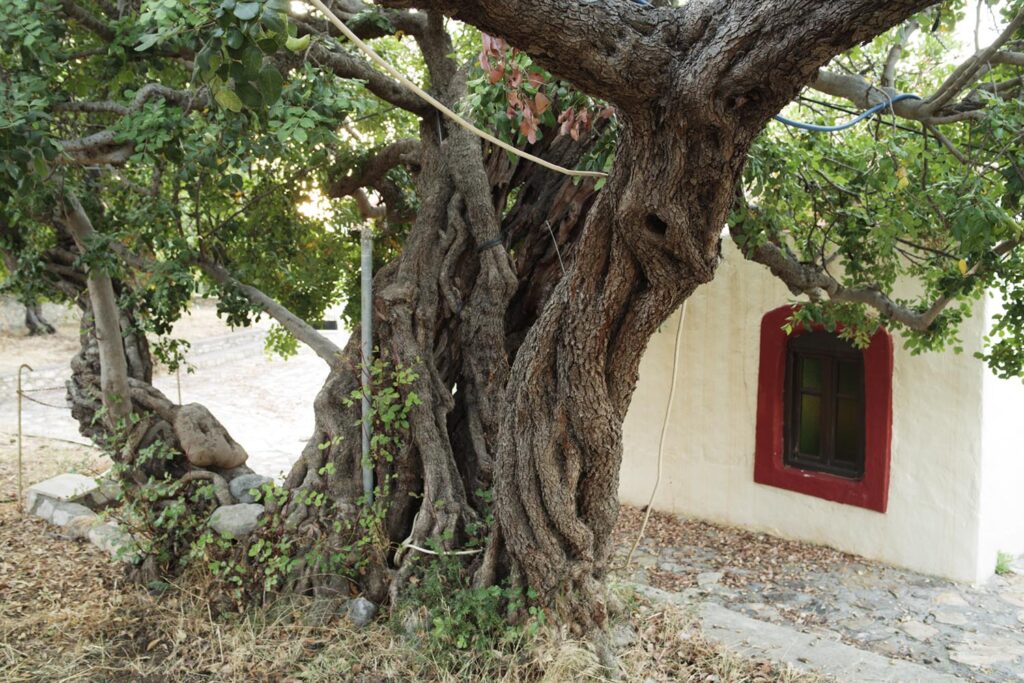
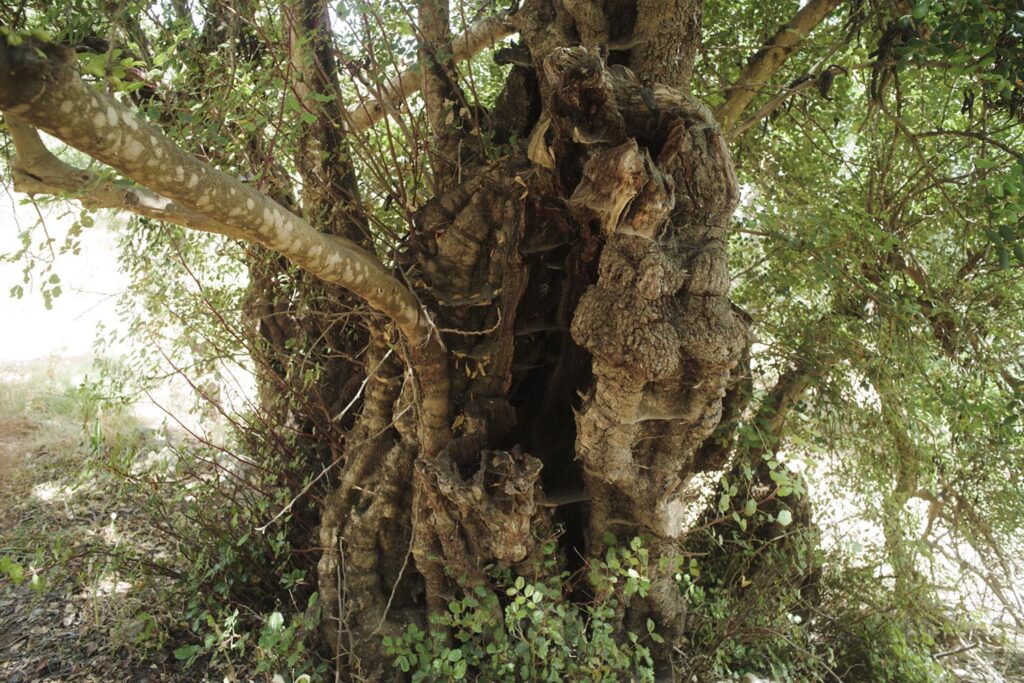
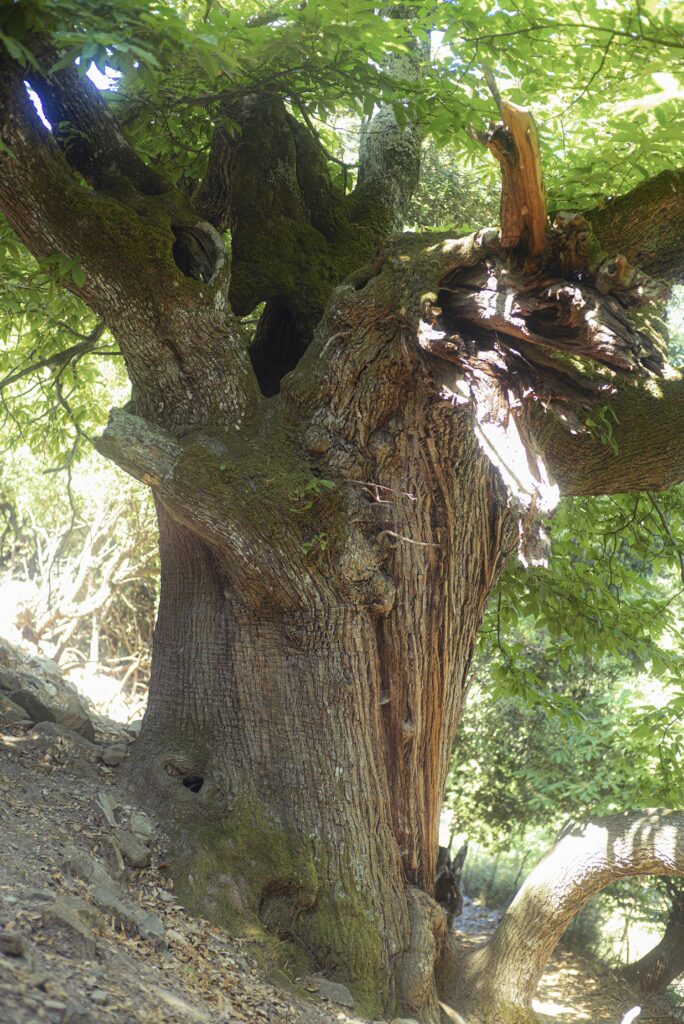
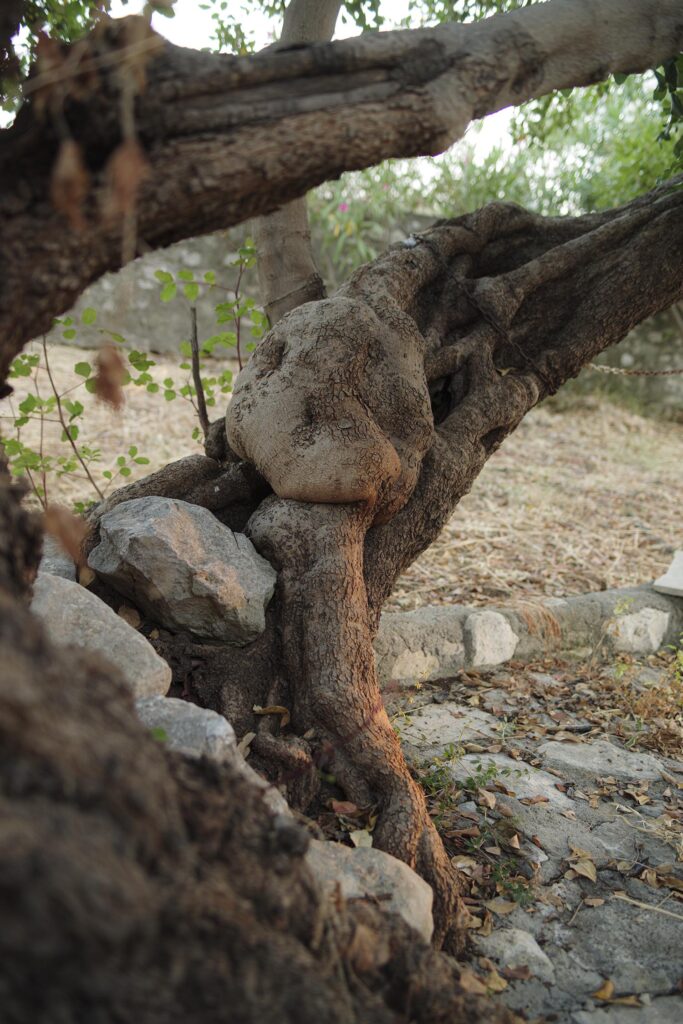
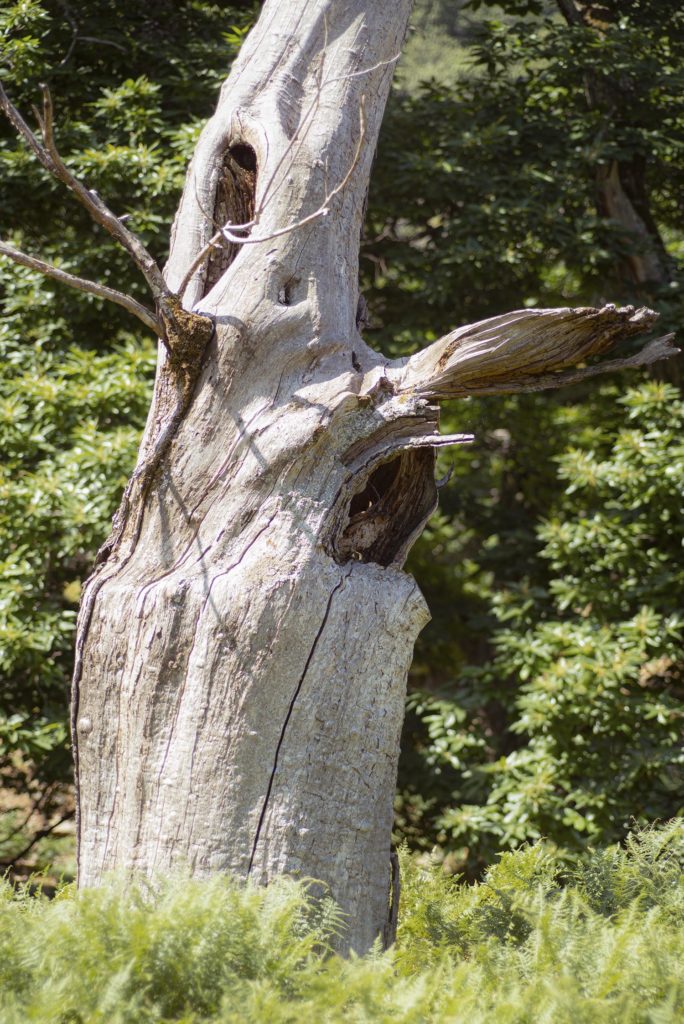
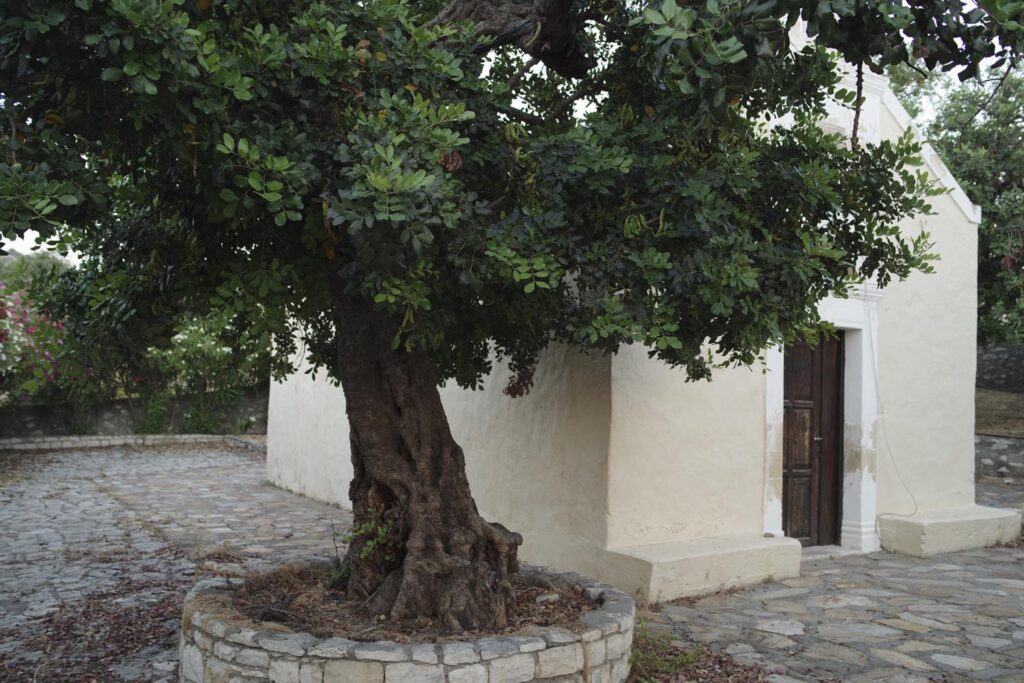
Support the publishing of the next story!
Produced by MEDLand project/BB : photo, reserch, intervievs by BB, conections organized by Korina Miliaraki, WGO filming photos by Aida Glušič, production assistant Ivana Petan

